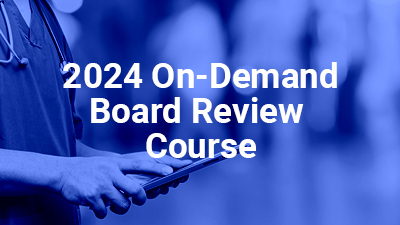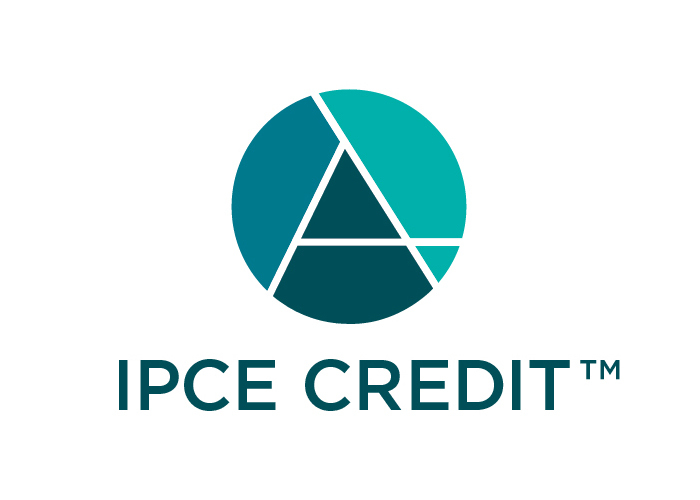
Catalog Advanced Search
-
Contains 5 Component(s), Includes Credits Includes a Live Web Event on 11/15/2024 at 8:50 AM (EST)CE Credit available
Methemglobinemia, Heavy metals, Hydrocarbons, Ethanol, Methanol, Marine, Reptiles, Arthropods, Mushrooms, Herbicides, insecticides and more!
#TotalTox2024
The last live, virtual session of the Total Tox Course will focus on Non-Pharmaceuticals.
This session will include discussions of toxicology of plants and mushrooms, and reptile, marine, and arthropod envenomations. Experts will also cover anesthetic toxicity, malignant hyperthermia, and methemoglobinemia. Gain expertise in managing heavy metal poisoning and the complexities of ethanol and toxic alcohol intoxication. Participate in interactive case panels on novel treatments for critically ill patients and evaluation of an unknown potential toxicology issue, bringing together all your knowledge from the Total Tox Course.
Learner Objectives
After attending the event, participants should be able to:
- Identify non-pharmaceutical poisons found in various locations including home, cabinet, garage, and yard.
- Discuss current and emerging management options for ethanol intoxication, withdrawal, and use disorder.
- Examine other toxicological concerns including heavy metals, methemoglobin-forming agents, toxic hyperthermia, and venomous creatures
Questions?
Please write to ACMT at events@acmt.net
Preliminary Agenda | Session 3 - November 15, 2024
8:50 - 9:00 AM ET | Opening Remarks
9:00 - 9:30 AM ET
Hospital Hazards #1: Anesthetic Toxicity & Malignant Hyperthermia
Shaun D. Carstairs, MD, FACMT Medical Toxicologist, 98point6, Inc., Seattle, WA9:30 - 10:00 AM ET
Hospital Hazards #2: Methemoglobinemia
Andrea Carlson, MD Emergency Medicine Physician10:00 - 10:30 AM ET
Heavy Metals In the ED: Lead, Arsenic & Mercury
Evan Schwarz, MD, FACMT Associate Professor of Emergency Medicine, Washington University School of Medicine, St. Louis, MO
10:30 - 10:45 AM ET | Break (15 min)
10:45 - 11:45 AM ET
Case Panel: Novel Treatments for the Crashing Patient; Hot Patient Case11:45 - 12:30 PM ET
Ethanol Intoxication: Too Much Of a Good Thing
Anthony Pizon, MD, FACMT Chief of Medical Toxicology Division, Professor of Emergency Medicine, University of Pittsburgh, Pittsburgh, PA12:30 - 1:15 PM ET
When It's Not Ethanol: Demystifying Toxic Alcohols
Bram Dolcourt, MD Clinical Assistant Professor Department of Emergency Medicine, Wayne State University, Detroit, MI
1:15 - 1:45 PM ET | Break (30 min)
1:45 - 2:15 PM ET
Ethanol Withdrawal: When the Good Times End
Jerrold Blair Leikin, MD, FACP, FACEP, FACMT, FAACT, FACOEM, FASAM Adjunct Clinical Professor Division of Environmental and Occupational Health Sciences & Professor of Medicine, University of Illinois Chicago and Rosalind Franklin University of Medicine & Science, North Chicago, IL2:15 - 2:45 PM ET
Don't Touch That! Marine, Arthropod & Reptile Envenomations
Michael Levine, MD, FACMT Associate Professor of Emergency Medicine, University of California Los Angeles, Los Angeles, CA2:45 - 3:15 PM ET
The Toxic Yard
Fiona Garlich Horner, MD Head of Toxicology & Assistant Professor of Clinical Emergency Medicine, LAC+USC Medical Center & University of Southern California Keck School of Medicine, Los Angeles, CA3:15 - 3:45 PM ET
The Toxic House
Ashley Haynes, MD, FACEP Medical Director, Addiction Toxicology of Kansas, Wichita, KS
3:45 - 4:00 PM ET | Break (20 min)
4:00 - 4:30 PM ET
The Toxic Cabinet
Stephen Wood, MS, ACNP-BC, FEWM Acute Care Nurse Practitioner & Director of Advanced Practice Providers, St. Elizabeth’s Medical Center, Brighton, MA4:30 - 5:00 PM ET
The Toxic Garage
Andrew King, MD Associate Professor in the Department of Emergency Medicine & Medical Director, Wayne State University School of Medicine & Michigan Poison and Drug Information Center, Detroit, MI5:00 - 5:30 PM ET
Case Panel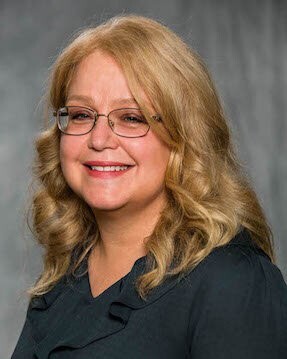
Andrea Carlson, MD
Emergency Medicine Physician
Advocate Christ Medical Center
Dr. Andrea Carlson is an attending physician in Emergency Medicine at Advocate Christ Medical Center in Oak Lawn, IL, where she has served the patients of Chicago's South Side for 25 years. She is also the Director of Medical Toxicology, and the Associate Program Director of the Advocate Christ Emergency Medicine Residency. Her primary academic interests lie in toxicology education and critical care toxicology.
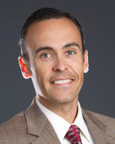
Shaun D. Carstairs, MD, FACMT
Medical Toxicologist
98point6, Inc.
Dr. Carstairs earned his undergraduate degree from the California Institute of Technology in Pasadena, CA and received his medical degree from the Uniformed Services University of the Health Sciences (USU), the nation's military medical school. He completed a residency in emergency medicine at the Naval Medical Center in San Diego and a fellowship in medical toxicology at the University of California, San Diego. He served more than 25 years on active duty in the U.S. Navy, which included a combat deployment to Iraq and shipboard deployment as the leader of a mobile trauma team for the Navy’s Pacific Fleet. He retired from the Navy as a Captain in 2019. He currently serves as a faculty member in the Department of Emergency Medicine & Division of Medical Toxicology at the University of California, San Diego (UCSD). In addition to his role at UCSD, he holds an appointment as Professor of Military & Emergency Medicine at USU.
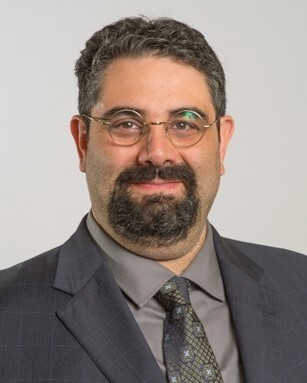
Bram Dolcourt, MD
Clinical Assistant Professor Department of Emergency Medicine
Wayne State University
Bram Dolcourt is Assistant Professor of Emergency Medicine at Wayne State University and serves as Associate Residency Director for Emergency Medicine at Sinai Grace Hospital in Detroit. Dr. Dolcourt is a Clinical Consultant to the Michigan Poison and Drug Information Center. Dr Dolcourt complete Medical School at New York Medical College and residency at Henry Ford Hospital. Dr. Dolcourt then went on to complete fellowship in Medical Toxicology at the Children’s Hospital of Michigan. Dr. Dolcourt’s interests include inpatient addiction medicine and heavy metal exposures.
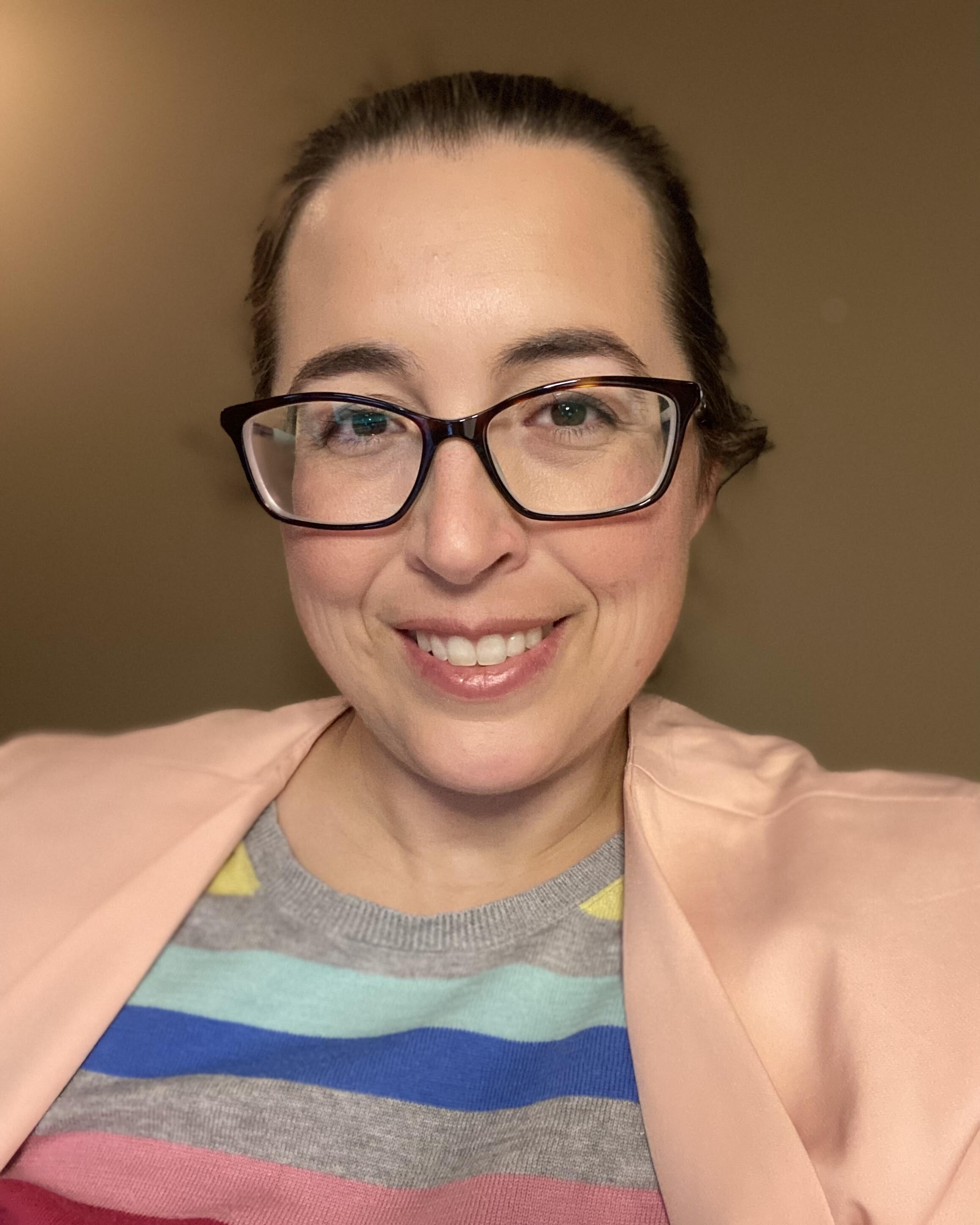
Ashley Haynes, MD, FACEP
Medical Toxicologist, Addiction Medicine Specialist
Veterans Health Administration
Dr. Haynes completed training in a combined emergency medicine-internal medicine program in 2014, and a toxicology fellowship at UTSW in 2016. She has been treating substance use disorders as part of her practice since that time and is board certified in addition medicine. She currently works for the VA at the Robert J Dole Veterans Medical Center in Wichita, KS, treating patients in a residential treatment center, as well as clinic, and performing bedside consults.
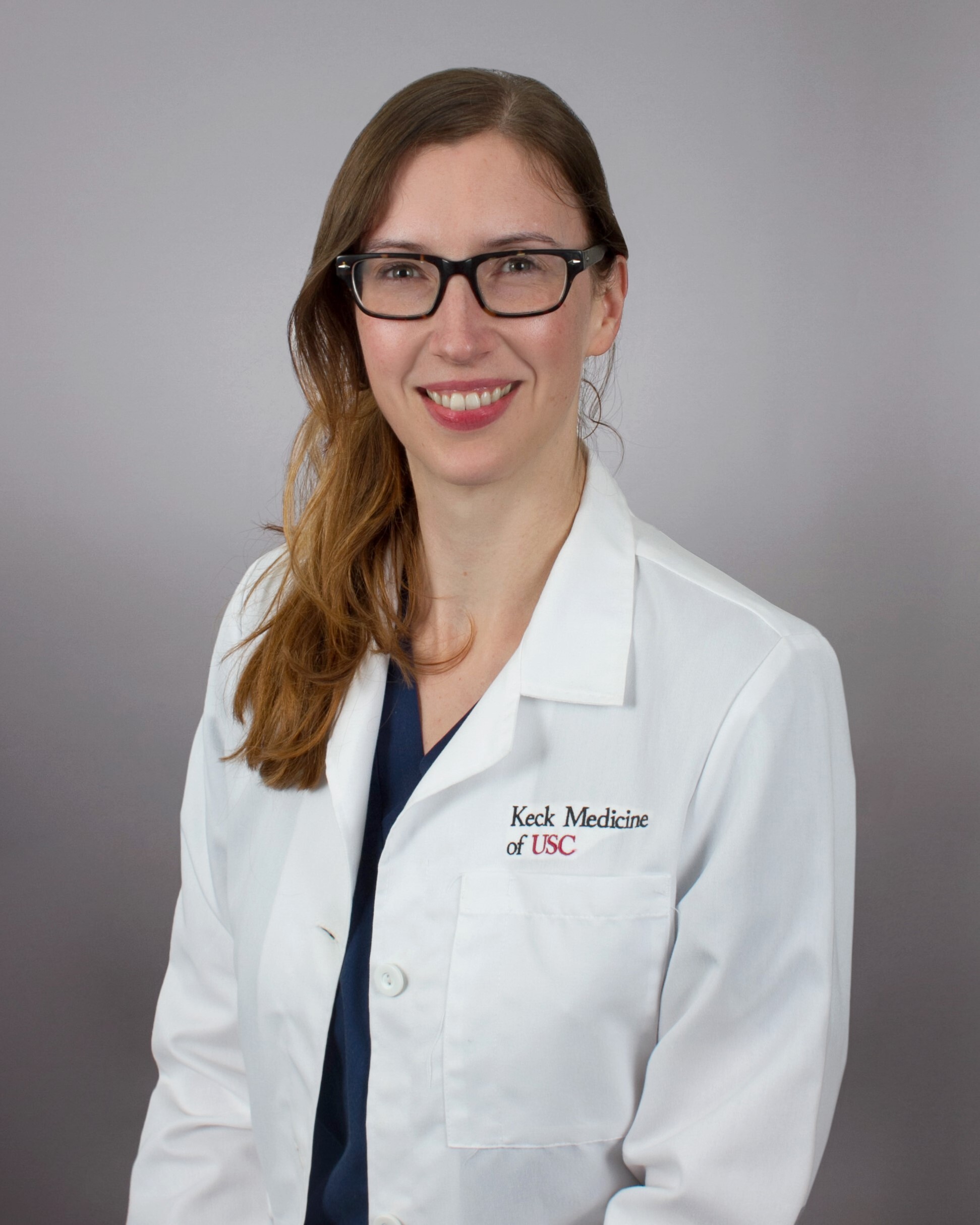
Fiona Garlich Horner, MD
Head of Toxicology & Assistant Professor of Clinical Emergency Medicine
LAC+USC Medical Center & University of Southern California Keck School of Medicine
Dr Fiona Garlich Horner is the Head of Medical Toxicology at Los Angeles County + University of Southern California (LAC+USC) Medical Center, and an Assistant Professor of Clinical Emergency Medicine at the University of Southern California Keck School of Medicine. She is a graduate of Oregon Health Sciences University School of Medicine in Portland, Oregon, and completed her residency in Emergency Medicine at Hennepin County Medical Center in Minneapolis, Minnesota. After completing a fellowship in Medical Toxicology at New York University and the New York City Poison Control Center, she served as an attending emergency physician and medical toxicologist with the Poison and Drug Information Service (PADIS) in Calgary, Alberta, Canada.
Dr. Garlich is now an attending emergency physician and medical toxicologist at LAC+USC Medical Center in Los Angeles, California, one of the largest and busiest public hospitals in the United States. She is the director of the inpatient toxicology consultation service and the resident toxicology rotation, as well as the chair of the hospital’s medication safety committee. Her primary academic interests lie in toxicology education and advancing the care of vulnerable and incarcerated populations.
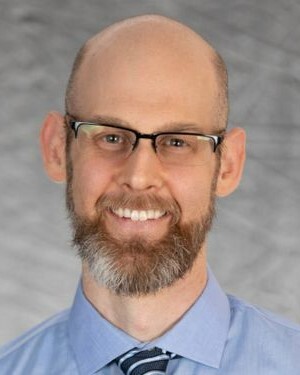
Andrew King, MD
Associate Professor in the Department of Emergency Medicine & Medical Director
Wayne State University School of Medicine & Michigan Poison and Drug Information Center
Dr. King is an Emergency medicine physician, Medical Toxicologist and Addiction Medicine specialist at the Detroit Medical Center and Wayne State University. He works as an emergency physician at Sinai Grace and Detroit Receiving Hospitals. He additionally works at the Tolan Park Research Center where he sees patients with substance use disorders. He is the interim director of the Michigan Poison and Drug Information Center and the Fellowship Director of the Medical Toxicology Fellowship. He is excited to be an organizer and presenter at the Total Tox Course!
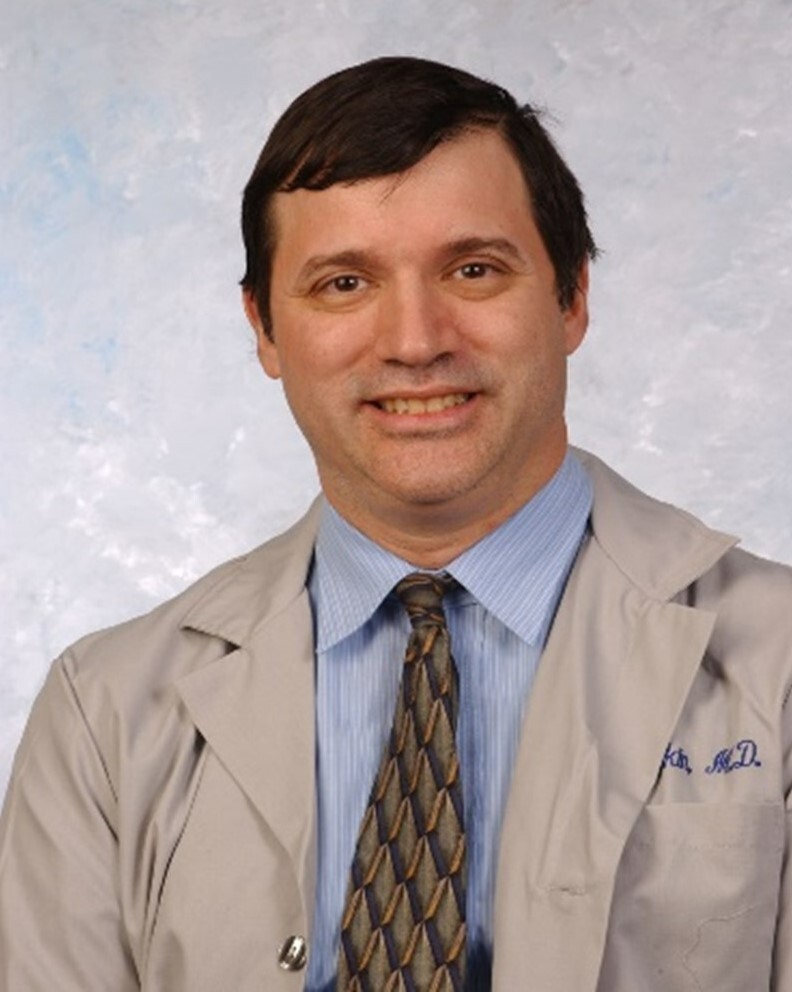
Jerrold Blair Leikin, MD, FACP, FACEP, FACMT, FAACT, FACOEM, FASAM
Adjunct Clinical Professor Division of Environmental and Occupational Health Sciences & Professor of Medicine
University of Illinois Chicago and Rosalind Franklin University of Medicine & Science
I am a currently Adjunct Clinical Professor on the Division of Environmental and Occupational Health Sciences and the Occupational and Environmental Medicine Service of UI Health at the University of Illinois at Chicago and Professor of Medicine at Rosalind Franklin University of Medicine & Science in North Chicago, Ill.
In 1980, I received my medical degree from the Chicago Medical School. I then completed a combined residency in Internal Medicine and Emergency Medicine at Northwestern University (1984) followed by a three-year preceptorship/fellowship training in Medical Toxicology at Cook County Hospital and University of Illinois Hospital in Chicago, Illinois. I am Board Certified in Internal Medicine, Emergency Medicine, Medical Toxicology and Addiction Medicine.
I served as the Associate Director of the Emergency Department at Rush Presbyterian-St. Luke’s Medical Center in Chicago from 1998-2001. During this time, I was also the Medical Director of the Rush Poison Control Center and served as Medical Director of the United States Drug Testing Laboratory (from 1991 -1996). I was also the Medical Director of PROSAR (located in St. Paul, MN); a national call center devoted to industrial exposures and product safety issues, up until December 2013.
I have presented over 200 research abstracts at national meetings (primarily to the North American Congress of Clinical Toxicology) and have published over 200 articles in peer-reviewed medical journals. I am the co-editor of the Poisoning and Toxicology Handbook (now in its fourth edition), published by CRC Press, and the American Medical Association Handbook of First Aid and Emergency Care, and published by Random House (New York). I am also the co-editor with Dr. Robin McFee for the Toxico-terrorism book (McGraw Hill) and the Handbook of Nuclear, Biological and Chemical Agent Exposure (CRC Press) both published in 2007. I was also the co-editor of the American Medical Association Complete Medical Encyclopedia, published by Random House in 2003. I am presently the Editor-in-Chief of the primary care journal, Disease-a-Month, published by Elsevier. I was on the Illinois State Board of Health from 2016 – 2019.
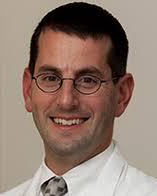
Michael Levine, MD, FACMT
Co-Division Chief of Medical Toxicology
University of California, Los Angeles
Michael Levine is a Los Angeles native, who completed his emergency medicine residency at the Harvard Affiliated Emergency Medicine program, based out of Brigham and Women’s Hospital and Massachusetts General Hospital. After residency, he completed his medical toxicology fellowship at Banner Good Samaritan Medical Center in Phoenix, AZ. After staying as faculty for a year in Phoenix, he moved back to Los Angeles, where he joined the faculty at USC. He is currently the division chief of medical toxicology. He is actively involved in patient care, research, and serves on numerous hospital and university committees. He is an active member of American College of Emergency Physicians, the American College of Medical Toxicology, and is a member of the Toxicology Investigator's Consortium.
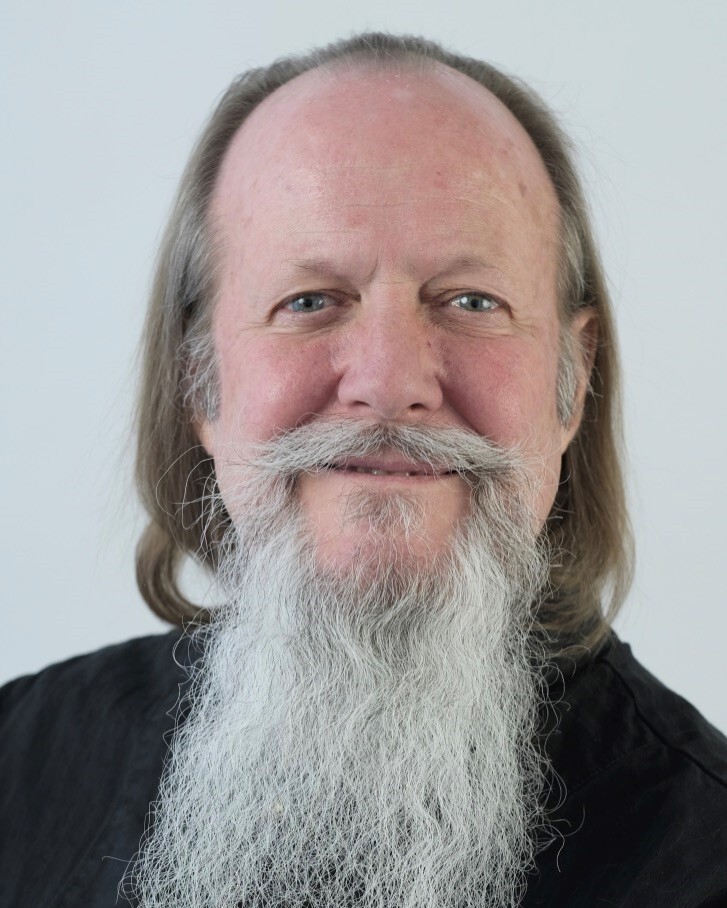
Howard McKinney, PharmD, DABAT, FAACT
Secretary-Treasurer
American Board of Applied Toxicology & North American Society of Toxinology
Dr McKinney graduated in 1971 from the University of California San Diego, Revelle College with a Bachelor of Arts degree (BA), Biology major, Spanish Literature minor.
In 1978 he graduated from UCSF School of Pharmacy with a Doctor of Pharmacy degree (PharmD), and was recruited to be a founding staff member of the San Francisco Poison Center, where he worked until 1992.
In 1992 he passed the Boards to become a Diplomate of the American Board of Applied Toxicology DABAT), and was hired as a Clinical Pharmacist in Critical Care at Univ Calif Davis Medical Center in Sacramento California (UCDMC).
In 2018 he was approved as a Fellow of the American Academy of Clinical Toxicology (FAACT), and retired from UCDMC. He continues his work as Secretary-Treasurer of ABAT and NAST (North American Society of Toxincology), as well as his love of herpetology, hiking, photography, videography and music.
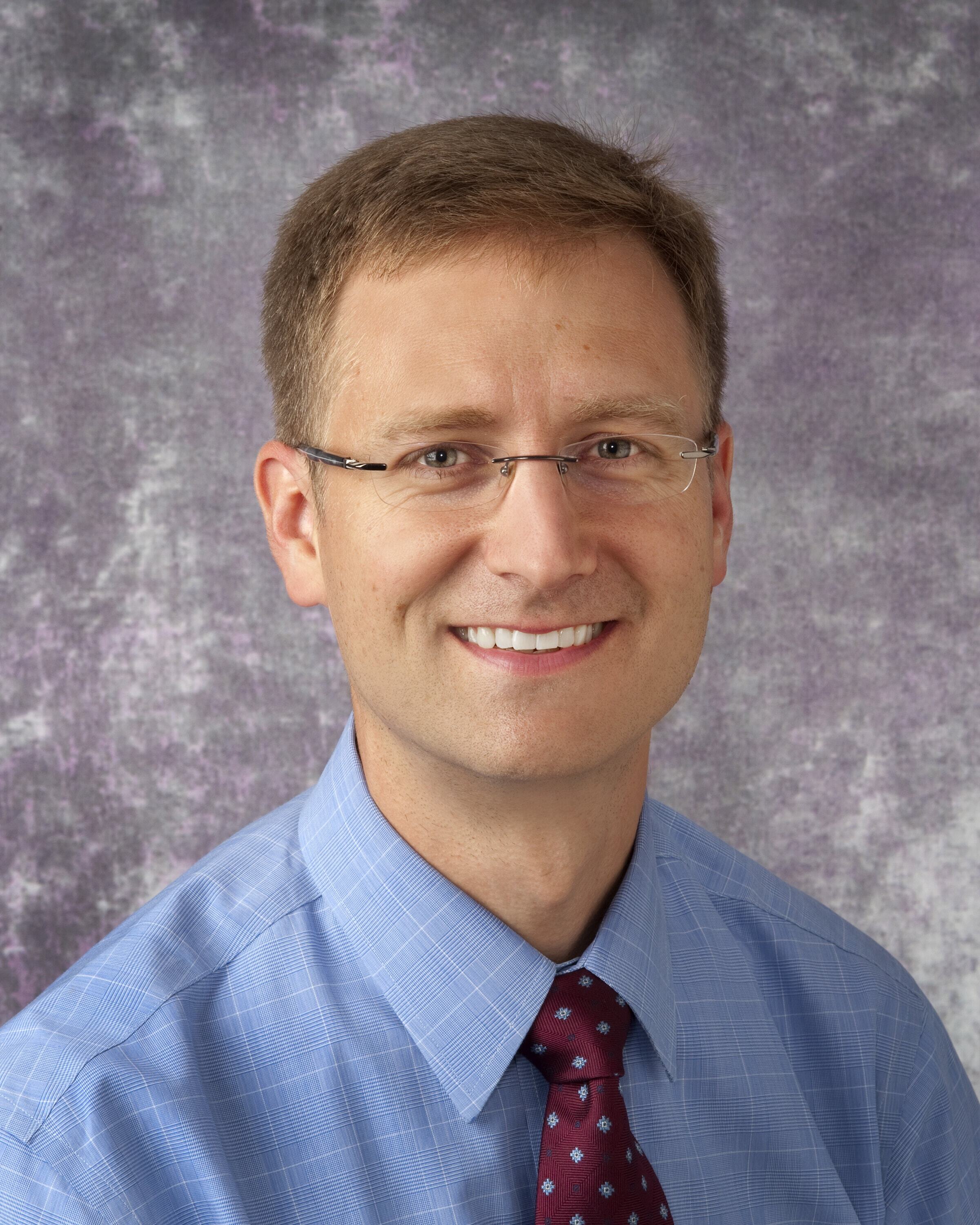
Anthony Pizon, MD, FACMT
Chief of Medical Toxicology Division, Professor of Emergency Medicine
University of Pittsburgh
Dr. Anthony (Tony) Pizon received his medical degree from the University of Toledo School of Medicine in 2001. He then completed his Emergency Medicine Residency at the University of Pittsburgh Medical Center in 2004 and his Medical Toxicology Fellowship at Banner Good Samaritan Medical Center in Phoenix, Arizona in 2006. Dr. Pizon is currently a Professor in the Department of Emergency Medicine, Division of Medical Toxicology at the University of Pittsburgh, School of Medicine. He serves as Chief of the Division of Medical Toxicology and Director of the Medical Toxicology Fellowship at UPMC. He is also Assistant Medical Director of both the Pittsburgh and West Virginia Poison Centers. Yet, most importantly, he is blessed with amazing wife, Caryn, and four wonderful children (Benjamin, Elizabeth, Gabriela, and Seraphina).
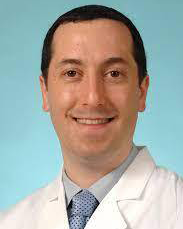
Evan Schwarz, MD, FACMT
Associate Professor of Emergency Medicine
University of California, Los Angeles
Dr. Schwarz attended medical school at the University of Texas Medical Branch in Galveston, Texas, before completing a residency in Emergency Medicine at the Washington University School of Medicine in Saint Louis, Missouri. After residency, he completed a fellowship in Medical Toxicology at the University of Texas Southwestern School of Medicine in Dallas, Texas, before returning to Missouri where he was an Advisory Dean and the Medical Toxicology Division Chief and Fellowship Director at Washington University. In 2023, he took a position in the Department of Emergency Medicine at the University of California Los Angeles. He is also a member of the Board of Directors for ACMT.
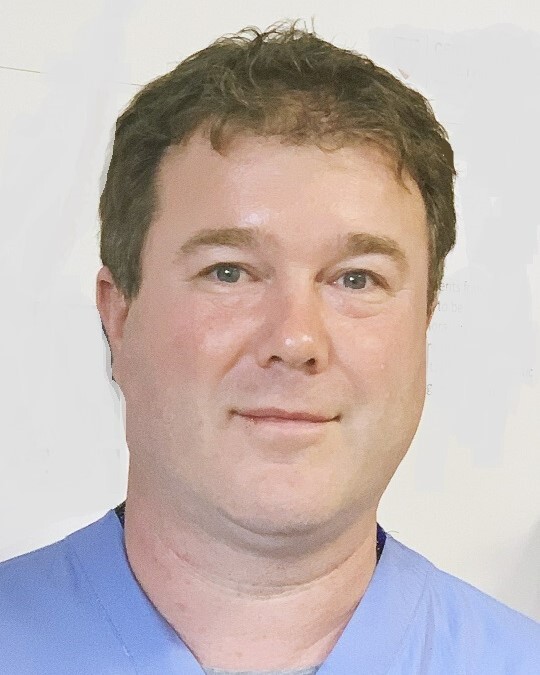
Stephen Wood, MS, ACNP-BC, FEWM
Acute Care Nurse Practitioner & Director of Advanced Practice Providers
St. Elizabeth’s Medical Center
Stephen P. Wood is an acute care nurse practitioner and director of advanced practice providers in the division of pulmonary and critical care medicine at St. Elizabeth’s Medical Center. Prior to this he spent 11 years practicing as a nurse practitioner in emergency medicine. His roots are in EMS and he has over 30 years of field experience, including 10 as a flight paramedic. He is an instructor in the School of Nursing at Northeastern University in the graduate nursing program and is a graduate scholar of the Harvard Macy Institute program for Healthcare Educators. He is a former fellow in Bioethics at the Center for Bioethics at Harvard Medical School and a current visiting researcher at the Petrie-Flom Center at the Harvard Law School Petrie-Flom Center for Health Policy. He holds a Master of Science in Nursing as well as a Master of Science in Toxicology. He is the Director of Field Operations for World Extreme Medicine USA and host of the WEM podcast.
Registration Rates
Registration includes:
- Access to the live virtual event on November 15, 2024
- Access to the on-demand recording for 90 days after the event
- Access to the Speaker slides
- 8.00 Continuing Education Certificate. Available credits: Continuing Medical Education (CME), Continuing Nursing Education (CNE), Continuing Pharmacy Education (CPE), Continuing Medical Education for Physician Assistant (AAPA CME), and Continuing Education for Nurse Practitioners (AANP CE).
Member Rates
Member Tier I: Full, Affiliate, International, Emeritus
$200
Member Tier II: Fellows
$200
Member Tier III: Residents, International - Developing Country
$125
Member IV: Medical Students
$75Non-Member Rates
Non-member Tier I: Physicians, Pharmacists, Lawyers, "Other"
$225
Non-member Tier II: Fellows, SPIs, Nurses, etc.
$225
Non-member Tier III: Educators & Emergency Responders
$150
Non-member IV: Residents & Students
$100
ACMT Membership
ACMT Members receive a discounted rate. Interested in becoming an ACMT Member? Contact our Membership Team at membership@acmt.net. Learn more at: www.acmt.net/membership
Package Rates
Sign up for the all three days of the 2024 ACMT Total Tox Course and save $100!
Refunds and Cancellations
- Cancellations made 15 days or more in advance of the event date will receive a full refund less a 8% processing fee.
- Cancellations made within 14 days of the event date will not receive a refund.
All cancellation requests must be made in writing and emailed to: events@acmt.net. No telephone cancellations will be accepted. A refund that results from a cancellation or change to your registration will be returned to the original payer and in the original method of payment.
Pending review, limited exceptions will be made based on need and circumstance (family emergency, for example) and must be submitted in writing to events@acmt.net. For these instances, the full registration fee, minus a 8% processing fee, will be refunded. Because each exception must undergo a review and approval process, we ask in advance for your patience.
Questions?
For any questions, please email us at events@acmt.net.
Instructions
Once you have completed your registration:
- Click on the Contents tab on the day of live event. This is where you will be able view the Zoom link for the course as well as all required components.
- Complete the Pre-Test. For best the best learning experience, please complete this before the live event on November 1, 2024.
- Watch live event. You can use the Zoom link in the Learning Center to leave and enter the webinar during event.
- Complete the Post-Test. These questions are based on content from the lectures to gauge your comprehension of the lectures. It requires a 80% to pass.
- Complete the Event CE Survey. If you are completing CE, this survey is required.
- Claim your CE certificate. Once you have claimed your CE credit, you will not be able to change your CE certificate.
Full credit can only be claimed after completion of all required components.
Hardware/Software Requirements
Computer or Other Internet-Enabled Device; Internet Connection; Browser.
Materials
None.
Prerequisites
None.
Format
This event is a live Webinar with CME, CNE, CPE, AAPA CME, and AANP CE.
Need Assistance or Have Questions?
For assistance logging in, accessing content, purchasing or completing Continuing Education credits, or for other questions, please contact us at events@acmt.net or visit our FAQ page.
If you are in need of accessible learning accommodations, please contact events@acmt.net for additional assistance.
Continuing Education
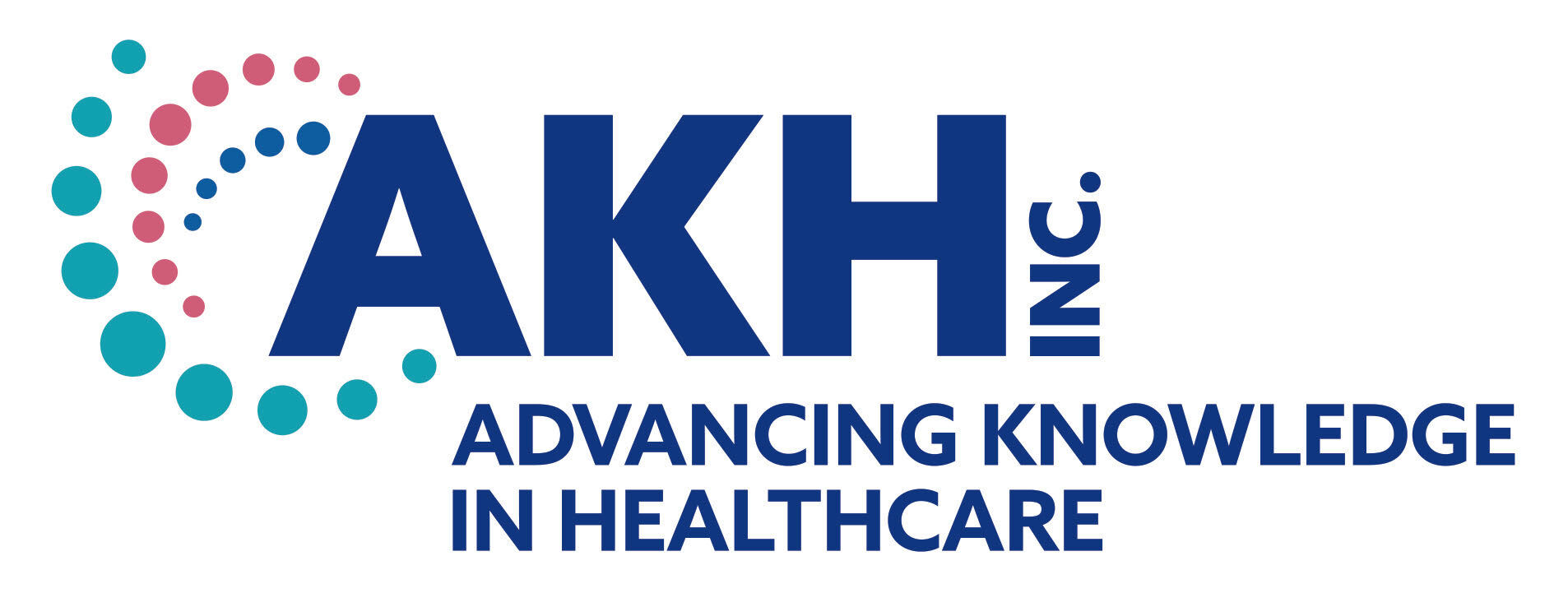
Continuing Education credit for this activity is provided by AKH Inc., Advancing Knowledge in Healthcare. The activity is pending approval, and registrants will be able to claim up 8.0 Continuing education credits.
Available Continuing Educations Credits:
- Continuing Pharmacist Education (CPE)
- Continuing Nursing Education (CNE)
- Continuing Medical Education (CME)
- Continuing Medical Education for Physician Assistant (AAPA CME)
- Continuing Education for Nurse Practitioners (AANP CE)
-
Register
- Non-member - Tier I - $225
- Non-member - Tier II - $225
- Non-member - Tier III - $150
- Non-member - Tier IV - $100
- Member - Tier I - $200
- Member - Tier II - $200
- Member - Tier III - $125
- Member - Tier IV - $75
- More Information
-
Contains 5 Component(s), Includes Credits Includes a Live Web Event on 11/08/2024 at 8:50 AM (EST)CE Credit available
Opioids, Withdrawal, Recreational Drugs, Opioids, Drug psychoses, Chemical Burns, Decon, Carbon Monoxide, Cyanides and more!
#TotalTox2024
Join us for the next live, virtual session of the Total Tox Course, Substance Use Disorder & Emergency Preparedness.
The first half of this session will cover substance use topics like opioid addiction, cannabis toxicity, and new substances. Experts will also discuss drug screen issues, pulmonary irritants, and the effects of mitochondrial asphyxiants on first responders to chemical suicides. The session will conclude with a focus on disaster preparedness, including radiation types and symptom management, nerve agents, and a brief history of bioterrorism and identification of agents. Interactive case panels with expert speakers will focus on substance use disorder and disaster preparedness.
Learner Objectives
After attending the event, participants should be able to:
- Discuss psychoactive substances as well as the diagnosis and treatment approaches for substance use disorders.
- Describe medication-assisted treatments for opioid use disorder, focusing on buprenorphine, methadone, and naltrexone.
- Explain medical management principles for CBRNE and other hazmat situations
Questions?
Please write to ACMT at events@acmt.net
Preliminary Agenda | Session 2 - November 8, 2024
8:50 - 9:00 AM ET | Opening Remarks
9:00 - 9:45 AM ET
The New Dangers of Opioid Addiction
Lewis Nelson, MD, FACEP Chair of Emergency Medicine, Rutgers New Jersey Medical School, Newark, NJ9:45 - 10:15 AM ET
Management Options for Opioid Use Disorder
Rachel Wightman, MD, FACMT Assistant Professor of Emergency Medicine, The Warren Alpert Medical School of Brown University, Providence, RI10:15 - 10:45 AM ET
Cannabis & Cannabis Toxicity
Mark Neavyn, MD, FACMT Medical Director & Emergency Medicine Physician, Northern New England Poison Center & Maine Medical Center, Portland, ME
10:45 - 11:00 AM ET | Break (15 min)
11:00 - 11:15 AM ET
What's New in Your Neighborhood?
Stephanie Weiss, MD, PhD Staff Clinician, Translational Addiction Medicine Branch, National Institute on Drug Abuse, Baltimore, MD11:15 - 12:00 PM ET
Case Review12:00 - 12:30 PM ET
Drug Screen Pitfalls
Paul M. Wax, MD, FACMT Executive Director, American College of Medical Toxicology (ACMT), Phoenix, AZ
12:30 - 1:00 PM ET | Break (30 min)
1:00 - 1:45 PM ET
Pulmonary Irritants & Simple Asphyxiants
Charles McKay, MD, FACMT Associate Medical Director, CT Poison Control Center, University of Connecticut School of Medicine, Farmington, CT1:45 - 2:15 PM ET
Chemical Suicide & Mitochondrial Asphyxiants
Paul M. Wax, MD, FACMT Executive Director, American College of Medical Toxicology (ACMT), Phoenix, AZ2:15 - 2:45 PM ET
Carbon Monoxide Poisoning: High Flow Oxygen or the Hyperbaric Chamber
Kelly Johnson-Arbor, MD, FACEP, FUHM, FACMT Medical Director, National Capital Poison Center & MedStar Georgetown University Hospital, Washington, DC2:45 - 3:15 PM ET
Disaster Preparedness #1: Radiation Events
Joseph K. Maddry, Lt Col, USAF, MC, FS, MD, FACMT Deputy Commander, Department of Emergency Medicine, US Army Institute of Surgical Research, Houston, TX
3:15 - 3:30 PM ET | Break (15 min)
3:30 - 4:00 PM ET
Disaster Preparedness #2: Organophosphates & New Agents
Christina Hantsch, MD, FACEP, FACMT, FAACT Emergency Physician and Medical Toxicologist, Loyola University Chicago Stritch School of Medicine Maywood, IL4:00 - 4:45 PM ET
Disaster Preparedness #3: Other Chemical & Biological Terrorism
Aaron Frey, DO Emergency Medicine Attending Physician and Medical Toxicology Fellow, Richmond Emergency Physicians, Inc. & University of Virginia, Richmond, VA4:45 - 5:30 PM ET
Case Review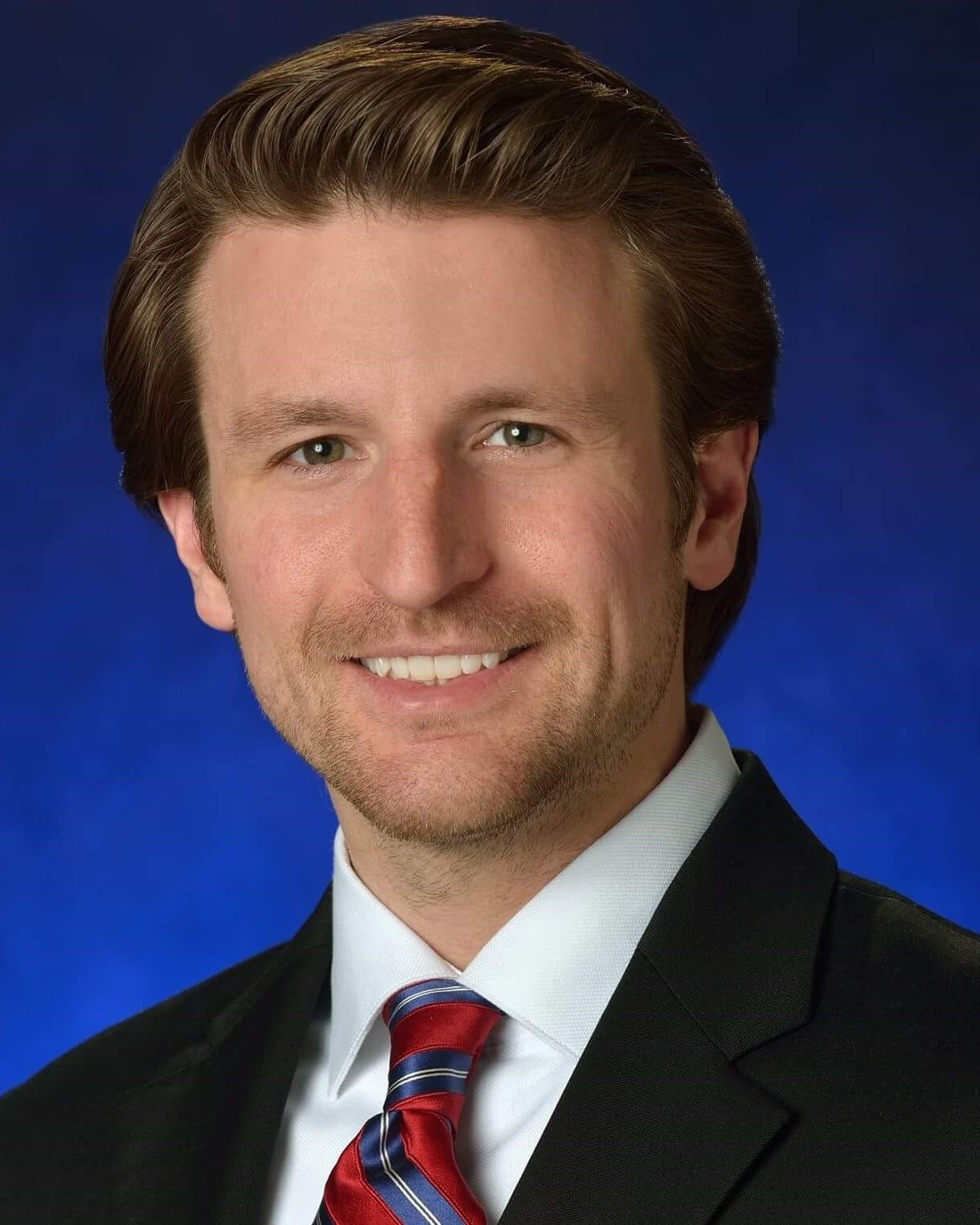
Aaron Frey, DO
Core Faculty & Medical Toxicologist
WellSpan Health at York Hospital
Dr Aaron Frey is an emergency medicine physician and medical toxicologist. He studied government and international studies at Campbell University in North Carolina and Spanish at Middlebury College in Vermont. He worked as a firefighter, emergency medical technician, and search and rescue diver during his undergraduate career. The experiences he had in those roles are what influenced him to become a physician. His particular interests include hazardous materials and chemical, biological, radiological, and nuclear (CBRN) weapons, remote, austere, and wilderness medicine, and damage control resuscitation. He currently practices emergency medicine and toxicology at the Wellspan York Hospital in York, PA and holds an academic appointment of assistant professor of emergency medicine and medical toxicology at Drexel University College of Medicine.
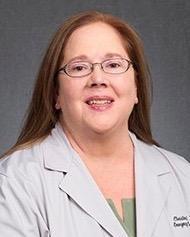
Christina Hantsch, MD, FACEP, FAACT, FACMT
Emergency Physician and Medical Toxicologist
Dr. Hantsch is a graduate of the Honors Program in Medical Education at Northwestern University. She completed an emergency medicine residency, including a year as chief resident, at the Medical College of Wisconsin and then continued her training in a medical toxicology fellowship at Vanderbilt University. After her fellowship, she spent nearly 22 years at Loyola University Chicago Stritch School of Medicine and Loyola University Medical Center. There, she established an inpatient toxicology clinical service and clinical rotations for graduate medical trainees and students in multiple fields. With an interest in medication management and safety, she joined the hospital Pharmacy and Therapeutics Committee, serving as member for 6 years before being appointed chair and leading the committee for another 6 years. Dr. Hantsch earned the academic rank of Professor of Emergency Medicine, was Director of the Division of Toxicology, and Director of Academic Affairs in the Department of Emergency Medicine. As a clinical faculty member, she was appointed to the Stritch Committee on Academic Rank and Tenure, serving for 7 years including 2 as a subcommittee chair leading revision of the clinician educator track guidelines. In 2018, she was the founding Program Director of the Loyola emergency medicine residency. Dr. Hantsch served for more than 8 years as Medical Director of the Illinois Poison Center. In addition, she is a regular organizer and contributor to many local, regional, and national/international continuing education programs. After leaving academics, she worked for the U.S. FDA in pharmacovigilance for a year. As of 2022, she is board certified in addiction medicine in addition to emergency medicine and medical toxicology. Dr. Hantsch was elected to the ACMT Board of Directors in 2021, is a member of the Education Committee, and chair of the Practice Committee.
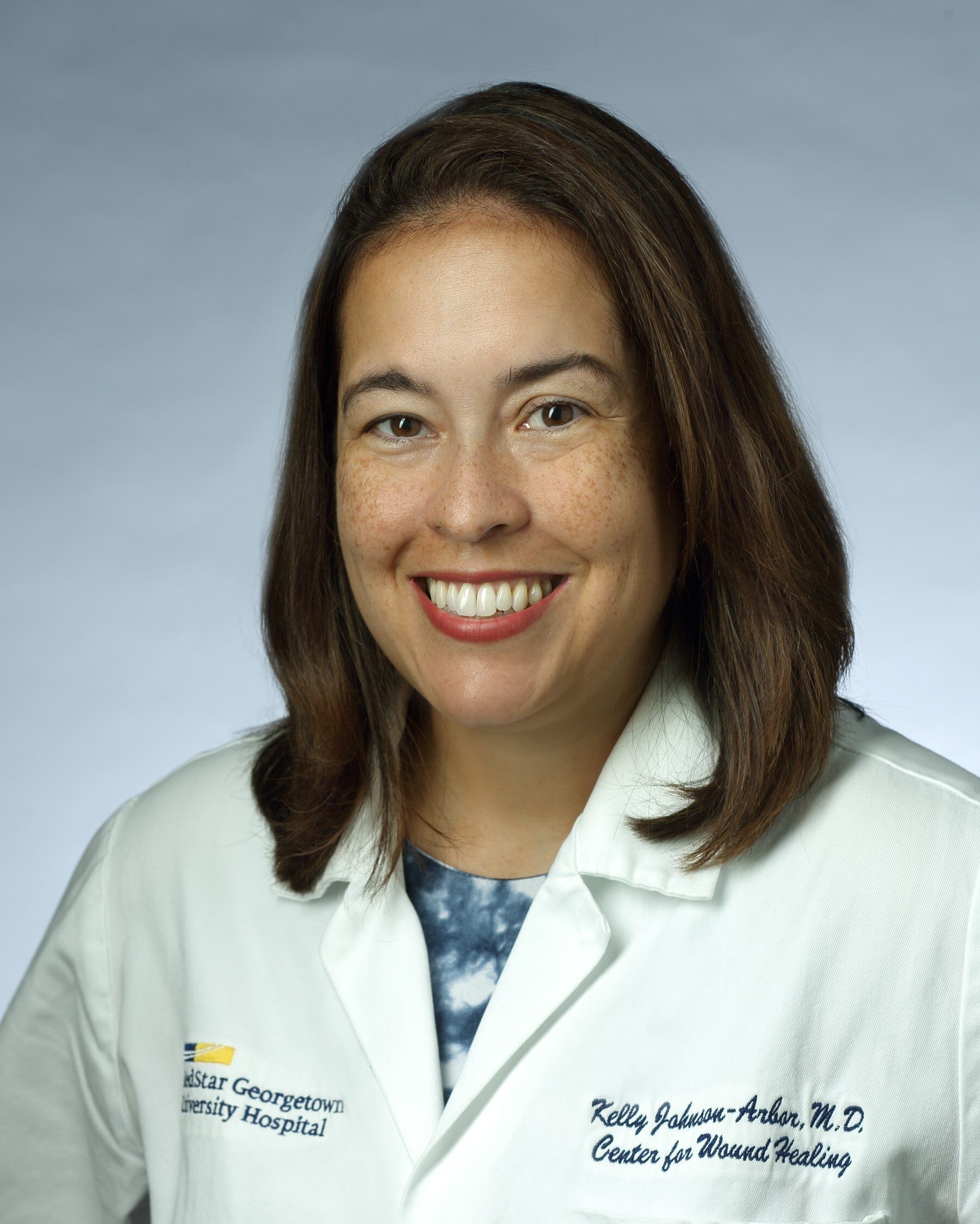
Kelly Johnson-Arbor, MD, FACEP, FUHM, FACMT
Medical Director
National Capital Poison Center & MedStar Georgetown University Hospital
Dr. Kelly Johnson-Arbor is a physician who is triple board-certified in Emergency Medicine, Medical Toxicology, and Undersea and Hyperbaric Medicine. She completed her undergraduate education at Harvard College and earned her medical degree from Loyola University Stritch School of Medicine. She completed a residency in Emergency Medicine at the University of Rochester, followed by a fellowship in Medical Toxicology at the University of Connecticut. She currently serves as the co-medical director of National Capital Poison Center and the medical director of hyperbaric medicine at MedStar Georgetown University Hospital. She is an Assistant Professor of Plastic Surgery and Emergency Medicine at the Georgetown University School of Medicine and serves as an associate faculty member of the MedStar Institute for Quality and Safety.
Dr. Johnson-Arbor has been in practice as a medical toxicology physician for more than 15 years. She has extensive experience in the diagnosis, treatment, and prevention of various types of toxic exposures affecting both adults and children. She has served as a toxicology consultant for multiple Poison Control Centers in the United States, and currently treats toxicology patients at MedStar Georgetown University Hospital. She has a special interest in the management of heavy metal toxicity and carbon monoxide poisoning. An avid researcher and writer, Dr. Johnson-Arbor has published numerous articles in peer-reviewed medical journals including New England Journal of Medicine, JAMA Internal Medicine, and Annals of Emergency Medicine. She enjoys teaching toxicology principles to the public as well as medical professionals.
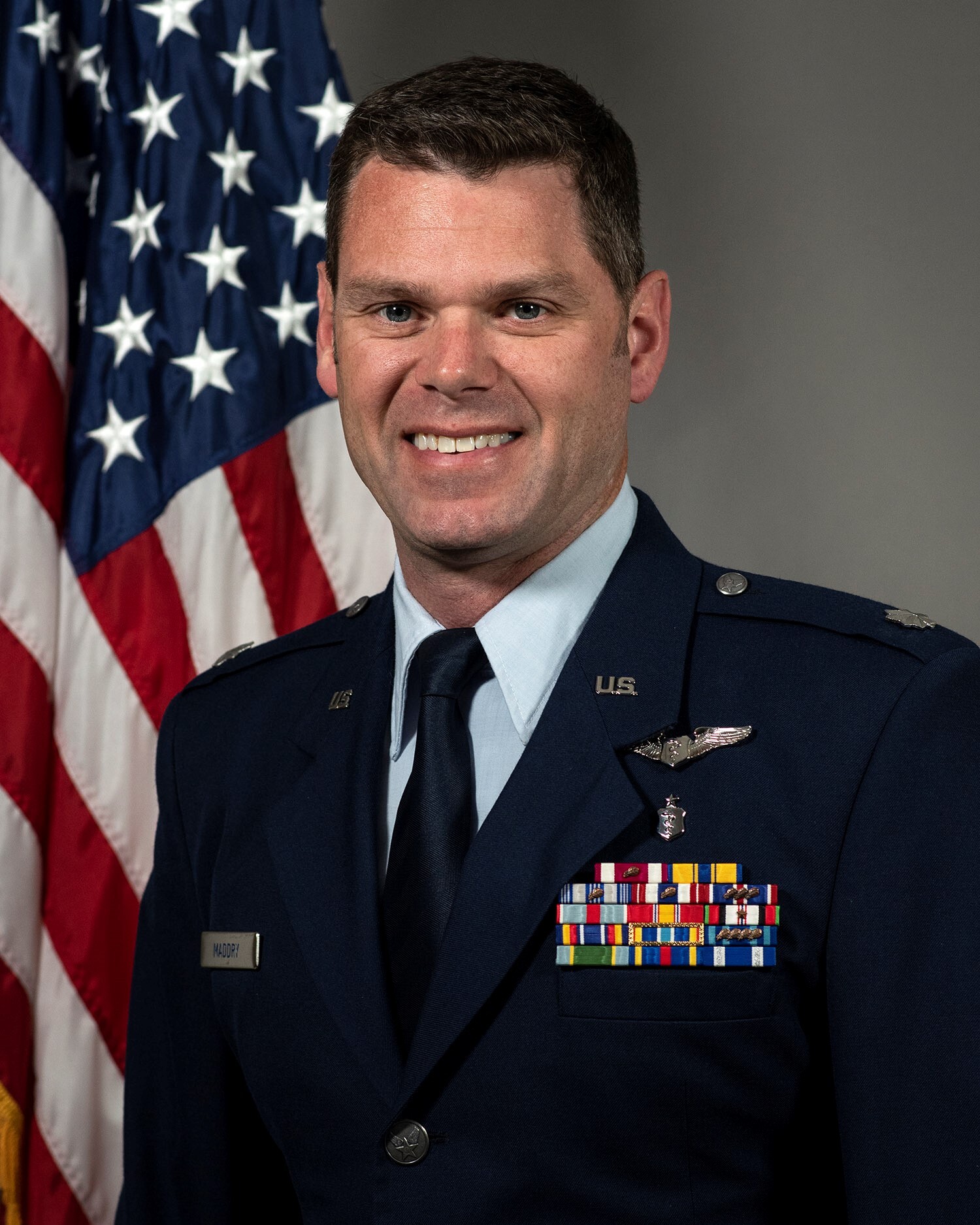
Joseph K. Maddry, Lt Col, USAF, MC, FS, MD, FACMT
Deputy Commander
Department of Emergency Medicine, US Army Institute of Surgical Research
Lt Col Maddry earned his Bachelor’s Degree from the US Air Force Academy in 2001 as a Distinguished Graduate. His first assignment was as Officer in Charge of Bioenvironmental Engineering at Minot Air Force Base, North Dakota. During his tenure, he led his unit’s response to the largest anhydrous ammonia spill in U.S. history. He then attended medical school at the Uniformed Services University, earning Alpha Omega Alpha membership honors. He completed his emergency medicine residency at SAUSHEC and his medical toxicology fellowship at the Rocky Mountain Poison and Drug Center in Denver, Colorado.
Following fellowship, Lt Col Maddry returned to Brooke Army Medical Center as an emergency physician and medical toxicologist. He served as Chief of the BAMC Simulation Center from 2014 to 2015. Subsequently, he served as Director of the US Air Force En route Care Research Center (ECRC) from 2015 to 2020. In this position, he oversaw 20 personnel and a $14.8 million research portfolio. He is an author of over 100 peer reviewed publications and 150 research presentations and has been awarded over $28 million in research grants. The Society of Academic Emergency Medicine recognized Dr. Maddry’s research as one of the best publications of 2014. Lt Col Maddry was awarded the Defense Health Board Early Career Investigator Award, the 2017 USAF Outstanding Achievement in Clinical Research award and the 2018 Military Health System Research Symposium Small Team Research Accomplishment Award for Excellence.
Lt Col Joseph Maddry is currently the Deputy Commander of the US Army Institute of Surgical Research, overseeing over 700 personnel focused on optimizing combat casualty care. Dr. Maddry also serves as Director of Medical Toxicology at Brooke Army Medical Center and as the Director of the Clinical Resuscitation, Emergency Sciences, Toxicology, and Triage (CREST2) Research Program. He leads the development of the next generation of military researchers by serving as the Director of the SAUSHEC Military Emergency Medicine Research Fellowship and as Director of the Clinician Scientist Investigator Opportunity Network (CSION).
He is an Associate Professor of Emergency Medicine with the Uniformed Services University and has academic appointments at the University of Texas Health, Texas A&M, and the University of Colorado Denver. Lt Col Maddry has served in Afghanistan, Iraq, Haiti, Japan and Burkina Faso.
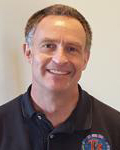
Charles McKay, MD, FACMT
Associate Medical Director
CT Poison Control Center, University of Connecticut School of Medicine
Dr. McKay was trained in Anatomic and Surgical Pathology, Internal Medicine, Emergency Medicine, Medical Toxicology and was a Medical Director of Occupational Health and Medical Review Officer for a hospital system during more than 30 years of clinical practice, during which he provided toxicology consultation at 3 hospitals, directed a medical toxicology fellowship training program, and provided medical oversight of a regional poison control center. He provides medical legal consultation across the country on toxicology-related issues, and has testified in nearly 100 cases, many related to questions of alcohol- and -drug-induced impairment.

Howard McKinney, PharmD, DABAT, FAACT
Secretary-Treasurer
American Board of Applied Toxicology & North American Society of Toxinology
Dr McKinney graduated in 1971 from the University of California San Diego, Revelle College with a Bachelor of Arts degree (BA), Biology major, Spanish Literature minor.
In 1978 he graduated from UCSF School of Pharmacy with a Doctor of Pharmacy degree (PharmD), and was recruited to be a founding staff member of the San Francisco Poison Center, where he worked until 1992.
In 1992 he passed the Boards to become a Diplomate of the American Board of Applied Toxicology DABAT), and was hired as a Clinical Pharmacist in Critical Care at Univ Calif Davis Medical Center in Sacramento California (UCDMC).
In 2018 he was approved as a Fellow of the American Academy of Clinical Toxicology (FAACT), and retired from UCDMC. He continues his work as Secretary-Treasurer of ABAT and NAST (North American Society of Toxincology), as well as his love of herpetology, hiking, photography, videography and music.
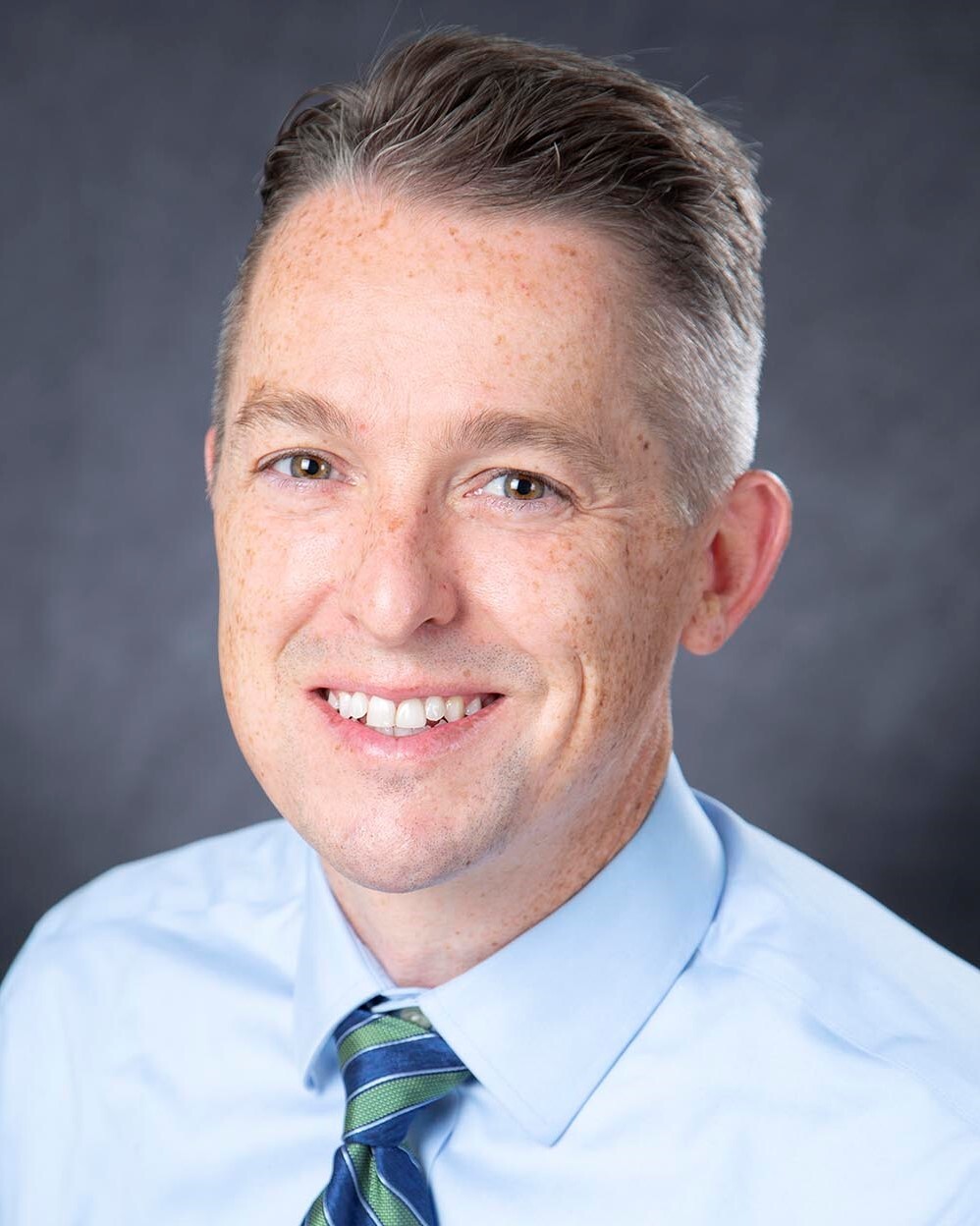
Mark Neavyn, MD, FACMT
Medical Director & Emergency Medicine Physician
Northern New England Poison Center & Maine Medical Center
Mark Neavyn, M.D. joined Maine Medical Center as the Medical Director for the Northern New England Poison Center in 2020. After earning his Bachelor of Arts degree in biology from Augustana College, he went on to earn his medical degree at Jefferson Medical College. He then completed his residency in emergency medicine at Drexel University, followed by a fellowship in Medical Toxicology at the University of Massachusetts.
His clinical interests include treatment and stabilization of patients after poisoning, drug overdose, and environmental exposures. He is particularly interested in the public health implications of cannabis use and emerging trends in novel psychoactive substances.
In his spare time Dr. Neavyn enjoys running on the beautiful trails in and around Portland, Maine.
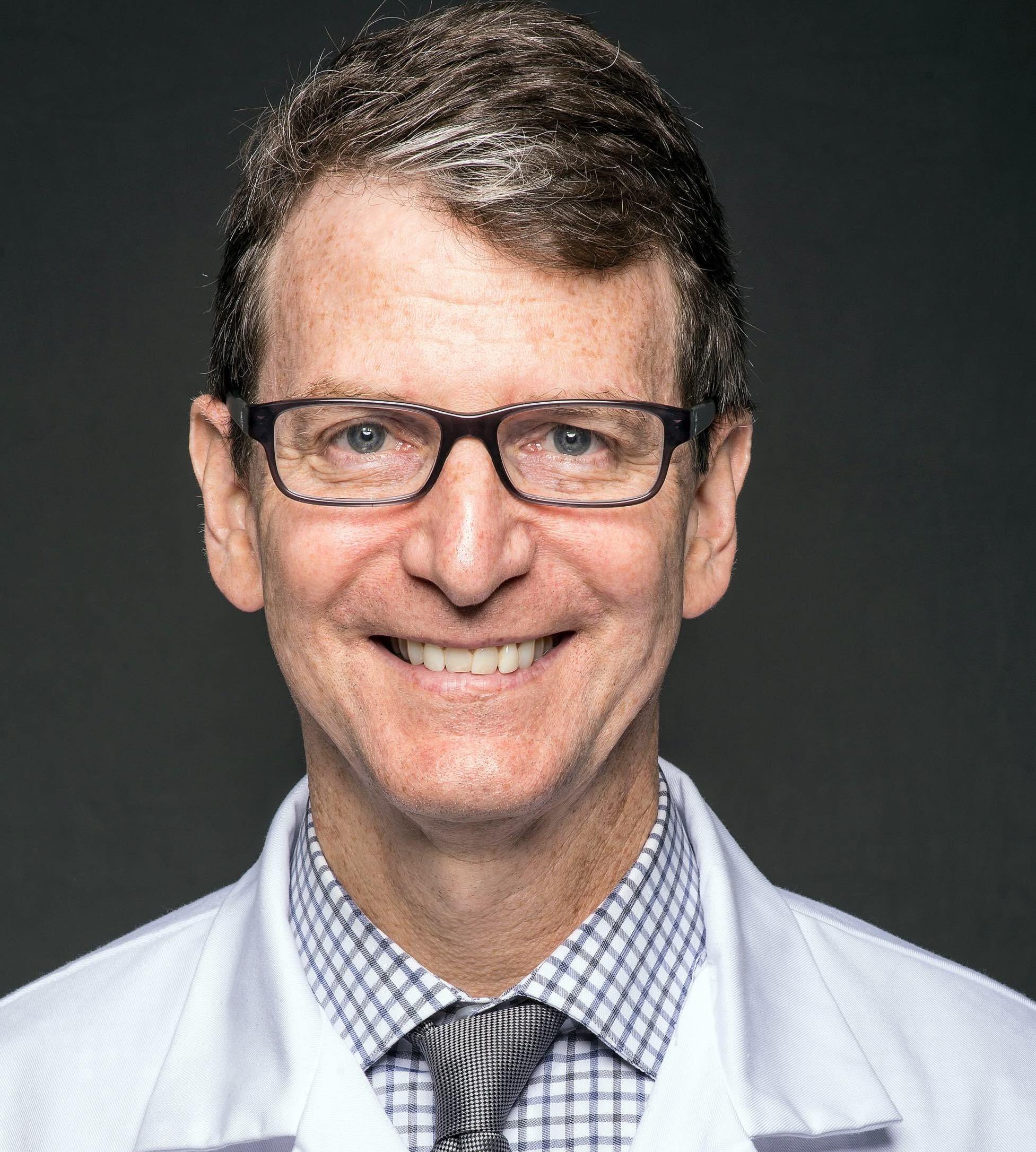
Moderator: Lewis Nelson, MD, MBA, FACMT, FASAM
Chair of Emergency Medicine
Rutgers New Jersey Medical School
Lewis S. Nelson, MD is Professor and Chair of the Department of Emergency Medicine at Rutgers New Jersey Medical School, Chief of Service for the Emergency Department at University Hospital of Newark, and Senior Consultant to the New Jersey Poison Information & Education System. Dr. Nelson is board certified in emergency medicine, medical toxicology, and addiction medicine. His areas of specific interest include preventing and managing the consequences of opioid and other substance use, multimodal pain management strategies, health policy, and medication safety.
Dr. Nelson has served as President of American College of Medical Toxicology and on the Board of Directors of both the American Board of Emergency Medicine and the Accreditation Council for Continuing Medical Education. He is currently the president of Association of Academic Chairs in Emergency Medicine. He is a long time consultant for several governmental agencies including the Centers for Disease Control and Prevention, the Department of Homeland Security, and the Food and Drug Administration. He is an editor of the textbook “Goldfrank’s Toxicologic Emergencies.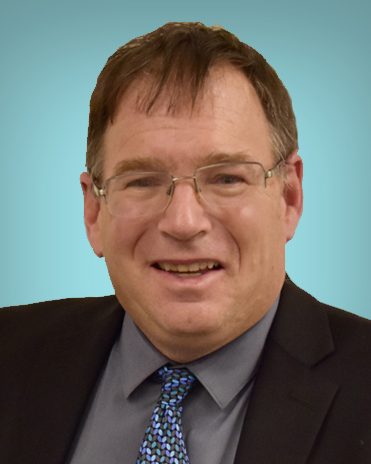
Paul M. Wax, MD, FACMT
Executive Director
American College of Medical Toxicology (ACMT)
Dr. Wax is the Executive Director of the American College of Medical Toxicology. He received his B.A from Dartmouth College, his M.D. from the Mount Sinai School of Medicine, his Emergency Medicine training at the UCLA Hospitals, and his Medical Toxicology training at Bellevue Medicine Center / New York University. He is Board-certified in both Medical Toxicology and Emergency Medicine, and is a Fellow of the American College of Medical Toxicology.
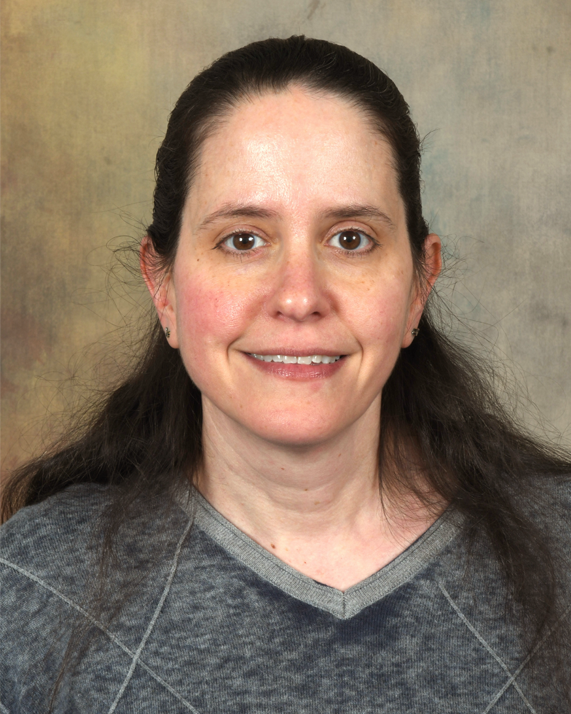
Stephanie Weiss, MD, PhD
Staff Clinician, Translational Addiction Medicine Branch
National Institute on Drug Abuse
Dr. Stephanie Weiss is the Staff Research Physician serving the Translational Addiction Medicine Branch of the National Institute on Drug Abuse’s Intramural Research Program. After earning a Ph.D. in pharmaceutical chemistry, Dr. Weiss received her medical degree in 2011. She is board certified in emergency medicine, addiction medicine, and medical toxicology and was selected to participate in the Boston University Research in Addiction Medicine Scholars Program prior to joining NIDA. Dr. Weiss is responsible for providing optimal, safe, and ethical care to study participants and clinical support toward the TAMB mission conducting inpatient and outpatient proof-of-concept human laboratory studies. Her research interests include novel psychoactive substances, medication misuse, and improving interpretation of urine drug testing.
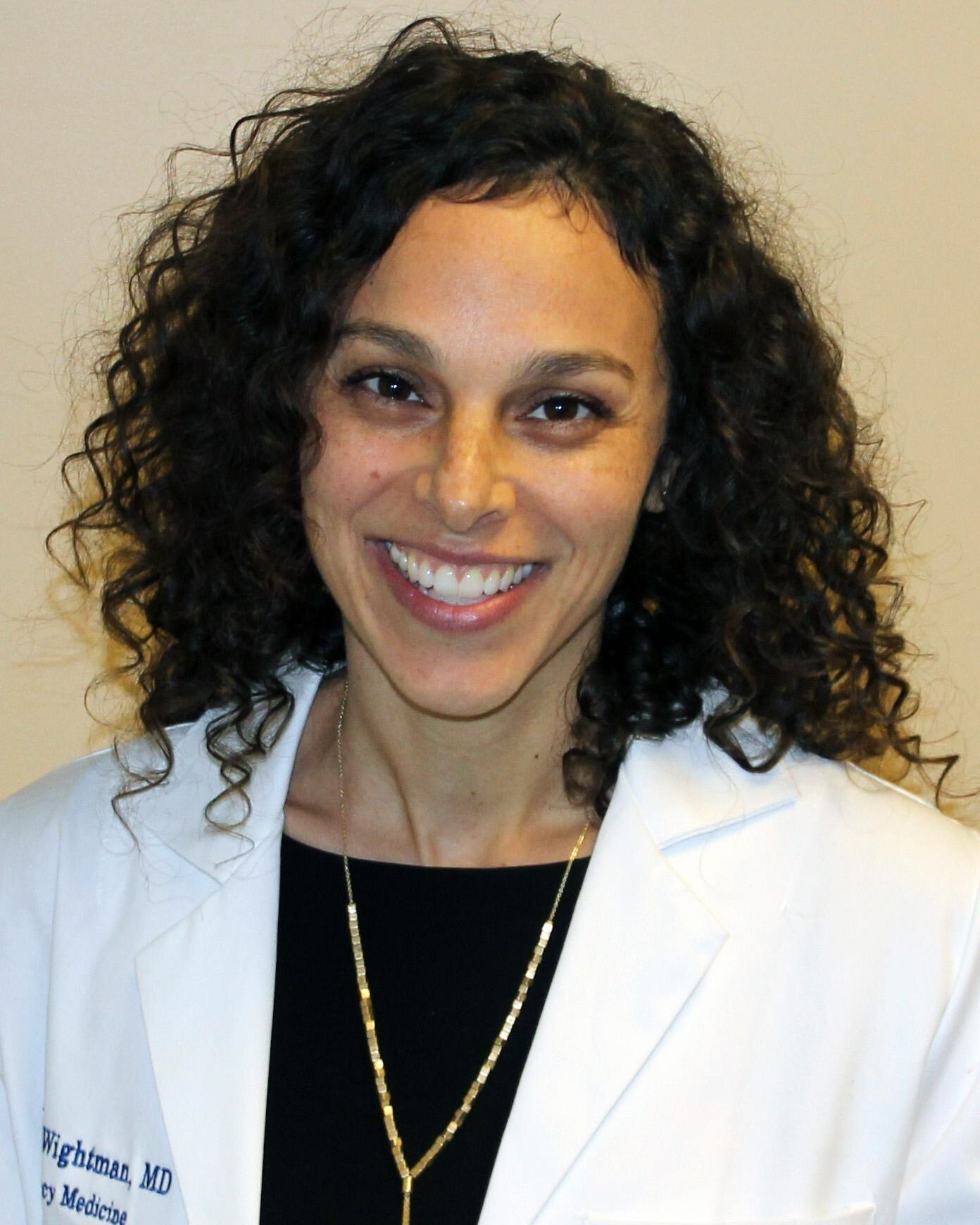
Rachel Wightman, MD, FACMT
Assistant Professor of Emergency Medicine
The Warren Alpert Medical School of Brown University
Dr. Wightman is an Assistant Professor of Emergency Medicine at Alpert Medical School of Brown University. She is a triple board-certified practicing physician in medical toxicology, addiction medicine, and emergency medicine. She serves as Director of Toxicology Education for Brown Emergency Medicine and as faculty in the Addiction Medicine Fellowship at Rhode Island Hospital. She completed medical toxicology fellowship and emergency medicine residency at New York University School of Medicine/ Bellevue Hospital Center.
Dr. Wightman’s primary clinical expertise is in the evaluation and management of drug toxicity syndromes in complex medical patients and enhancing medication safety for high-risk drugs. Her research is focused on evaluation and tracking of emerging drug trends, cannabis hyperemesis syndrome, and medications for treatment of opioid use disorder.
Registration Rates
Registration includes:
- Access to the live virtual event on November 8, 2024
- Access to the on-demand recording for 90 days after the event
- Access to the Speaker slides
- 8.0 Continuing Education Certificate. Available credits: Continuing Medical Education (CME), Continuing Nursing Education (CNE), Continuing Pharmacy Education (CPE), Continuing Medical Education for Physician Assistant (AAPA CME), and Continuing Education for Nurse Practitioners (AANP CE).
Member Rates
Member Tier I: Full, Affiliate, International, Emeritus
$200
Member Tier II: Fellows
$200
Member Tier III: Residents, International - Developing Country
$125
Member IV: Medical Students
$75Non-Member Rates
Non-member Tier I: Physicians, Pharmacists, Lawyers, "Other"
$225
Non-member Tier II: Fellows, SPIs, Nurses, etc.
$225
Non-member Tier III: Educators & Emergency Responders
$150
Non-member IV: Residents & Students
$100
ACMT Membership
ACMT Members receive a discounted rate. Interested in becoming an ACMT Member? Contact our Membership Team at membership@acmt.net. Learn more at: www.acmt.net/membership
Package Rates
Sign up for the all three days of the 2024 ACMT Total Tox Course and save $100!
Refunds and Cancellations
- Cancellations made 15 days or more in advance of the event date will receive a full refund less a 8% processing fee.
- Cancellations made within 14 days of the event date will not receive a refund.
All cancellation requests must be made in writing and emailed to: events@acmt.net. No telephone cancellations will be accepted. A refund that results from a cancellation or change to your registration will be returned to the original payer and in the original method of payment.
Pending review, limited exceptions will be made based on need and circumstance (family emergency, for example) and must be submitted in writing to events@acmt.net. For these instances, the full registration fee, minus a 8% processing fee, will be refunded. Because each exception must undergo a review and approval process, we ask in advance for your patience.
Questions?
For any questions, please email us at events@acmt.net.
Instructions
Once you have completed your registration:
- Click on the Contents tab on the day of live event. This is where you will be able view the Zoom link for the course as well as all required components.
- Complete the Pre-Test. For best the best learning experience, please complete this before the live event on November 1, 2024.
- Watch live event. You can use the Zoom link in the Learning Center to leave and enter the webinar during event.
- Complete the Post-Test. These questions are based on content from the lectures to gauge your comprehension of the lectures. It requires a 80% to pass.
- Complete the Event CE Survey. If you are completing CE, this survey is required.
- Claim your CE certificate. Once you have claimed your CE credit, you will not be able to change your CE certificate.
Full credit can only be claimed after completion of all required components.
Hardware/Software Requirements
Computer or Other Internet-Enabled Device; Internet Connection; Browser.
Materials
None.
Prerequisites
None.
Format
This event is a live Webinar with CME, CNE, CPE, AAPA CME, and AANP CE.
Need Assistance or Have Questions?
For assistance logging in, accessing content, purchasing or completing Continuing Education credits, or for other questions, please contact us at events@acmt.net or visit our FAQ page.
If you are in need of accessible learning accommodations, please contact events@acmt.net for additional assistance.
Continuing Education

Continuing Education credit for this activity is provided by AKH Inc., Advancing Knowledge in Healthcare. The activity is pending approval, and registrants will be able to claim up 8.0 Continuing education credits.
Available Continuing Educations Credits:
- Continuing Pharmacist Education (CPE)
- Continuing Nursing Education (CNE)
- Continuing Medical Education (CME)
- Continuing Medical Education for Physician Assistant (AAPA CME)
- Continuing Education for Nurse Practitioners (AANP CE)
-
Register
- Non-member - Tier I - $225
- Non-member - Tier II - $225
- Non-member - Tier III - $150
- Non-member - Tier IV - $100
- Member - Tier I - $200
- Member - Tier II - $200
- Member - Tier III - $125
- Member - Tier IV - $75
- More Information
-
Contains 5 Component(s), Includes Credits Includes a Live Web Event on 11/01/2024 at 8:50 AM (EDT)CE Credit available
Anti-Inflammatories, Antihistamines, Antitussives, Antidepressants, Antipsychotics, Antimicrobials, and more!
#TotalTox2024
Our first live, virtual session will be on Pharmaceuticals, where speakers will examine systematic approaches to managing poisoned patients, covering mechanisms of toxicity and treatment guidelines for substances like acetaminophen, NSAIDs, and SSRIs. Interactive case panels will allow you to apply theoretical knowledge to real-world scenarios, enhancing your clinical decision-making skills.
Learner Objectives
After attending the event, participants should be able to:
- Discuss general care of poisoned patients including clinical toxidromes, common diagnostic tests, antidotes and other treatment options.
- Recognize, and understand treatment of, specific over-the-counter agent poisonings such as acetaminophen, NSAIDs, and antihistamines.
- Evaluate the toxicity of psychiatric, cardiovascular, anticonvulsant and other prescription medication classes including therapeutic management advances.
Questions?
Please write to ACMT at events@acmt.net
Preliminary Agenda | Session 1 - November 1, 2024
8:50 - 9:00 AM ET | Opening Remarks
9:00 - 9:45 AM ET
From Toxidromes to Activated Charcoal: A Rational Approach For Managing the Poisoned Patient
Ann Arens, MD Associate Professor of Emergency Medicine, University of Minnesota, Minneapolis, MN9:45 - 10:15 AM ET
Over-the-Counter Poisons #1: Acetaminophen
Neeraj Chhabra, MD, MSCR Medical Toxicologist & Emergency Medicine Physician, University of Illinois Chicago, Chicago, IL10:15 - 11:00 AM ET
Over-the-Counter Poisons #2: NSAIDS and ASA
Renee Petzel Gimbar, PharmD Clinical Associate Professor, University of Illinois Chicago College of Pharmacy, Chicago, IL
11:00 - 11:15 AM ET | Break - 15 min
11:15 - 11:30 AM ET
Case Review11:30 - 12:00 PM ET
Over-the-Counter Poisons #3: Antihistamines & Antitussives
Michelle Hieger, DO Emergency Physician and Medical Toxicologist, WellSpan Health & VCU Health System, York, PA12:00 - 12:45 PM ET
The Ins and Outs of Ups and Downs #1: Tricyclic Antidepressants & Antipsychotics
J.J. Rasimas, MD, PhD, FAACT, FACLP, FACMT, FACPsych Professor of Psychiatry & Emergency Medicine, University of Minnesota & Penn State College of Medicine, Minneapolis, MN12:45 - 1:15 PM ET
The Ins and Outs of Ups and Downs #2: SSRIs and Lithium
Katherine Katzung, MD, FACEP, FASAM Director of Addiction & Toxicology Program & Emergency Care Physician, Abbott Northwestern Hospital & Emergency Care Consultants, Minneapolis, MN
1:15 - 1:45 PM ET | Break - 30 min
1:45 - 2:15 PM ET
Beta Blockers and Calcium Channel Blockers: When the Antagonists Become Antagonistic
Katherine Katzung, MD, FACEP, FASAM Director of Addiction & Toxicology Program & Emergency Care Physician, Abbott Northwestern Hospital & Emergency Care Consultants, Minneapolis, MN2:15 - 2:30 PM ET
Case Review2:30 - 3:00 PM ET
Drug-Induced Dysrhythmias: When You Can't Control the Rhythm
William "Russ" Kerns, II, MD, FACMT, FACEP Emeritus Professor of Emergency Medicine, Carolinas Medical Center, Charlotte, NC3:00 - 3:45 PM ET
Anticoagulants and Antithrombotics: When You Can't Control the Bleeding
Nena Bowman, PharmD, DABAT Director of Vaccine Operations, Vaccine Preventable Diseases and Immunization Program, Tennessee Department of Health, Nashville, TN
4:45 - 4:00 PM ET | Break - 15 min
4:00 - 4:30 PM ET
Out of Balance: Toxicity of Endocrine Agents
Charles McKay, MD, FACMT Associate Medical Director, CT Poison Control Center, University of Connecticut School of Medicine, Farmington, CT4:30 - 5:00 PM ET
Anticonvulsants: When the Level Makes You Unsteady
Daniel J. Sessions, MD Medical Toxicologist, Ochsner Medical Center, New Orleans, LA5:00 - 5:30 PM ET
Antimicrobials & Antivirals: When the Cure Becomes Toxic
Maryann Amirshahi, PharmD, MD, MPH, PhD, FACMT Emergency Medicine Attending Physician and Associate Professor Of Emergency Medicine, MedStar Washington Hospital Center & Georgetown University Hospital, Washington, D.C.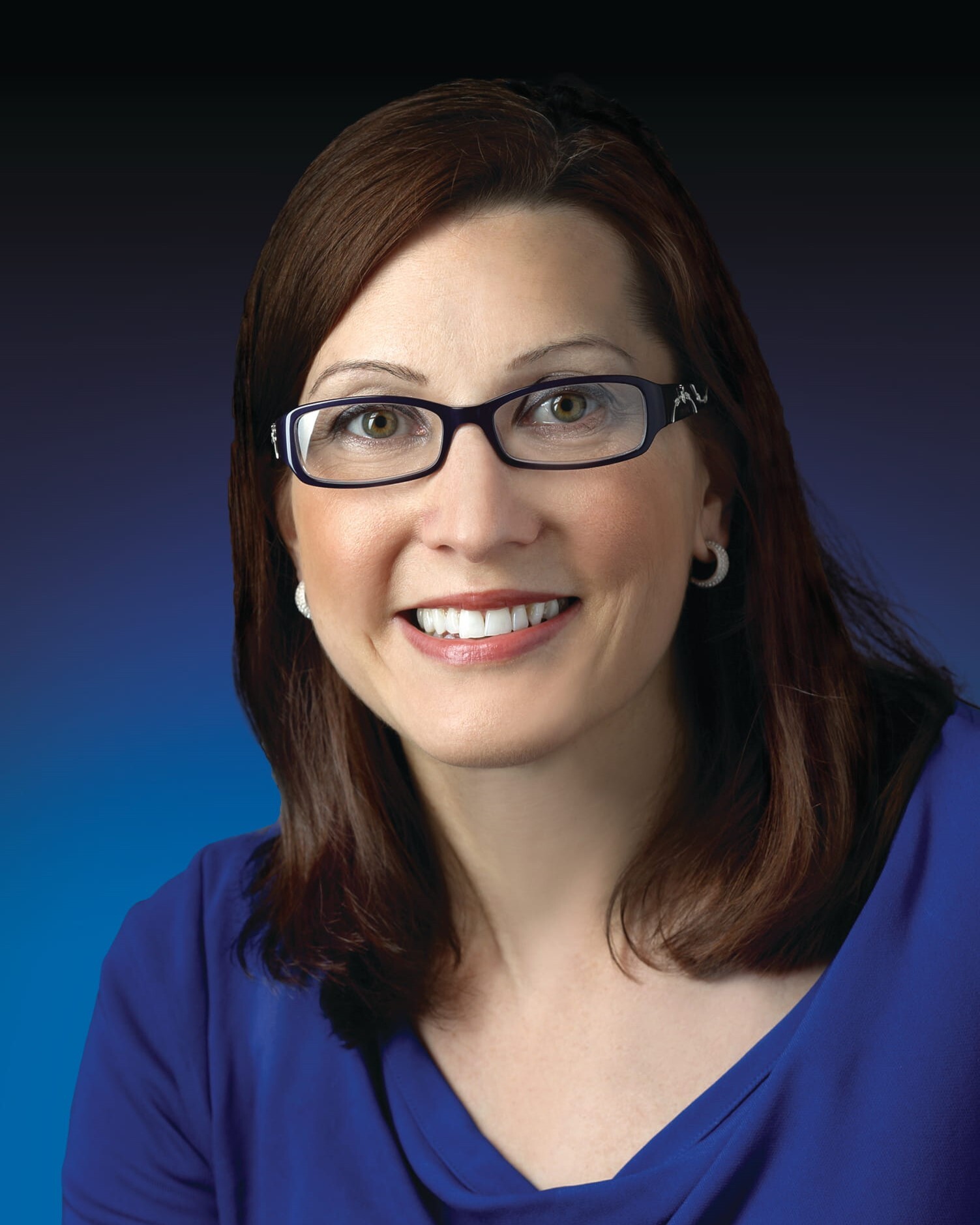
Maryann Amirshahi, PharmD, MD, MPH, PhD, FACMT
Emergency Medicine Attending Physician, Professor Of Emergency Medicine, Co-Medical Director
MedStar Washington Hospital Center, Georgetown University Hospital, National Capital Poison Center
Maryann Amirshahi completed her Bachelors in Pharmacy and PharmD degrees at the University of the Sciences in Philadelphia, followed by medical school at Temple University. She completed her emergency medicine residency at the Hospital of the University of Pennsylvania, medical toxicology fellowship at the George Washington University/National Capital Poison Center, and clinical pharmacology fellowship at Children’s National Medical Center. She also received an MPH from the George Washington University focusing on environmental and occupational health. She completed her PhD at Erasmus University, with a focus on pharmacology and public health. She is board certified in emergency medicine, medical toxicology, addiction medicine, and clinical pharmacology. She is also a registered pharmacist with over a decade of practice experience and is a Board Certified Pharmacotherapy Specialist.
She is a Professor of Emergency Medicine at the Georgetown University School of Medicine in Washington, DC. Maryann practices clinically at MedStar Washington Hospital Center, where she not only treats poisoned patients on a daily basis, but also plays a major role in bringing addiction care to the emergency department setting. She also is active at the health system level with roles in medication safety, opioid stewardship, and resident education. Nationally, she serves on the Board of Directors for the American College of Medical Toxicology. Maryann is currently the co-medical director at the National Capital Poison Center. Maryann is a proliferative researcher with nearly 200 peer-reviewed publications and book chapters. Her research interests include medication safety, medical toxicology, drug shortages, addiction treatment in the emergency department, and prescription drug abuse.
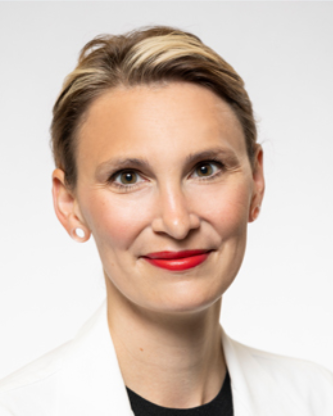
Ann Arens, MD
Emergency Medicine Physician
Ochsner Medical Center
Dr. Arens is an Emergency Medicine physician who practices at Ochsner Medical Center in New Orleans, LA. Dr. Arens completed her Emergency Medicine training at the Denver Health Residency in Emergency Medicine, and her medical toxicology training at the University of California – San Francisco. She was amongst the first toxicologists to identify and describe counterfeit fentanyl products, and has continued to identify outbreaks of new drugs of abuse. She has a broad range of research interests including: the identification of new drugs of abuse including novel opioids contributing to the current opioid epidemic, the use of antidotes, and advanced supportive care of the poisoned patient.
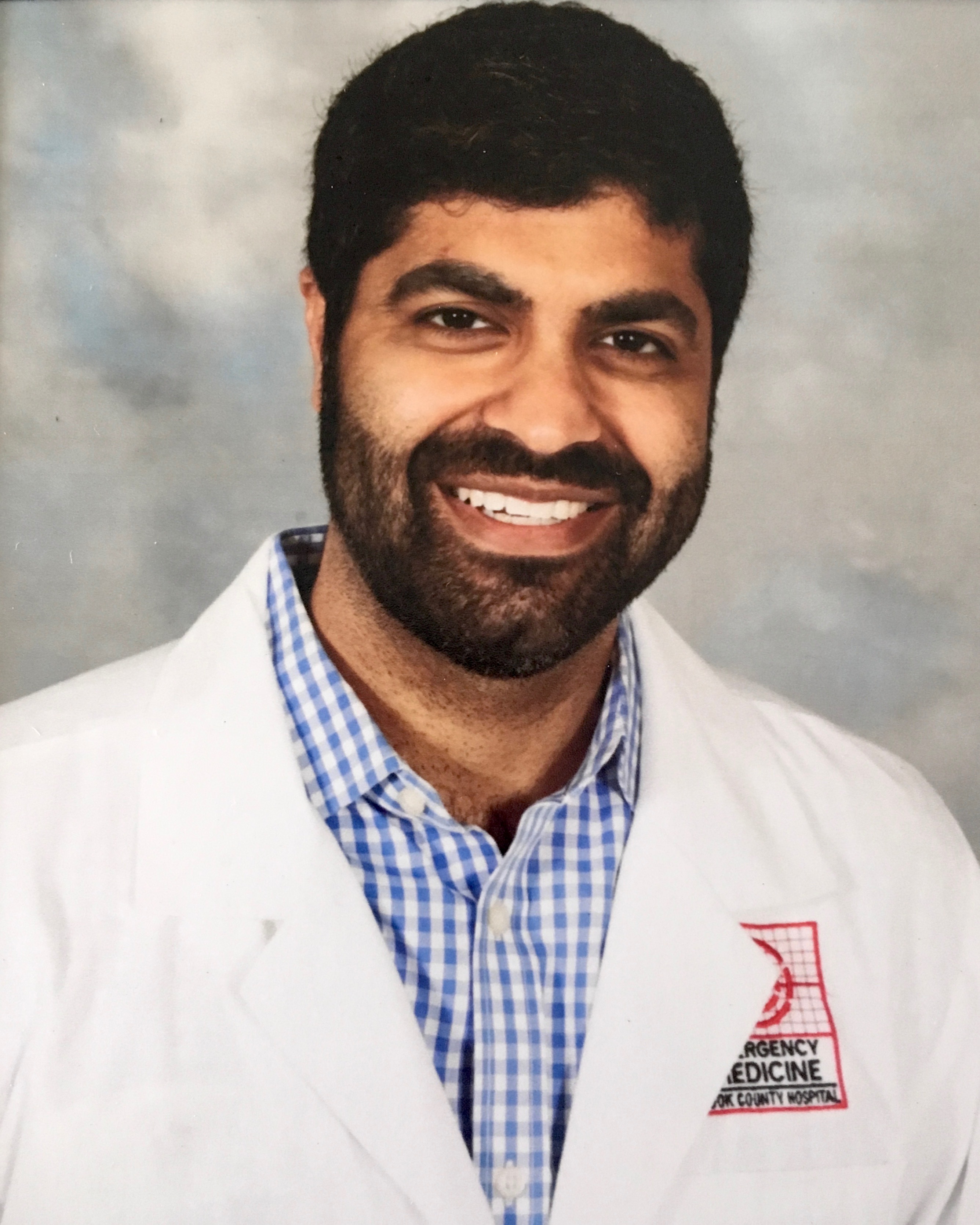
Neeraj Chhabra, MD, MSCR
Medical Toxicologist & Emergency Medicine Physician
University of Illinois Chicago
Neeraj Chhabra, MD, MSCR is an Emergency Physician and Medical Toxicologist based in Chicago, Illinois. He provides medical toxicology consulting services for the Illinois Poison Center and Cook County Health. Dr. Chhabra completed his fellowship in medical toxicology with the Toxikon Consortium in 2017 and his master’s degree in clinical research at Rush University Graduate College in 2020. His clinical focus is on the acute management of poisonings and overdose.

Christina Hantsch, MD, FACEP, FAACT, FACMT
Emergency Physician and Medical Toxicologist
Dr. Hantsch is a graduate of the Honors Program in Medical Education at Northwestern University. She completed an emergency medicine residency, including a year as chief resident, at the Medical College of Wisconsin and then continued her training in a medical toxicology fellowship at Vanderbilt University. After her fellowship, she spent nearly 22 years at Loyola University Chicago Stritch School of Medicine and Loyola University Medical Center. There, she established an inpatient toxicology clinical service and clinical rotations for graduate medical trainees and students in multiple fields. With an interest in medication management and safety, she joined the hospital Pharmacy and Therapeutics Committee, serving as member for 6 years before being appointed chair and leading the committee for another 6 years. Dr. Hantsch earned the academic rank of Professor of Emergency Medicine, was Director of the Division of Toxicology, and Director of Academic Affairs in the Department of Emergency Medicine. As a clinical faculty member, she was appointed to the Stritch Committee on Academic Rank and Tenure, serving for 7 years including 2 as a subcommittee chair leading revision of the clinician educator track guidelines. In 2018, she was the founding Program Director of the Loyola emergency medicine residency. Dr. Hantsch served for more than 8 years as Medical Director of the Illinois Poison Center. In addition, she is a regular organizer and contributor to many local, regional, and national/international continuing education programs. After leaving academics, she worked for the U.S. FDA in pharmacovigilance for a year. As of 2022, she is board certified in addiction medicine in addition to emergency medicine and medical toxicology. Dr. Hantsch was elected to the ACMT Board of Directors in 2021, is a member of the Education Committee, and chair of the Practice Committee.
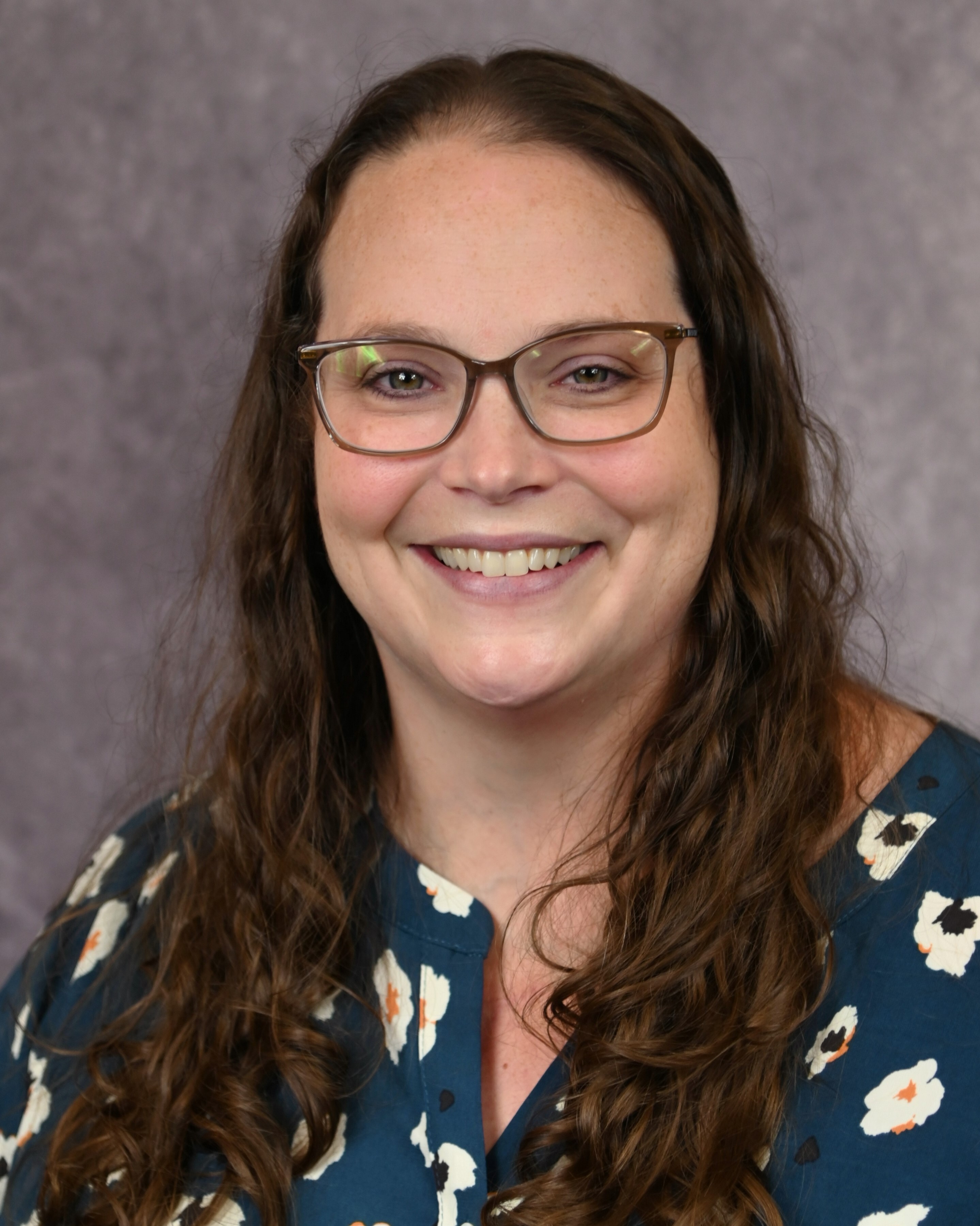
Michelle Hieger, DO
Emergency Physician, Medical Toxicologist, and Addiction Medicine Physician
Wellspan Health, York, PA
I am a board-certified Medical Toxicologist, Addictionologist, and Emergency Medicine physician. I completed my residency at Memorial Hospital in York, PA. My fellowship was completed at Virginia Commonwealth University in Richmond, VA. I currently work at WellSpan York Hospital in York, PA, as an Emergency Physician, Medical Toxicologist, and working with in-patients starting treatment for addiction. I initiated the toxicology service at York Hospital and now I am the Medical Director for Medical Toxicology. I am interested in treating the poisoned patients at bedside, and especially interested in the antidotal therapy with physostigmine (if it returns) and flumazenil. I enjoy professional engagement with ACMT.
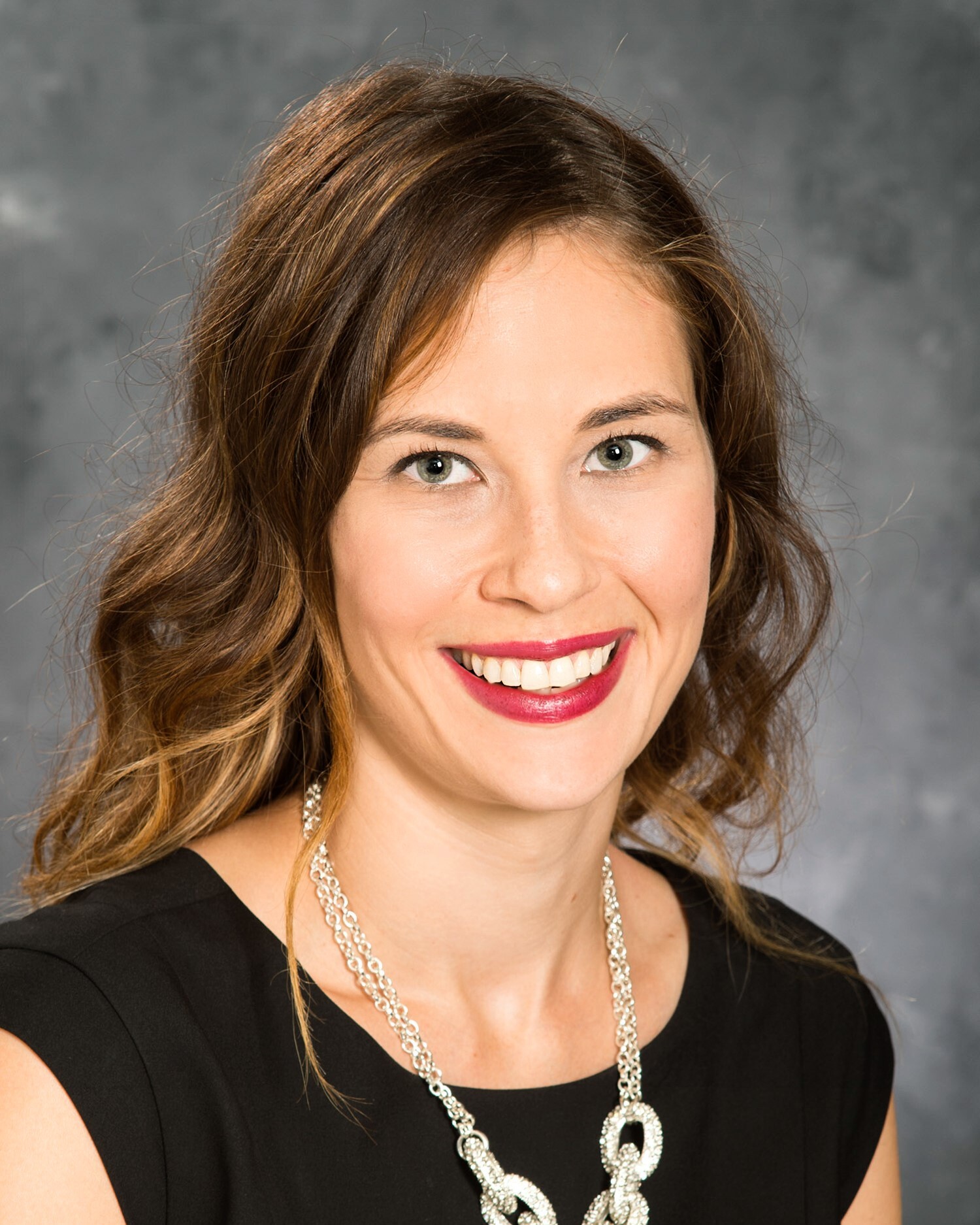
Katherine Katzung, MD, FACEP, FASAM
Director of Addiction & Toxicology Program & Emergency Care Physician
Abbott Northwestern Hospital & Emergency Care Consultants
Katherine Katzung, MD is an attending physician in the emergency department at Abbott Northwestern, where she serves as chair of the department. Additionally, she is the medical director of the hospital’s addiction medicine and toxicology program, which began in 2020 after she received grant funding to initiate a hospital-based toxicology/addiction medicine consult service as well as an emergency department-based addiction medicine "bridge" clinic to provide continuity of care for patients initiated on Suboxone. This innovative program allows patients evaluated at Abbott Northwestern in the emergency department or inpatient units continuity of care, while focusing on harm-reduction strategies, until they can be given a warm hand-off to community providers.
A graduate of the University of Minnesota School of Medicine, she completed emergency medicine training at Regions Hospital in St. Paul and additional fellowship training in medical toxicology. She is board certified in emergency medicine, medical toxicology, and addiction medicine. Her clinical interests surround the intersection of these 3 specialties, with special focus on early ED & hospital-based interventions to evaluate and treat substance use disorder, including initiation of medication assisted therapies.
She volunteers as a consultant for the Minnesota Poison Control System in addition to serving on the board of the Steve Rummler HOPE Network and acts as medical director of its overdose prevention program.
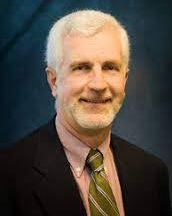
William "Russ" Kerns, II, MD, FACMT, FACEP
Emeritus Professor of Emergency Medicine
Carolinas Medical Center
Dr. Kerns trained in Emergency Medicine and Medical Toxicology and served as Professor in both disciplines at Carolinas Medical Center for 33 years. Faculty roles included leadership of the Medical Toxicology Fellowship and clinical division, consultation for the Carolinas Poison Center, and research. Research interests included antidotes, envenomation, and resuscitation of cardiotoxic drugs. He also served the ACMT focusing on advancing research and education.

Charles McKay, MD, FACMT
Associate Medical Director
CT Poison Control Center, University of Connecticut School of Medicine
Dr. McKay was trained in Anatomic and Surgical Pathology, Internal Medicine, Emergency Medicine, Medical Toxicology and was a Medical Director of Occupational Health and Medical Review Officer for a hospital system during more than 30 years of clinical practice, during which he provided toxicology consultation at 3 hospitals, directed a medical toxicology fellowship training program, and provided medical oversight of a regional poison control center. He provides medical legal consultation across the country on toxicology-related issues, and has testified in nearly 100 cases, many related to questions of alcohol- and -drug-induced impairment.
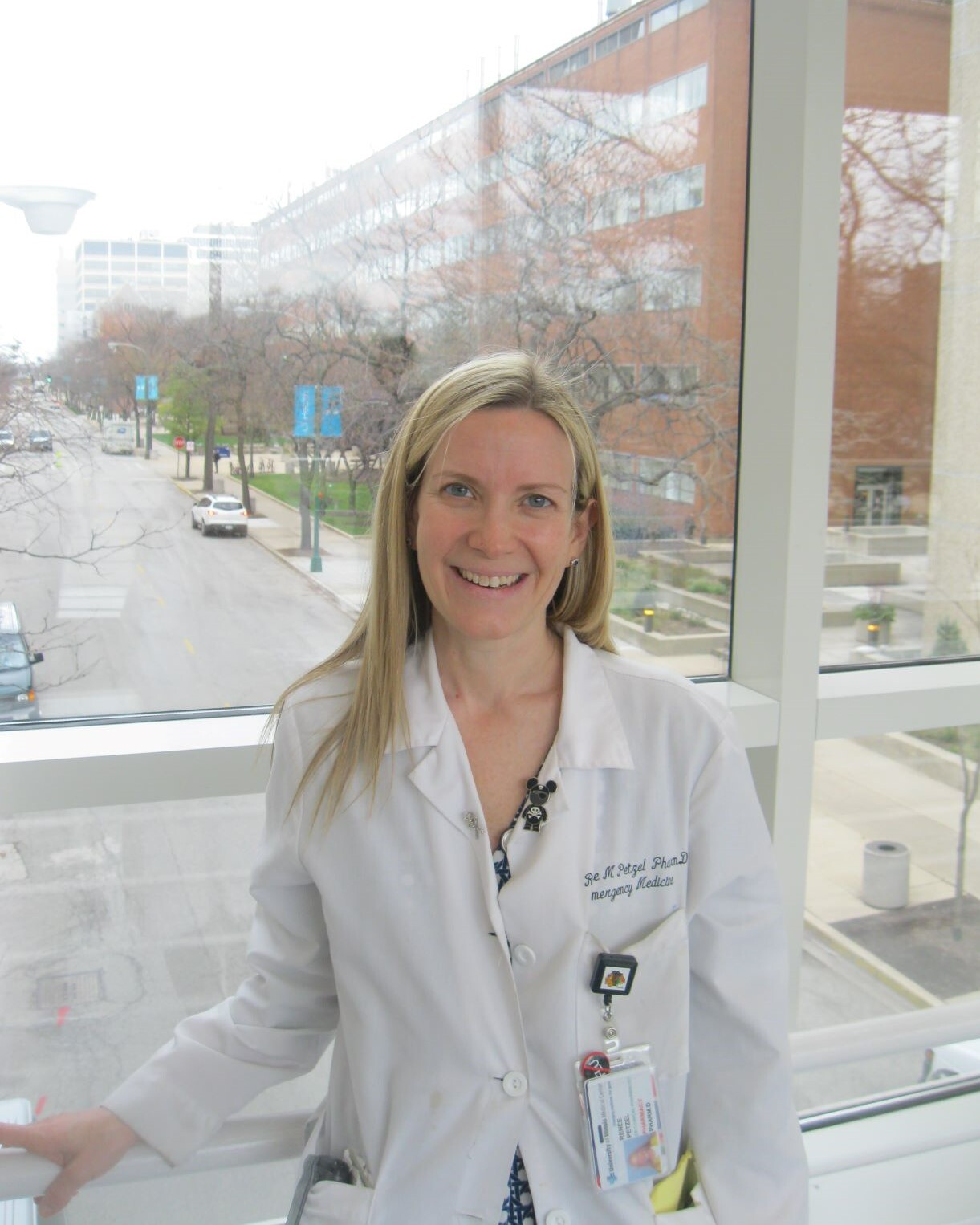
Renee Petzel Gimbar, PharmD
Clinical Associate Professor
University of Illinois Chicago College of Pharmacy
Renee Petzel Gimbar received her PharmD from the University of Illinois at Chicago College of Pharmacy and completed PGY-1 training at UIC and PGY-2 training at Rutgers University. She started emergency medicine pharmacy services at the University of Tennessee Medical Center Knoxville and Loyola University Medical Center. She was inducted as a fellow of the American Academy of Clinical Toxicology in 2019. She currently is a clinical associate professor in the department of pharmacy practice at UIC College of Pharmacy, an Emergency Medicine and Medical Toxicology Clinical Pharmacist at UI Health, and the Residency Program Director for the PGY-2 Emergency Medicine Pharmacy Residency. She has integrated herself in the emergency medicine and medical toxicology services at both Loyola and UIC, active in the acute care of patients, didactic and beside education of healthcare trainees. Dr. Petzel Gimbar has been involved in multiple research studies and publications related to emergency medicine and toxicology practice, including a current multi-year NIH study addressing emergency department hypertension in underserved patients. She has given invited lectures internationally and nationally on both emergency medicine and medical toxicology topics. At home, she attempts to manage her nine, seven, and five year olds without a toxic ingestion.
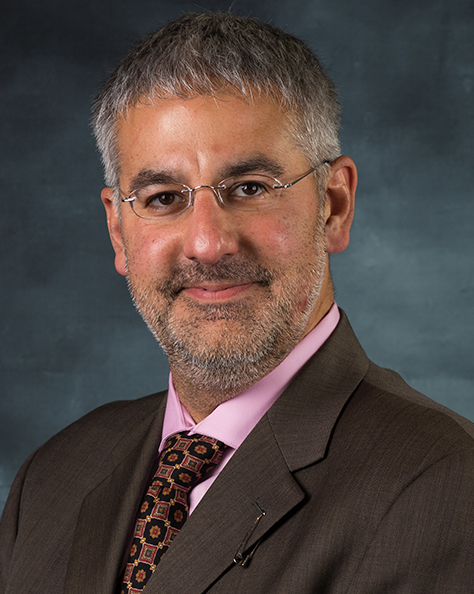
J.J. Rasimas, PhD, MD, FAACT, FACLP, FACMT, FACPsych
Professor of Psychiatry & Emergency Medicine
Dalhousie University, University of Minnesota, & Penn State College of Medicine
Dr. Rasimas has a Jesuit university background in biochemistry, mathematics, and philosophy. He completed the Medical Scientist Training Program, earning a PhD in chemical biology (2002) and MD (2003) from Penn State University. After Psychiatry residency at the Mayo Clinic, he was a clinical fellow at the National Institutes of Health in Washington, DC where he did translational research and trained in medical ethics. He also undertook formal education in psychoanalytic psychotherapy, completed the critical care based medical toxicology fellowship at Penn State, and became certified in Psychosomatic Medicine, Addiction Medicine, and Medical Toxicology. Further work at NIH has included the Undiagnosed Diseases Program and roles in research ethics and oversight. Dr. Rasimas was the Director of Consultation-Liaison Psychiatry and Co-Chair of the Biomedical Ethics Committee at Hennepin County Medical Center in Minneapolis, Minnesota before moving to Prince Edward Island, Canada in 2022. Based at Queen Elizabeth Hospital in Charlottetown, he served as the lead Psychiatrist for C-L and Addictions for the province. He has recently transitioned to Nova Scotia Health in an effort to build treatment programs for patients with complex psychosomatic illnesses and substance use. For PEI, Dr. Rasimas remains the Medical Director of the Atlantic Mentorship Network for Chronic Pain, Addictions, and Mental Illness. Dr. Rasimas is a university professor with continued involvement in medical education in both the US and Canada pursuing an academic medical career at the interface of psychosomatic medicine, medical toxicology, and psychodynamic psychotherapy with a primary clinical interest in the phenomenology of suicide.
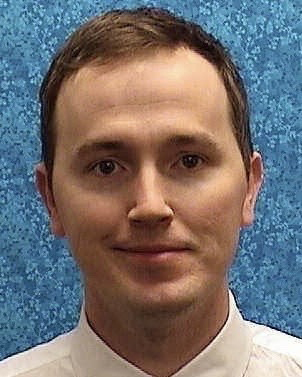
Daniel J. Sessions, MD, FACMT, FASAM, FAAEM
Chief, Division of Medical Toxicology
Ochsner Medical Center
Dr. Sessions practices medical toxicology, emergency medicine and addiction medicine at Ochsner Health in the New Orleans area. Dr. Sessions has expertise in poisoning and drug overdose, envenomation, toxic occupational exposure, medication assisted therapy for opioid and alcohol use disorder and forensic toxicology. Dr. Sessions earned his degree in medicine from Louisiana State University School of Medicine in New Orleans in 2008. He is board-certified in emergency medicine and medical toxicology by the American Board of Emergency Medicine in 2012 and 2014. He completed a medical toxicology fellowship at the Rocky Mountain Poison & Drug Center at Denver health in Denver in 2013. He is board-certified in addiction medicine by the American Board of Preventative Medicine in 2022. Dr. Sessions actively participates in the American Academy of Emergency Medicine, the American College of Medical Toxicology, the American Academy of Clinical Toxicology and the American Society of Addiction Medicine.
Registration Rates
Registration includes:
- Access to the live virtual event on November 1, 2024
- Access to the on-demand recording for 90 days after the event
- Access to the Speaker slides
- 8.0 Continuing Education Certificate. Available credits: Continuing Medical Education (CME), Continuing Nursing Education (CNE), Continuing Pharmacy Education (CPE), Continuing Medical Education for Physician Assistant (AAPA CME), and Continuing Education for Nurse Practitioners (AANP CE).
Member Rates
Member Tier I: Full, Affiliate, International, Emeritus
$200
Member Tier II: Fellows
$200
Member Tier III: Residents, International - Developing Country
$125
Member IV: Medical Students
$75Non-Member Rates
Non-member Tier I: Physicians, Pharmacists, Lawyers, "Other"
$225
Non-member Tier II: Fellows, SPIs, Nurses, etc.
$225
Non-member Tier III: Educators & Emergency Responders
$150
Non-member IV: Residents & Students
$100
ACMT Membership
ACMT Members receive a discounted rate. Interested in becoming an ACMT Member? Contact our Membership Team at membership@acmt.net. Learn more at: www.acmt.net/membership
Package Rates
Sign up for the all three days of the 2024 ACMT Total Tox Course and save $100!
Refunds and Cancellations
- Cancellations made 15 days or more in advance of the event date will receive a full refund less a 8% processing fee.
- Cancellations made within 14 days of the event date will not receive a refund.
All cancellation requests must be made in writing and emailed to: events@acmt.net. No telephone cancellations will be accepted. A refund that results from a cancellation or change to your registration will be returned to the original payer and in the original method of payment.
Pending review, limited exceptions will be made based on need and circumstance (family emergency, for example) and must be submitted in writing to events@acmt.net. For these instances, the full registration fee, minus a 6% processing fee, will be refunded. Because each exception must undergo a review and approval process, we ask in advance for your patience.
Questions?
For any questions, please email us at events@acmt.net.
Instructions
Once you have completed your registration:
- Click on the Contents tab on the day of live event. This is where you will be able view the Zoom link for the course as well as all required components.
- Complete the Pre-Test. For best the best learning experience, please complete this before the live event on November 1, 2024.
- Watch live event. You can use the Zoom link in the Learning Center to leave and enter the webinar during event.
- Complete the Post-Test. These questions are based on content from the lectures to gauge your comprehension of the lectures. It requires a 80% to pass.
- Complete the Event CE Survey. If you are completing CE, this survey is required.
- Claim your CE certificate. Once you have claimed your CE credit, you will not be able to change your CE certificate.
Full credit can only be claimed after completion of all required components.
Hardware/Software Requirements
Computer or Other Internet-Enabled Device; Internet Connection; Browser.
Materials
None.
Prerequisites
None.
Format
This event is a live Webinar with CME, CNE, CPE, AAPA CME, and AANP CE.
Need Assistance or Have Questions?
For assistance logging in, accessing content, purchasing or completing Continuing Education credits, or for other questions, please contact us at events@acmt.net or visit our FAQ page.
If you are in need of accessible learning accommodations, please contact events@acmt.net for additional assistance.
Continuing Education

Continuing Education credit for this activity is provided by AKH Inc., Advancing Knowledge in Healthcare. The activity is pending approval, and registrants will be able to claim up 8.0 Continuing education credits.
Available Continuing Educations Credits:
- Continuing Pharmacist Education (CPE)
- Continuing Nursing Education (CNE)
- Continuing Medical Education (CME)
- Continuing Medical Education for Physician Assistant (AAPA CME)
- Continuing Education for Nurse Practitioners (AANP CE)
-
Register
- Non-member - Tier I - $225
- Non-member - Tier II - $225
- Non-member - Tier III - $150
- Non-member - Tier IV - $100
- Member - Tier I - $200
- Member - Tier II - $200
- Member - Tier III - $125
- Member - Tier IV - $75
- More Information
-
Contains 3 Product(s)CE Credit available
Pharmaceuticals, SUD & Emergency Preparedness, and Non-Pharm
#TotalTox2024
Join us for the ultimate virtual toxicology learning experience with the 2024 ACMT Total Tox Course | Live Event Package!
During this live, virtual event, earn valuable continuing education credits, learn from leading experts and peers, and enhance your clinical skills and preparedness for a wide range of toxicological emergencies. Included with your registration fee are up to 24.0 (8.0 per day) of continuing education credits for Physicians, Physician Assistants, Pharmacists, Nurses, and Nurse Practitioners. Learn from leading experts and peers, and enhance your clinical skills and preparedness for a wide range of toxicological emergencies. Secure your spot in the ACMT Total Tox Course today!
This course will focus on the follow medical toxicology topics:
Pharmaceuticals - Friday, 11/01/2024
Our first session will examine systematic approaches to managing poisoned patients, covering mechanisms of toxicity and treatment guidelines for substances like acetaminophen, NSAIDs, and SSRIs. Interactive case panels will allow you to apply theoretical knowledge to real-world scenarios, enhancing your clinical decision-making skills.
SUD & Emergency Preparedness - Friday, 11/08/2024
The first half of this session will cover substance use topics like opioid addiction, cannabis toxicity, and new substances. Experts will also discuss drug screen issues, pulmonary irritants, and the effects of mitochondrial asphyxiants on first responders to chemical suicides. We will conclude with a focus on disaster preparedness, including radiation types and symptom management, nerve agents, and a brief history of bioterrorism and identification of agents. Interactive case panels with expert speakers will focus on substance use disorder and disaster preparedness.
Non-Pharmaceuticals - Friday, 11/15/2024
The final session of the Total Tox Course will focus on the toxicology of plants and mushrooms, and reptile, marine, and arthropod envenomations. Experts will also cover anesthetic toxicity, malignant hyperthermia, and methemoglobinemia. Gain expertise in managing heavy metal poisoning and the complexities of ethanol and toxic alcohol intoxication. Participate in interactive case panels on novel treatments for critically ill patients and evaluation of an unknown potential toxicology issue, bringing together all your knowledge from the Total Tox Course.
Questions?
Please write to ACMT at events@acmt.net
Preliminary Agenda
Session 1 - November 1, 2024
8:50 - 9:00 AM ET | Opening Remarks
9:00 - 9:45 AM ET
From Toxidromes to Activated Charcoal: A Rational Approach For Managing the Poisoned Patient
Ann Arens, MD Associate Professor of Emergency Medicine, University of Minnesota, Minneapolis, MN9:45 - 10:15 AM ET
Over-the-Counter Poisons #1: Acetaminophen
Neeraj Chhabra, MD, MSCR Medical Toxicologist & Emergency Medicine Physician, Cook County Health & NorthShore University HealthSystem, Chicago, IL10:15 - 11:00 AM ET
Over-the-Counter Poisons #2: NSAIDS and ASA
Renee Petzel Gimbar, PharmD Clinical Associate Professor, University of Illinois Chicago College of Pharmacy, Chicago, IL
11:00 - 11:15 AM ET | Break - 15 min
11:15 - 11:30 AM ET
Case Review11:30 - 12:00 PM ET
Over-the-Counter Poisons #3: Antihistamines & Antitussives
Michelle Hieger, DO Emergency Physician and Medical Toxicologist, WellSpan Health & VCU Health System, York, PA12:00 - 12:45 PM ET
The Ins and Outs of Ups and Downs #1: Tricyclic Antidepressants & Antipsychotics
J.J. Rasimas, MD, PhD, FAACT, FACLP, FACMT, FACPsych Professor of Psychiatry & Emergency Medicine, University of Minnesota & Penn State College of Medicine, Minneapolis, MN12:45 - 1:15 PM ET
The Ins and Outs of Ups and Downs #2: SSRIs and Lithium
Katherine Katzung, MD, FACEP, FASAM Director of Addiction & Toxicology Program & Emergency Care Physician, Abbott Northwestern Hospital & Emergency Care Consultants, Minneapolis, MN
1:15 - 1:45 PM ET | Break - 30 min
1:45 - 2:15 PM ET
Beta Blockers and Calcium Channel Blockers: When the Antagonists Become Antagonistic
Katherine Katzung, MD, FACEP, FASAM Director of Addiction & Toxicology Program & Emergency Care Physician, Abbott Northwestern Hospital & Emergency Care Consultants, Minneapolis, MN2:15 - 2:30 PM ET
Case Review2:30 - 3:00 PM ET
Drug-Induced Dysrhythmias: When You Can't Control the Rhythm
William "Russ" Kerns, II, MD, FACMT, FACEP Emeritus Professor of Emergency Medicine, Carolinas Medical Center, Charlotte, NC3:00 - 3:45 PM ET
Anticoagulants and Antithrombotics: When You Can't Control the Bleeding
Nena Bowman, PharmD, DABAT Director of Vaccine Operations, Vaccine Preventable Diseases and Immunization Program, Tennessee Department of Health, Nashville, TN
4:45 - 4:00 PM ET | Break - 15 min
4:00 - 4:30 PM ET
Out of Balance: Toxicity of Endocrine Agents
Charles McKay, MD, FACMT Associate Medical Director, CT Poison Control Center, University of Connecticut School of Medicine, Farmington, CT4:30 - 5:00 PM ET
Anticonvulsants: When the Level Makes You Unsteady
Daniel J. Sessions, MD Medical Toxicologist, Ochsner Medical Center, New Orleans, LA5:00 - 5:30 PM ET
Antimicrobials & Antivirals: When the Cure Becomes Toxic
Maryann Amirshahi, PharmD, MD, MPH, PhD, FACMT Emergency Medicine Attending Physician and Associate Professor Of Emergency Medicine, MedStar Washington Hospital Center & Georgetown University Hospital, Washington, D.C.
Session 2 - November 8, 2024
8:50 - 9:00 AM ET | Opening Remarks
9:00 - 9:45 AM ET
The New Dangers of Opioid Addiction
Lewis Nelson, MD, FACEP Chair of Emergency Medicine, Rutgers New Jersey Medical School, Newark, NJ9:45 - 10:15 AM ET
Management Options for Opioid Use Disorder
Rachel Wightman, MD, FACMT Assistant Professor of Emergency Medicine, The Warren Alpert Medical School of Brown University, Providence, RI10:15 - 10:45 AM ET
Cannabis & Cannabis Toxicity
Mark Neavyn, MD, FACMT Medical Director & Emergency Medicine Physician, Northern New England Poison Center & Maine Medical Center, Portland, ME
10:45 - 11:00 AM ET | Break (15 min)
11:00 - 11:15 AM ET
What's New in Your Neighborhood?
Stephanie Weiss, MD, PhD Staff Clinician, Translational Addiction Medicine Branch, National Institute on Drug Abuse, Baltimore, MD11:15 - 12:00 PM ET
Case Review12:00 - 12:30 PM ET
Drug Screen Pitfalls
Paul M. Wax, MD, FACMT Executive Director, American College of Medical Toxicology (ACMT), Phoenix, AZ
12:30 - 1:00 PM ET | Break (30 min)
1:00 - 1:45 PM ET
Pulmonary Irritants & Simple Asphyxiants
Charles McKay, MD, FACMT Associate Medical Director, CT Poison Control Center, University of Connecticut School of Medicine, Farmington, CT1:45 - 2:15 PM ET
Chemical Suicide & Mitochondrial Asphyxiants
Paul M. Wax, MD, FACMT Executive Director, American College of Medical Toxicology (ACMT), Phoenix, AZ2:15 - 2:45 PM ET
Carbon Monoxide Poisoning: High Flow Oxygen or the Hyperbaric Chamber
Kelly Johnson-Arbor, MD, FACEP, FUHM, FACMT Medical Director, National Capital Poison Center & MedStar Georgetown University Hospital, Washington, DC2:45 - 3:15 PM ET
Disaster Preparedness #1: Radiation Events
Joseph K. Maddry, Lt Col, USAF, MC, FS, MD, FACMT Deputy Commander, Department of Emergency Medicine, US Army Institute of Surgical Research, Houston, TX
3:15 - 3:30 PM ET | Break (15 min)
3:30 - 4:00 PM ET
Disaster Preparedness #2: Organophosphates & New Agents
Christina Hantsch, MD, FACEP, FACMT, FAACT Emergency Physician and Medical Toxicologist, Loyola University Chicago Stritch School of Medicine Maywood, IL4:00 - 4:45 PM ET
Disaster Preparedness #3: Other Chemical & Biological Terrorism
Aaron Frey, DO Emergency Medicine Attending Physician and Medical Toxicology Fellow, Richmond Emergency Physicians, Inc. & University of Virginia, Richmond, VA4:45 - 5:30 PM ET
Case Review
Session 3 - November 15, 2024
8:50 - 9:00 AM ET | Opening Remarks
9:00 - 9:30 AM ET
Hospital Hazards #1: Anesthetic Toxicity & Malignant Hyperthermia
Shaun D. Carstairs, MD, FACMT Medical Toxicologist, 98point6, Inc., Seattle, WA9:30 - 10:00 AM ET
Hospital Hazards #2: Methemoglobinemia
Andrea Carlson, MD Emergency Medicine Physician10:00 - 10:30 AM ET
Heavy Metals In the ED: Lead, Arsenic & Mercury
Evan Schwarz, MD, FACMT Associate Professor of Emergency Medicine, Washington University School of Medicine, St. Louis, MO
10:30 - 10:45 AM ET | Break (15 min)
10:45 - 11:45 AM ET
Case Panel: Novel Treatments for the Crashing Patient; Hot Patient Case11:45 - 12:30 PM ET
Ethanol Intoxication: Too Much Of a Good Thing
Anthony Pizon, MD, FACMT Chief of Medical Toxicology Division, Professor of Emergency Medicine, University of Pittsburgh, Pittsburgh, PA12:30 - 1:15 PM ET
When It's Not Ethanol: Demystifying Toxic Alcohols
Bram Dolcourt, MD Clinical Assistant Professor Department of Emergency Medicine, Wayne State University, Detroit, MI
1:15 - 1:45 PM ET | Break (30 min)
1:45 - 2:15 PM ET
Ethanol Withdrawal: When the Good Times End
Jerrold Blair Leikin, MD, FACP, FACEP, FACMT, FAACT, FACOEM, FASAM Adjunct Clinical Professor Division of Environmental and Occupational Health Sciences & Professor of Medicine, University of Illinois Chicago and Rosalind Franklin University of Medicine & Science, North Chicago, IL2:15 - 2:45 PM ET
Don't Touch That! Marine, Arthropod & Reptile Envenomations
Michael Levine, MD, FACMT Associate Professor of Emergency Medicine, University of California Los Angeles, Los Angeles, CA2:45 - 3:15 PM ET
The Toxic Yard
Fiona Garlich Horner, MD Head of Toxicology & Assistant Professor of Clinical Emergency Medicine, LAC+USC Medical Center & University of Southern California Keck School of Medicine, Los Angeles, CA3:15 - 3:45 PM ET
The Toxic House
Ashley Haynes, MD, FACEP Medical Director, Addiction Toxicology of Kansas, Wichita, KS
3:45 - 4:00 PM ET | Break (20 min)
4:00 - 4:30 PM ET
The Toxic Cabinet
Stephen Wood, MS, ACNP-BC, FEWM Acute Care Nurse Practitioner & Director of Advanced Practice Providers, St. Elizabeth’s Medical Center, Brighton, MA4:30 - 5:00 PM ET
The Toxic Garage
Andrew King, MD Associate Professor in the Department of Emergency Medicine & Medical Director, Wayne State University School of Medicine & Michigan Poison and Drug Information Center, Detroit, MI5:00 - 5:30 PM ET
Case PanelRegistration Rates
Registration includes:
- Access to all three sessions of the live virtual event on November 1, 8, 15, 2024
- Access to the on-demand recording for 90 days after the event
- Access to the Speaker slides
- 24.0 Continuing Education Certificate. Available credits: Continuing Medical Education (CME), Continuing Nursing Education (CNE), Continuing Pharmacy Education (CPE), Continuing Medical Education for Physician Assistant (AAPA CME), and Continuing Education for Nurse Practitioners (AANP CE).
Member Rates
Member Tier I: Full, Affiliate, International, Emeritus
$500
Member Tier II: Fellows
$500
Member Tier III: Residents, International - Developing Country
$275
Member IV: Medical Students
$125Non-Member Rates
Non-member Tier I: Physicians, Pharmacists, Lawyers, "Other"
$575
Non-member Tier II: Fellows, SPIs, Nurses, etc.
$575
Non-member Tier III: Educators & Emergency Responders
$350
Non-member IV: Residents & Students
$200
ACMT Membership
ACMT Members receive a discounted rate. Interested in becoming an ACMT Member? Contact our Membership Team at membership@acmt.net. Learn more at: www.acmt.net/membership
Refunds and Cancellations
- Cancellations made 15 days or more in advance of the event date will receive a full refund less a 8% processing fee.
- Cancellations made within 14 days of the event date will not receive a refund.
All cancellation requests must be made in writing and emailed to: events@acmt.net. No telephone cancellations will be accepted. A refund that results from a cancellation or change to your registration will be returned to the original payer and in the original method of payment.
Pending review, limited exceptions will be made based on need and circumstance (family emergency, for example) and must be submitted in writing to events@acmt.net. For these instances, the full registration fee, minus a 8% processing fee, will be refunded. Because each exception must undergo a review and approval process, we ask in advance for your patience.
Questions?
For any questions, please email us at events@acmt.net.
Continuing Education

Continuing Education credit for this activity is provided by AKH Inc., Advancing Knowledge in Healthcare. The activity is pending approval, and registrants will be able to claim up to 24.0 Continuing education credits by attending all three sessions for the ACMT Total Tox Course.
Available Continuing Educations Credits:
- Continuing Pharmacist Education (CPE)
- Continuing Nursing Education (CNE)
- Continuing Medical Education (CME)
- Continuing Medical Education for Physician Assistant (AAPA CME)
- Continuing Education for Nurse Practitioners (AANP CE)
-
Register
- Non-member - Tier I - $575
- Non-member - Tier II - $575
- Non-member - Tier III - $350
- Non-member - Tier IV - $200
- Member - Tier I - $500
- Member - Tier II - $500
- Member - Tier III - $275
- Member - Tier IV - $125
- More Information
-
Contains 4 Component(s) Includes a Live Web Event on 10/17/2024 at 1:00 AM (EDT)
Cases to be announced.
NCC - 10/2024
Cases to be announced.
Series Moderator: Lewis Nelson, MD, FACMT, Rutgers New Jersey Medical School, Newark, NJ
About The Series: ACMT's National Case Conference (NCC) is a monthly webinar for ACMT members that features interesting cases seen by medical toxicologists nationwide. NCC is an educational endeavor and a quality improvement effort intended to improve patient care. It is not intended to define standard of care. Attempts have been made to ensure HIPAA compliance. All data and information provided in this activity is for informational purposes only. ACMT makes no representations as to accuracy, completeness, currentness, suitability, or validity of the content and will not be liable for any errors or omissions in this information or any losses, injuries, or damages arising from its display or use.
This webinar is for ACMT members only.
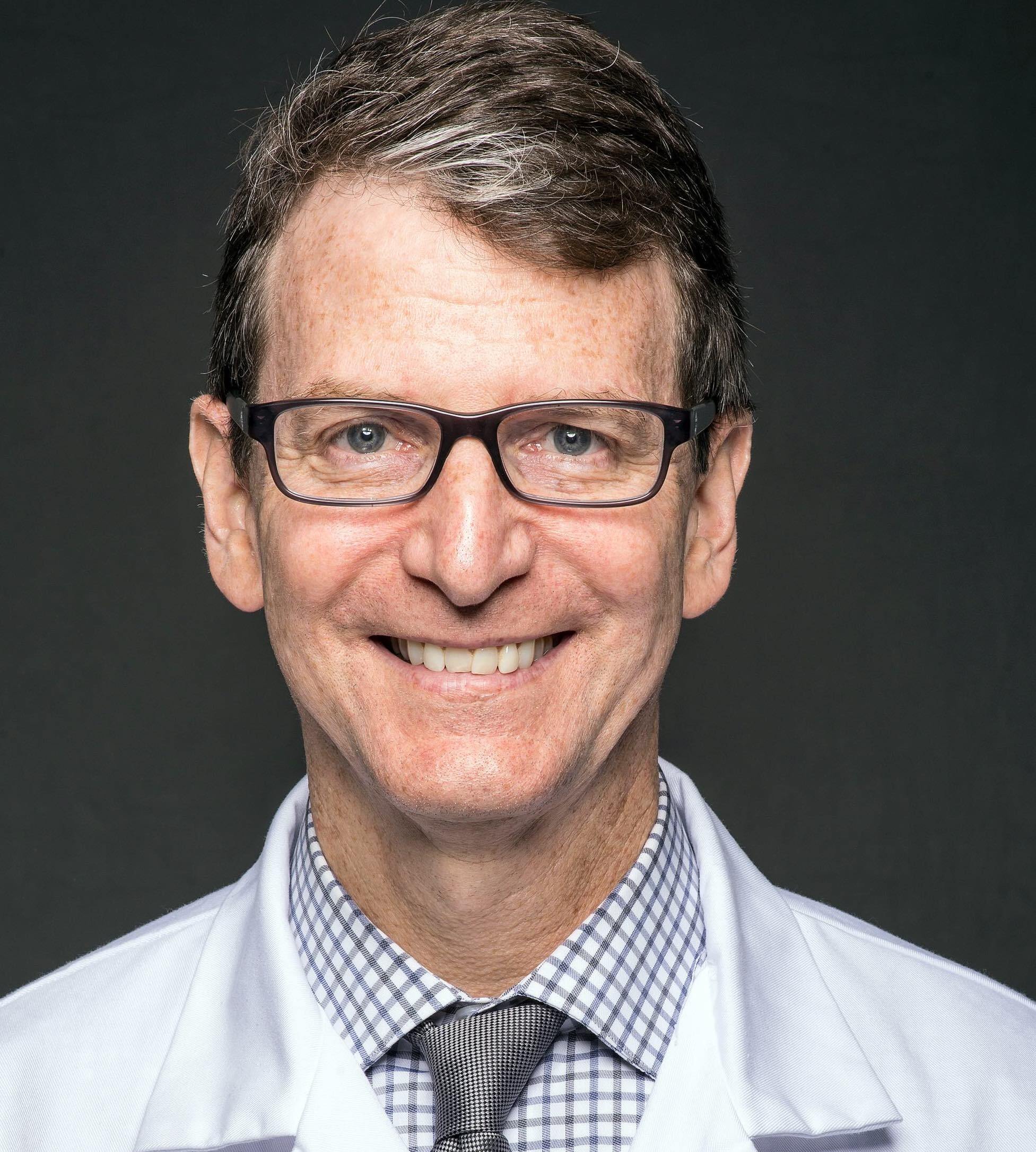
Lewis Nelson, MD, MBA, FACMT, FASAM
Chair of Emergency Medicine
Rutgers New Jersey Medical School
Lewis S. Nelson, MD is Professor and Chair of the Department of Emergency Medicine at Rutgers New Jersey Medical School, Chief of Service for the Emergency Department at University Hospital of Newark, and Senior Consultant to the New Jersey Poison Information & Education System. Dr. Nelson is board certified in emergency medicine, medical toxicology, and addiction medicine. His areas of specific interest include preventing and managing the consequences of opioid and other substance use, multimodal pain management strategies, health policy, and medication safety.
Dr. Nelson has served as President of American College of Medical Toxicology and on the Board of Directors of both the American Board of Emergency Medicine and the Accreditation Council for Continuing Medical Education. He is currently the president of Association of Academic Chairs in Emergency Medicine. He is a long time consultant for several governmental agencies including the Centers for Disease Control and Prevention, the Department of Homeland Security, and the Food and Drug Administration. He is an editor of the textbook “Goldfrank’s Toxicologic Emergencies.-
Register
- Member - Tier I - Free!
- Member - Tier II - Free!
- Member - Tier III - Free!
- Member - Tier IV - Free!
- More Information
-
Register
-
Contains 1 Component(s) Includes a Live Web Event on 08/26/2024 at 3:00 PM (EDT)
Grant Writing: Biosketch
Prepare a Winning Biosketch
A biosketch, or biographical sketch, is a critical component of research grant applications. It provides a concise summary of an investigator's qualifications, experiences, and contributions to their field. A well-prepared biosketch not only showcases the investigator's expertise but also demonstrates their ability to successfully execute the proposed research.
The ANTIDOTE Institute invites you to join our upcoming webinar on Monday, August 26th at 3pm ET for a special session on "How to Prepare a Biosketch."
Through mentorship from established investigators in the field of medical toxicology, gain insight on how to craft a concise narrative that highlights your professional background, qualifications, and the relevance of your experience to your proposed project. Learns tips and tricks on how to showcase your expertise, strengthening your grant application by establishing credibility and aligning your experience with the proposed research.
Target Audience: open to the public, but specifically tailored for Fellows and Junior Faculty applying to become part of the 2025 cohort of the ANTIDOTE Institute.
Format: Zoom Meeting
Length: 60 min
Have Questions?
Feel free to reach out to us at antidote.admin@acmt.net for any inquiries or clarifications. We look forward to assisting you on your journey with ANTIDOTE Institute!
About the ANTIDOTE Institute
The ANTIDOTE Institute is generously funded by NIH/NIDA (Grant No. 1R25DA058490) and presents a unique opportunity for fellows and junior faculty members to kickstart their journey in investigative research. Participants can expect to: begin cultivating their own research niche, build valuable connections with peers and seasoned investigators within their field, and acquire practical knowledge encompassing key aspects of establishing a successful research program. The institute spans two years and comprises:
- Focused, small-group sessions featuring moderated peer review, mentorship, and in-depth discussions on fundamental research topics.
- Personalized one-on-one mentorship with an accomplished medical toxicology investigator.
Furthermore, the program offers the potential for up to $25,000 in seed funding to bolster your research pursuits.
Interested in the Joining the ANTIDOTE Institute?
Find out about application deadlines and learn more at: www.acmt.net/antidote-institute
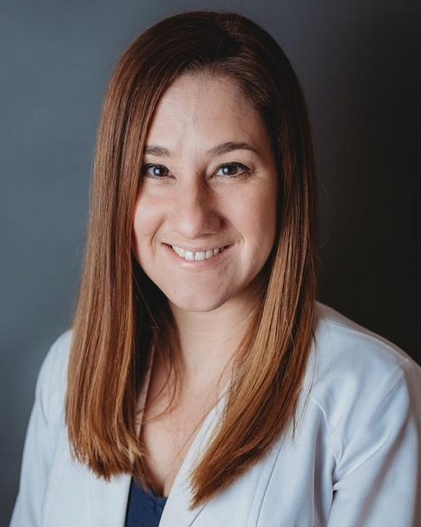
Stephanie Carreiro, MD, PhD, FACMT
Associate Professor, Director of the Tox(In)novation Lab
University of Massachusetts Chan Medical School
Dr. Stephanie Carreiro is an emergency medicine physician, medical toxicologist, and digital health researcher. She is a 2009 graduate of New York Medical College, and completed her emergency medicine residency in 2013 at Brown University. She completed a medical toxicology fellowship in 2015, and recently received a PhD in Biomedical Sciences both at the University of Massachusetts. She is currently an Associate Professor, Director of the Tox(In)novation Lab, and Research Director in the Department of Emergency Medicine at University of Massachusetts Chan Medical School. Her current research program focuses on developing digital therapeutics for substance use disorder, understanding how patients use and engage with technology, and leveraging digital technology to promote health equity. She is the principal investigator multiple industry and federally funded research grants, including several awards from the National Institute on Drug Abuse and National Institute of Biomedical Imaging and Bioengineering.
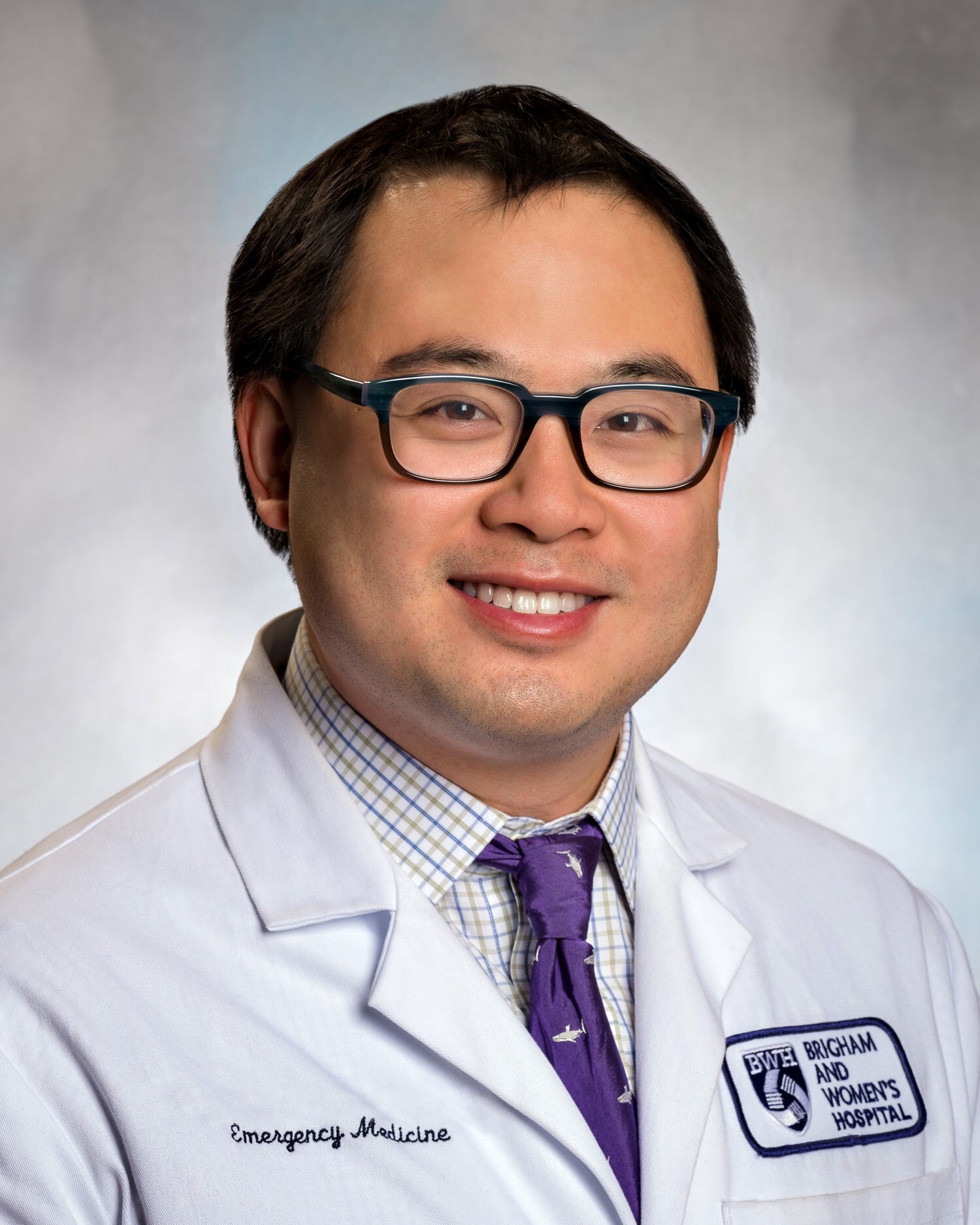
Peter Chai, MD, MMS
Associate Professor
Brigham and Women's Hospital
Dr. Peter R Chai is an associate professor of emergency medicine and medical toxicology at Brigham and Women’s Hospital/Harvard Medical School, and affiliate research scholar at the Koch Institute for Integrated Cancer Research at the Massachusetts Institute of Technology, and The Fenway Institute. He is also research faculty at the Dana Farber Cancer Institute. Dr. Chai’s research primarily involves the development and implementation of technological solutions that detect and respond to changes in disease. These translational projects ranges from design of novel robotic and sensor systems in animal models to human clinical trials to test the implementation of injectable and ingestible sensor systems and overlying behavioral science architecture to respond to disease states. Specifically, Dr. Chai is interested in applying ingestible electronic sensor systems to understand medication adherence in the context of substance use and HIV treatment/prevention. His work in developing ingestible sensors and their overlying behavioral interventions as closed loop systems to measure, reinforce and provide tools for PrEP and ART adherence has been funded by the National Institutes of Health and industry partners.
-
Register
- Non-member - Tier I - Free!
- Non-member - Tier II - Free!
- Non-member - Tier III - Free!
- Non-member - Tier IV - Free!
- Member - Tier I - Free!
- Member - Tier II - Free!
- Member - Tier III - Free!
- Member - Tier IV - Free!
- More Information
-
Contains 4 Component(s) Includes a Live Web Event on 08/15/2024 at 1:00 PM (EDT)
Cases to be announced.
NCC - 8/2024
Cases to be announced.
Series Moderator: Lewis Nelson, MD, FACMT, Rutgers New Jersey Medical School, Newark, NJ
About The Series: ACMT's National Case Conference (NCC) is a monthly webinar for ACMT members that features interesting cases seen by medical toxicologists nationwide. NCC is an educational endeavor and a quality improvement effort intended to improve patient care. It is not intended to define standard of care. Attempts have been made to ensure HIPAA compliance. All data and information provided in this activity is for informational purposes only. ACMT makes no representations as to accuracy, completeness, currentness, suitability, or validity of the content and will not be liable for any errors or omissions in this information or any losses, injuries, or damages arising from its display or use.
This webinar is for ACMT members only.

Lewis Nelson, MD, MBA, FACMT, FASAM
Chair of Emergency Medicine
Rutgers New Jersey Medical School
Lewis S. Nelson, MD is Professor and Chair of the Department of Emergency Medicine at Rutgers New Jersey Medical School, Chief of Service for the Emergency Department at University Hospital of Newark, and Senior Consultant to the New Jersey Poison Information & Education System. Dr. Nelson is board certified in emergency medicine, medical toxicology, and addiction medicine. His areas of specific interest include preventing and managing the consequences of opioid and other substance use, multimodal pain management strategies, health policy, and medication safety.
Dr. Nelson has served as President of American College of Medical Toxicology and on the Board of Directors of both the American Board of Emergency Medicine and the Accreditation Council for Continuing Medical Education. He is currently the president of Association of Academic Chairs in Emergency Medicine. He is a long time consultant for several governmental agencies including the Centers for Disease Control and Prevention, the Department of Homeland Security, and the Food and Drug Administration. He is an editor of the textbook “Goldfrank’s Toxicologic Emergencies.-
Register
- Member - Tier I - Free!
- Member - Tier II - Free!
- Member - Tier III - Free!
- Member - Tier IV - Free!
- More Information
-
Register
-
Contains 4 Component(s) Includes a Live Web Event on 08/13/2024 at 12:00 PM (EDT)
Methamphetamines
Methamphetamines
Presenter: Petros Levounis, MD, MA, Professor and Chair, Department of Psychiatry, and Associate Dean, Rutgers New Jersey Medical School, Newark, NJ
Learning Objectives
- To be announced
About The Series: ACMT's Grand Rounds offer an in-depth and interactive platform for learning and discussion about issues that impact the research and practice of medical toxicology. Experts from within and outside medical toxicology will share their knowledge and experience and highlight areas for collaboration and mutual understanding.
This webinar is for ACMT members only.
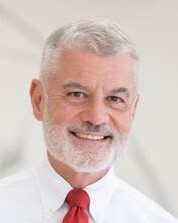
Petros Levounis, MD, MA
Professor and Chair, Department of Psychiatry, and Associate Dean
Rutgers New Jersey Medical School
Petros Levounis, MD, MA, serves as professor and chair of the Department of Psychiatry and associate dean at Rutgers New Jersey Medical School. He is also the chief of service at University Hospital in Newark, New Jersey, director of the Northern New Jersey Medications for Addiction Treatment Center of Excellence, and president of the American Psychiatric Association.
Dr. Levounis completed his undergraduate work at Stanford University where he studied chemistry and biophysics before receiving his medical education at Stanford University School of Medicine and the Medical College of Pennsylvania. During medical school, he researched the effects of social class on patient-physician relationships in Oxford, England, and received an MA degree in sociology from Stanford. He then graduated from the Columbia University Psychiatry Residency program earning the National Institute of Mental Health Outstanding Resident Award and went on to complete his fellowship in addiction psychiatry at New York University.
Dr. Levounis has published fourteen books including the self-help paperback “Sober Siblings: How to Help Your Alcoholic Brother or Sister—and Not Lose Yourself” and the textbook of “Substance Dependence and Co Occurring Psychiatric Disorders.” His books have been translated into French, German, Hungarian, Japanese, Korean, Portuguese, and Spanish.
-
Register
- Member - Tier I - Free!
- Member - Tier II - Free!
- Member - Tier III - Free!
- Member - Tier IV - Free!
- More Information
-
Contains 81 Component(s), Includes Credits Includes Multiple Live Events. The next is on 08/09/2024 at 12:00 PM (EDT)
On-Demand Prep Course for MedTox Certification Exam
2024 ACMT Board Review Course
The 2024 ACMT Board Review Course is back with an innovative twist for your learning experience! This online course is designed to prepare all examinees for the biennial certification examination in Medical Toxicology administered by the American Board of Emergency Medicine (ABEM). Led by prominent experts in the field of medical toxicology, you will receive a broad overview of the scope of the specialty and a detailed perspective into current clinical and public health toxicological issues.
Register today! Access to course content begins: June 1, 2024
Learner Objectives:
1. Identify and review core topic areas in the specialty of Medical Toxicology.
2. Prepare for common test questions and terms that may be found on a Medical Toxicology certification exam.
3. Discuss initial management and standard treatment approaches of patients with toxicologic issues.
The Flipped Classroom Advantage
Get prepared for the ABEM certification exam with our new Flipped Classroom format - the ultimate fusion of convenience, flexibility, and interactivity. In a departure from conventional learning approaches, our Flipped Classroom (a blended learning format) will give you access to a comprehensive array of 30+ meticulously curated on-demand lectures encompassing the entire spectrum of medical toxicology. This enriched content will be at your disposal June 1, 2024 - May 31, 2025, empowering you to proceed with your studies at a pace that aligns with your commitments.
Interactive Cram Sessions
In addition to the autonomous learning, prepare to be part of 7 live, interactive cram sessions throughout the summer and early fall. Focused on 4-5 core topics during each session, these power-packed sessions are your golden ticket to in-depth insights, key takeaways, and invaluable Q&A with our experts.
Unparalleled Lectures
Our top-notch speakers are ready to guide you through each lecture, ensuring you grasp every critical concept. These lectures are pre-recorded so you can access them anytime, anywhere and as many times as you want until you are confident in each subject area. Immerse yourself in a learning journey with lectures that drill down into each aspect of the Medical Toxicology Core Content including:
Alcohols & Glycols Drugs of Abuse & Withdrawal Pediatric Toxicity Analytics & Forensics Endocrine Pesticides Anesthetics, NMBs & Muscle Relaxants Epidemiology & Population Health Pharmaco & Toxicokinetics Antimicrobials Gastroenterology Poisonous Plants Antipsychotics Hematology Psychotropics Aquatic Toxicity Herbals, Vitamins & Supplements Radiation Carcinogenesis Hydrocarbons Reproductive & Developmental Tox Cardiovascular Toxins Inhalational Toxins & Asphyxiants Statistical Measures Chemotherapeutics Metals & Metalloids Terrestrial Toxicity Classic Toxicology Miscellaneous Toxins The Toxic House Clinical Drug Testing & Diagnostics Mushrooms & Fungal Toxins Warfare/Terrorism Dermatology & Pathology Neurotoxins & Anticonvulsants Study Resources
In addition to an on-demand library of medical toxicology core lectures, avail yourself of this courses additional study resources. Click here for more info!
Questions?
Please write to ACMT at events@acmt.net
Registration Rates
Registration Categories Fees
ACMT Members$1500
Non-Members$1750 Registration includes:
- Access to the on-demand content: June 1, 2024 - May 31, 2025
- Access to 7 interactive cram sessions - live Q&A with the speakers
- Access to PDFs of the lecture slides & handouts
- Access to Quiz Bank
- Access to online Flashcards
- 26.00 Continuing Medical Education credits (Physician Only)
ACMT Membership
ACMT Members receive a discounted rate. Interested in becoming an ACMT Member? Contact our Membership Manager at membership@acmt.net. Learn more at: www.acmt.net/membership
Continuing Education
Continuing Medical Education (CME) for this activity is included in the registration fee (at no additional cost). AKH Inc., Advancing Knowledge in Healthcare designates this enduring material for 26.0 AMA PRA Category 1 Credit(s)™. Physicians may claim only the credit commensurate with the extent of their participation in the activity. No partial credit will be awarded.
Print Materials
Prefer to study with hardcopies? Print slide books and print flashcards are available for purchase. Click on the buttons below for more info:
Print Slide Book Print Flashcards
Cancellation Policy
Cancellations made on or before May 16, 2024 will receive a full refund less an 8% processing fee. Cancellations made after this date will not receive a refund. Limited exceptions may be considered for emergency situations pending review.
All cancellation requests must be made in writing and emailed to: events@acmt.net. No telephone cancellations will be accepted. A refund that results from a cancellation or change to your registration will be returned to the original payer and in the original method of payment.
Pending review, limited exceptions will be made based on need and circumstance and must be submitted in writing to events@acmt.net. Because each exception must undergo a review and approval process, we ask in advance for your patience.
Click here to read ACMT's full cancellation policy.
Questions?
Write to: events@acmt.net
Study Resources
When you register for this course, we'll arm you with an arsenal of study resources. Dive into the Quiz Bank to put your knowledge to the test, flip through flashcards for rapid-fire revision, and explore visual stimuli to enhance your understanding. The ACMT Board Review Course includes:
Study Materials: slides, handouts, and supplementary materials
Flashcards: 350+ flashcards to help you study keywords and concepts
Quiz Bank: 925 example test questions on a variety of toxicological topics to help you prepare for certification. Try out the new Mock Exam!Disclaimer: according to ABEM policy, the planning committee and faculty for this course are not allowed to have intimate knowledge of the exam or write exam questions. The content of this course is based on the expertise of ACMT members, who are specialists in Medical Toxicology. We do not have direct knowledge of the exam content. ABEM test question writers are prohibited from participating in any board review or preparatory course. The study materials, including the Quiz Bank questions, are based on years of collective experience from the Board Review Course committee, but we do not guarantee that these questions fully represent the exam content.
Print Material Add-Ons
Prefer studying with hardcopies? For an additional fee, we have print versions of the Study Materials and Flashcards that we can ship directly to your home or office.
Continuing Education

Continuing Education credit for this activity has been approved and is provided by AKH Inc., Advancing Knowledge in Healthcare.
Release date: June 1, 2024
Expiration date: May 31, 2025
Activity Overview
The 2024 ACMT Board Review Course is back with an innovative twist for your learning experience! This online course is designed to prepare all examinees for the biennial certification examination in Medical Toxicology administered by the American Board of Emergency Medicine (ABEM). Led by prominent experts in the field of medical toxicology, you will receive a broad overview of the scope of the specialty and a detailed perspective into current clinical and public health toxicological issues.Target Audience
This activity is designed for an audience of physicians.Learning Objectives
Upon completion of the educational activity, participants should be able to:- Identify and review core topic areas in the specialty of Medical Toxicology.
- Prepare for common test questions and terms that may be found on a Medical Toxicology certification exam.
- Discuss initial management and standard treatment approaches of patients with toxicologic issues.
Criteria for Success
Statements of credit will be awarded based on the participant's attendance. A statement of credit will be available upon completion of all on-demand lectures, the 100 Q Practice Test, and CE Survey.CE credit provided by AKH Inc., Advancing Knowledge in Healthcare.
In support of improving patient care, this activity has been planned and implemented by AKH Inc., Advancing Knowledge in Healthcare and American College of Medical Toxicology (ACMT). AKH Inc., Advancing Knowledge in Healthcare is jointly accredited by the Accreditation Council for Continuing Medical Education (ACCME), the Accreditation Council for Pharmacy Education (ACPE), and the American Nurses Credentialing Center (ANCC), to provide continuing education for the healthcare team.
Physicians
AKH Inc., Advancing Knowledge in Healthcare designates this enduring material for a maximum of 26.0 AMA PRA Category 1 Credit(s)™. Physicians should claim only the credit commensurate with the extent of their participation in the activity.Commercial Support
There is no commercial support for this activity.Disclosures
It is the policy of AKH Inc. to ensure independence, balance, objectivity, scientific rigor, and integrity in all of its continuing education activities. The author must disclose to the participants any significant relationships with ineligible companies whose products or devices may be mentioned in the activity or with the commercial supporter of this continuing education activity. Identified conflicts of interest are mitigated by AKH prior to accreditation of the activity. AKH planners and reviewers have no relevant financial relationships to disclose.DISCLOSURES
Name
Relationship
Commercial Interest
Ann Arens, MD (faculty)
N/A
Nothing to disclose
Jeffrey Brent, MD, PhD, FACMT (faculty)
N/A
Nothing to disclose
Michele Burns, MD, FACMT (faculty)
N/A
Nothing to disclose
Shaun D. Carstairs, MD, FACMT (faculty)
N/A
Nothing to disclose
Leslie R. Dye, MD, FACMT, FASAM, FACCT (faculty)
N/A
Nothing to disclose
Christina Hantsch, MD, FACEP, FAACT, FACMT (faculty)
N/A
Nothing to disclose
Ashley Haynes, MD, FACEP (faculty)
N/A
Nothing to disclose
Michael G. Holland, MD, FEAPCCT, FAACT, FACOEM, FACMT, FACEP (faculty)
N/A
Nothing to disclose
Ziad Kazzi, MD, FAAEM, FACEP, FACMT, FAACT (faculty)
N/A
Nothing to disclose
William "Russ" Kerns, II, MD, FACMT, FACEP (faculty)
N/A
Nothing to disclose
Joshua D. King, MD, FACMT (faculty)
N/A
Nothing to disclose
Kurt C. Kleinschmidt, MD, FACMT, FASAM (faculty)
N/A
Nothing to disclose
Vincent R. Lee, MD (Moderator)
N/A
Nothing to disclose
Michael Levine, MD, FACMT (Moderator)
N/A
Nothing to disclose
Nima Maljesi, DO (faculty)
N/A
Nothing to disclose
Christopher W. Meaden, MD, MS, FAAEM (Moderator)
N/A
Nothing to disclose
Charles McKay, MD, FACMT (faculty)
N/A
Nothing to disclose
Joshua Nogar, MD (faculty)
N/A
Nothing to disclose
J.J. Rasimas, PhD, MD, FAACT, FACLP, FACMT, FACPsych (faculty)
N/A
Nothing to disclose
Daniel J. Sessions, MD, FACMT, FASAM, FAAEM (faculty)
N/A
Nothing to disclose
Sarah Shafer, MD (faculty)
N/A
Nothing to disclose
Jerry W. Snow, MD (faculty)
N/A
Nothing to disclose
Alaina R. Steck, MD, FACMT, FASAM (Moderator)
N/A
Nothing to disclose
Samuel J. Stelpflug, MD, FACMT (faculty)
N/A
Nothing to disclose
Joshua Trebach, MD (Moderator)
N/A
Nothing to disclose
Stephanie Weiss, MD, PhD (faculty)
N/A
Nothing to disclose
Dorothy Caputo, MA, BSN, RN - VP, Healthcare Continuing Education and Operations
N/A
Nothing to disclose
Michele Bielarski, RN (planner/reviewer)
N/A
Nothing to disclose
AKH Inc Staff and Planners
N/A
Nothing to disclose
ACMT Staff and Planners
N/A
Nothing to disclose
All of the relevant financial relationships listed for these individuals have been mitigated.
Disclosure of Unlabeled Use and Investigational Product
This educational activity may include discussion of uses of agents that are investigational and/or unapproved by the FDA. Please refer to the official prescribing information for each product for discussion of approved indications, contraindications, and warnings.Disclaimer
This course is designed solely to provide the healthcare professional with information to assist in his/her practice and professional development and is not to be considered a diagnostic tool to replace professional advice or treatment. The course serves as a general guide to the healthcare professional, and therefore, cannot be considered as giving legal, nursing, medical, or other professional advice in specific cases. AKH Inc. specifically disclaim responsibility for any adverse consequences resulting directly or indirectly from information in the course, for undetected error, or through participants misunderstanding of the content. If you would like to opt out from future communications from AKH please send an email to optout@akhcme.com with your information with "Opt Out" in the subject line.Concerns or complaints about a CE provider may be directed to the provider, or to the Commission for Continuing Education Provider Recognition at ADA.org/CERP.

Ann Arens, MD
Emergency Medicine Physician
Ochsner Medical Center
Dr. Arens is an Emergency Medicine physician who practices at Ochsner Medical Center in New Orleans, LA. Dr. Arens completed her Emergency Medicine training at the Denver Health Residency in Emergency Medicine, and her medical toxicology training at the University of California – San Francisco. She was amongst the first toxicologists to identify and describe counterfeit fentanyl products, and has continued to identify outbreaks of new drugs of abuse. She has a broad range of research interests including: the identification of new drugs of abuse including novel opioids contributing to the current opioid epidemic, the use of antidotes, and advanced supportive care of the poisoned patient.
Jeffrey Brent, MD, PhD, FACMT
Distinguished Clinical Professor of Medicine (Pulmonary and Critical Care) and Emergency Medicine
University of Colorado School of Medicine and Public Health
Jeffrey Brent, M.D., Ph.D., is a Distinguished Clinical Professor of Medicine (Pulmonary and Critical Care Medicine) and Emergency Medicine at the University of Colorado Schools of Medicine and Public Health. He did his fellowship in medical toxicology at the Rocky Mountain Poison and Drug Center, where he has been both medical director and fellowship director. He is a former President of the American Academy of Clinical Toxicology and a former Board member of the American College of Medical Toxicology. Dr. Brent is the senior editor of Critical Care Toxicology: the Diagnosis and Management of the Critically Poisoned Patient, currently in its second edition. Dr. Brent is Co-Principal Investigator of ACMT’s Toxicology Investigators Consortium.
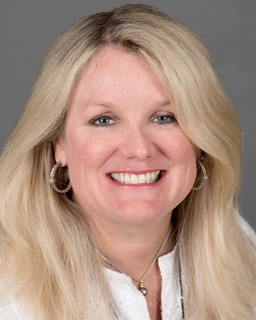
Michele Burns, MD, FACMT
Associate Physician
Boston Children's Hospital
Dr. Michele Burns is triple boarded in general pediatrics, pediatric emergency medicine, and medical toxicology. She has been the Medical Director of the Massachusetts and Rhode Island Poison Center for the last 20 years and is Chief of the Boston Children's Hospital Toxicology service. Her clinical research interests include investigating the epidemiological trends of pediatric poisoning exposures by using large hospital or national databases, and clinical communications that describe novel and innovative case presentations and/or treatment modalities in the pediatric toxicology patient. In addition, she is the Harvard Medical Toxicology Fellowship Director and a former member of both the ACMT Board and ABEM Medical Toxicology Subboard. Dr. Burns is also the Pediatric Toxicology Section Editor for UptoDate. She is committed to promoting optimal health care for acutely injured and poisoned patients, advocating for state-of-the-art treatment while contributing to national consensus guidelines and prevention efforts on a more global level.

Shaun D. Carstairs, MD, FACMT
Medical Toxicologist
98point6, Inc.
Dr. Carstairs earned his undergraduate degree from the California Institute of Technology in Pasadena, CA and received his medical degree from the Uniformed Services University of the Health Sciences (USU), the nation's military medical school. He completed a residency in emergency medicine at the Naval Medical Center in San Diego and a fellowship in medical toxicology at the University of California, San Diego. He served more than 25 years on active duty in the U.S. Navy, which included a combat deployment to Iraq and shipboard deployment as the leader of a mobile trauma team for the Navy’s Pacific Fleet. He retired from the Navy as a Captain in 2019. He currently serves as a faculty member in the Department of Emergency Medicine & Division of Medical Toxicology at the University of California, San Diego (UCSD). In addition to his role at UCSD, he holds an appointment as Professor of Military & Emergency Medicine at USU.
Leslie R. Dye, MD, FACMT, FASAM, FACCT
Interim Medical Director, OneFifteen
Clinical Professor, Wright State University/Boonshoft School of Medicine
Leslie R. Dye, MD is triple board certified in emergency medicine, medical toxicology, and addiction medicine. She has worked in the fields of medical toxicology and addiction medicine for 30 years. In addition to her clinical expertise, she has academic and business content expertise from experiences as an editor-in-chief (EIC) of a peer-reviewed medical journal (Journal of Medical Toxicology) and EIC of physician and pharmacist content production for a leading international medical digital content provider. Her deep subject matter expertise is demonstrated in her role as senior editor of the textbook, Case Studies in Medical Toxicology, author of 18 peer reviewed publications and 16 textbook chapters, 66 national and 11 international presentations, 10 various commentaries, interviews, and podcasts. Her leadership skills have been proven in both corporate and academic environments, as professor at a medical school, long-term board member and past president of the American College of Medical Toxicology, Chair of the Addiction Medicine Committee, former co-chair, and co-moderator of the AACT Acute and Intensive Care Symposium, and as the manager of as many as 30 team members at an international corporation. She received a funded grant that enabled her to start the first poison control center in mainland China and trained 6 Chinese physicians in the field of medical toxicology over 3 years in the US. Dr. Dye is experienced in and continues to provide medical care in remote polar regions with no access to advanced medical facilities.

Christina Hantsch, MD, FACEP, FAACT, FACMT
Emergency Physician and Medical Toxicologist
Dr. Hantsch is a graduate of the Honors Program in Medical Education at Northwestern University. She completed an emergency medicine residency, including a year as chief resident, at the Medical College of Wisconsin and then continued her training in a medical toxicology fellowship at Vanderbilt University. After her fellowship, she spent nearly 22 years at Loyola University Chicago Stritch School of Medicine and Loyola University Medical Center. There, she established an inpatient toxicology clinical service and clinical rotations for graduate medical trainees and students in multiple fields. With an interest in medication management and safety, she joined the hospital Pharmacy and Therapeutics Committee, serving as member for 6 years before being appointed chair and leading the committee for another 6 years. Dr. Hantsch earned the academic rank of Professor of Emergency Medicine, was Director of the Division of Toxicology, and Director of Academic Affairs in the Department of Emergency Medicine. As a clinical faculty member, she was appointed to the Stritch Committee on Academic Rank and Tenure, serving for 7 years including 2 as a subcommittee chair leading revision of the clinician educator track guidelines. In 2018, she was the founding Program Director of the Loyola emergency medicine residency. Dr. Hantsch served for more than 8 years as Medical Director of the Illinois Poison Center. In addition, she is a regular organizer and contributor to many local, regional, and national/international continuing education programs. After leaving academics, she worked for the U.S. FDA in pharmacovigilance for a year. As of 2022, she is board certified in addiction medicine in addition to emergency medicine and medical toxicology. Dr. Hantsch was elected to the ACMT Board of Directors in 2021, is a member of the Education Committee, and chair of the Practice Committee.

Ashley Haynes, MD, FACEP
Medical Toxicologist, Addiction Medicine Specialist
Veterans Health Administration
Dr. Haynes completed training in a combined emergency medicine-internal medicine program in 2014, and a toxicology fellowship at UTSW in 2016. She has been treating substance use disorders as part of her practice since that time and is board certified in addition medicine. She currently works for the VA at the Robert J Dole Veterans Medical Center in Wichita, KS, treating patients in a residential treatment center, as well as clinic, and performing bedside consults.
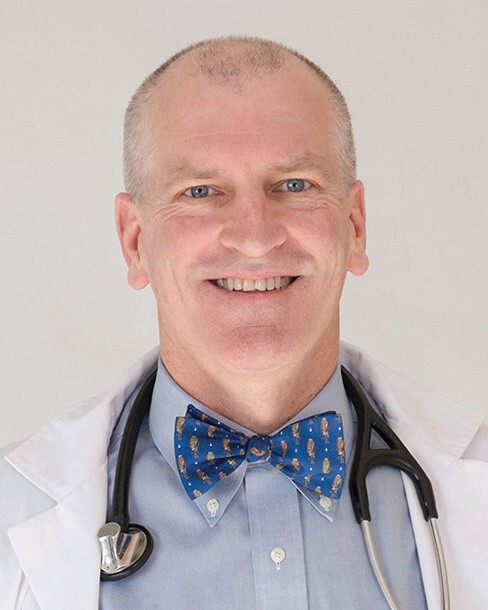
Michael G. Holland, MD, FEAPCCT, FAACT, FACOEM, FACMT, FACEP
Professor of Emergency Medicine
SUNY Upstate Medical University
Dr. Holland is Clinical Professor of Emergency Medicine at SUNY Upstate Medical University in Syracuse, NY where he is on the faculty of the Medical Toxicology Fellowship Training Program and is a Consulting Medical Toxicologist at the Upstate New York Poison Center and the Onondaga County Medical Examiner’s Office-both in Syracuse, NY. Dr. Holland is also the Director of Occupational Medicine for the Saratoga Hospital Medical Group, and is the Saratoga Hospital Employee Health Medical Director, where he oversees the health and safety of over 3100 employees and staff. He also serves as Employee Health Medical Director at Glens Falls Hospital in Glens Falls, NY, covering 2500 employees. He is also Principal Medical Toxicologist at the Center for Toxicology and Environmental Health (CTEH) in Little Rock, AR.
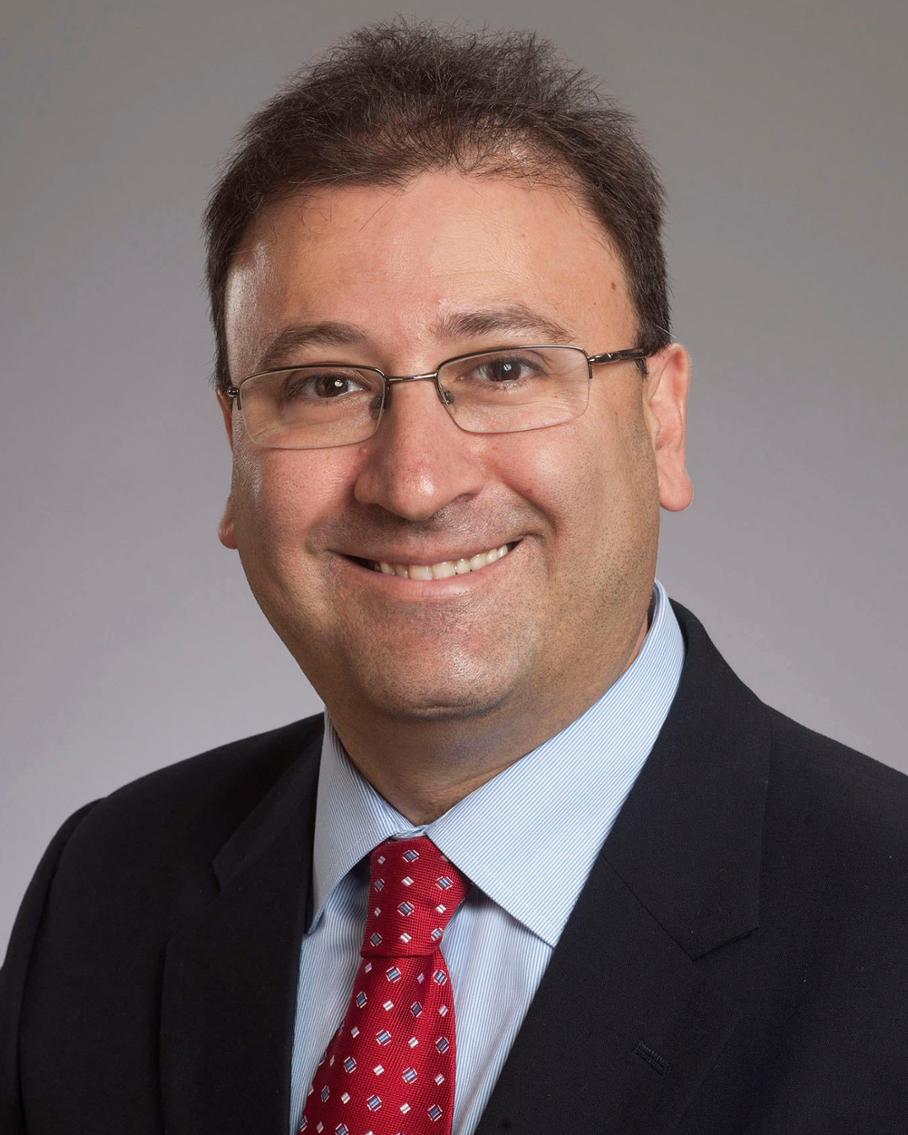
Ziad Kazzi, MD, FAAEM, FACEP, FACMT, FAACT
Professor, Department of Emergency Medicine
Emory University School of Medicine
Born in 1975 and raised in Beirut, Lebanon, Dr. Kazzi trained in Emergency Medicine at Emory University in Atlanta (2000-03) where he served as a chief resident before completing a subspecialty fellowship in Medical Toxicology at Emory University, Georgia Poison Center and the Centers for Disease Control and Prevention (CDC) in Atlanta. He is board certified in both Emergency Medicine and Medical Toxicology. Dr. Kazzi joined the Department of Emergency Medicine at the University of Alabama at Birmingham (UAB) between 2005 and 2008 where he served as a Medical Toxicologist for the Regional Poison Control Center in Birmingham and the Alabama Poison Center. Currently, he is an associate professor at the department of Emergency Medicine at Emory University in Atlanta, Georgia as well as the director of the International Toxicology Postdoctoral Fellowship Program at Emory University (http://www.em.emory.edu/services/toxicology/international_postdoc_training.html). He is also the assistant medical director of the Georgia Poison Center (www.georgiapoisoncenter.org) and a medical toxicologist at the Radiation Studies Branch of the National Center for Environmental Health at the CDC (https://www.cdc.gov/nceh/radiation/) where he participates in emergency preparedness and response activities in radiation. As an emergency physician and toxicologist, Dr. Kazzi specializes in the recognition, triage, and management of poisonings and holds a deep interest in the areas of Radiation and International Toxicology. Over the past decade, he developed strong ties to India in the areas of medical toxicology, mass gathering medical preparedness, radiation emergency medicine, blast injuries and hazmat. Through his collaboration with the CDC, AIIMS, and PGIMER Chandigarh, he has delivered and co-directed the first Advanced Hazmat Life Support trainings in Ahmedabad and Delhi. He organized a number of training conferences in Nashik, Pune, Ujjain and Delhi and has been an invited speaker at the annual INDUS EM world congress. He is an active and founding board member of the Middle East North Africa Toxicology Association (www.menatox.org) and currently serves as its President. He is also a board member and chairs the International Committee of the American College of Medical Toxicology (www.acmt.net).

William "Russ" Kerns, II, MD, FACMT, FACEP
Emeritus Professor of Emergency Medicine
Carolinas Medical Center
Dr. Kerns trained in Emergency Medicine and Medical Toxicology and served as Professor in both disciplines at Carolinas Medical Center for 33 years. Faculty roles included leadership of the Medical Toxicology Fellowship and clinical division, consultation for the Carolinas Poison Center, and research. Research interests included antidotes, envenomation, and resuscitation of cardiotoxic drugs. He also served the ACMT focusing on advancing research and education.
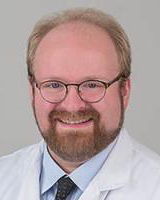
Joshua D. King, MD, FACMT
Associate Professor, Medicine and Pharmacy; Medical Director, Maryland Poison Center
University of Maryland School of Medicine
Dr. King received his medical education from Penn State College of Medicine, and completed Internal Medicine residency and chief residency at the University of Virginia. He completed Nephrology fellowship at Johns Hopkins Hospital, and after returning to the University of Virginia as a nephrologist, completed a medical toxicology fellowship there. Dr. King is a clinician-educator nephrologist and medical toxicologist with clinical interests in extracorporeal treatment of poisonings, extracorporeal removal of therapeutic drugs, ICU nephrology, and medical education. As a clinician, he sees hospitalized patients at the University of Maryland Medical Center on our nephrology consultation service as well as our medical toxicology consult service. He is involved in education primarily at the graduate medical education level, and to a lesser extent undergraduate medical education. Dr. King is also the medical director of the Maryland Poison Center, which provides poisoning information and treatment recommendations benefitting thousands of Marylanders each year. Dr. King carries out medical oversight of recommendations for poisonings, envenomations, and overdoses to the public and health care providers; provides education to a variety of students (pharmacy and medical) and physicians (residents and fellows) who rotate with the center; he is involved in a variety of other activities aimed at treatment and prevention of poisoning. Dr. King's research interests are largely focused where nephrology and toxicology meet – extracorporeal removal of toxins (via dialysis, apheresis, and other modalities).
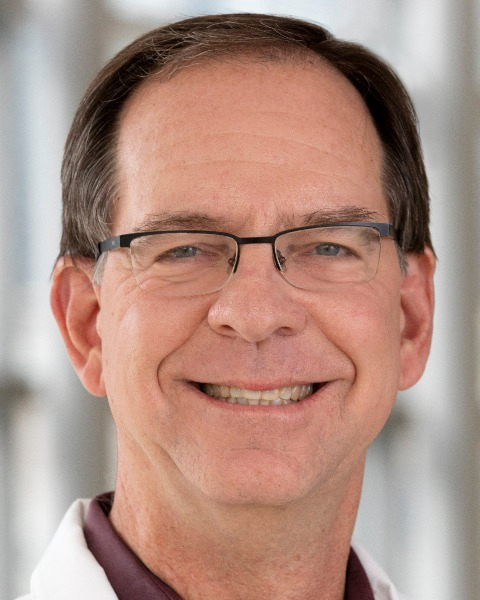
Kurt C. Kleinschmidt, MD, FACMT, FASAM
Professor of Emergency Medicine
University of Texas Southwestern Medical Center
Kurt C. Kleinschmidt, MD, FACMT, FASAM is a Professor of Emergency Medicine at the University of Texas Southwestern Medical Center in Dallas, Texas. He is a faculty member in the Division of Medical Toxicology. His areas of interest include Substance Use Disorders and snake envenomations. He graduated from the University of South Florida College of Medicine in 1986, completed his emergency medicine residency at Madigan Army Medical Center in 1990, and finished a clinical fellowship in Medical Toxicology at the University of Texas Southwestern Medical Center in 1999. He is board certified in Emergency Medicine (1991), Medical Toxicology (2002), and Addiction Medicine (2016). He became the Medical Director of the Perinatal Intervention Program in Parkland Health and Hospital system in 2016. He served as the Toxicology Program Director from 2004-2018 and as the Toxicology Division Chief from 2004-2020.
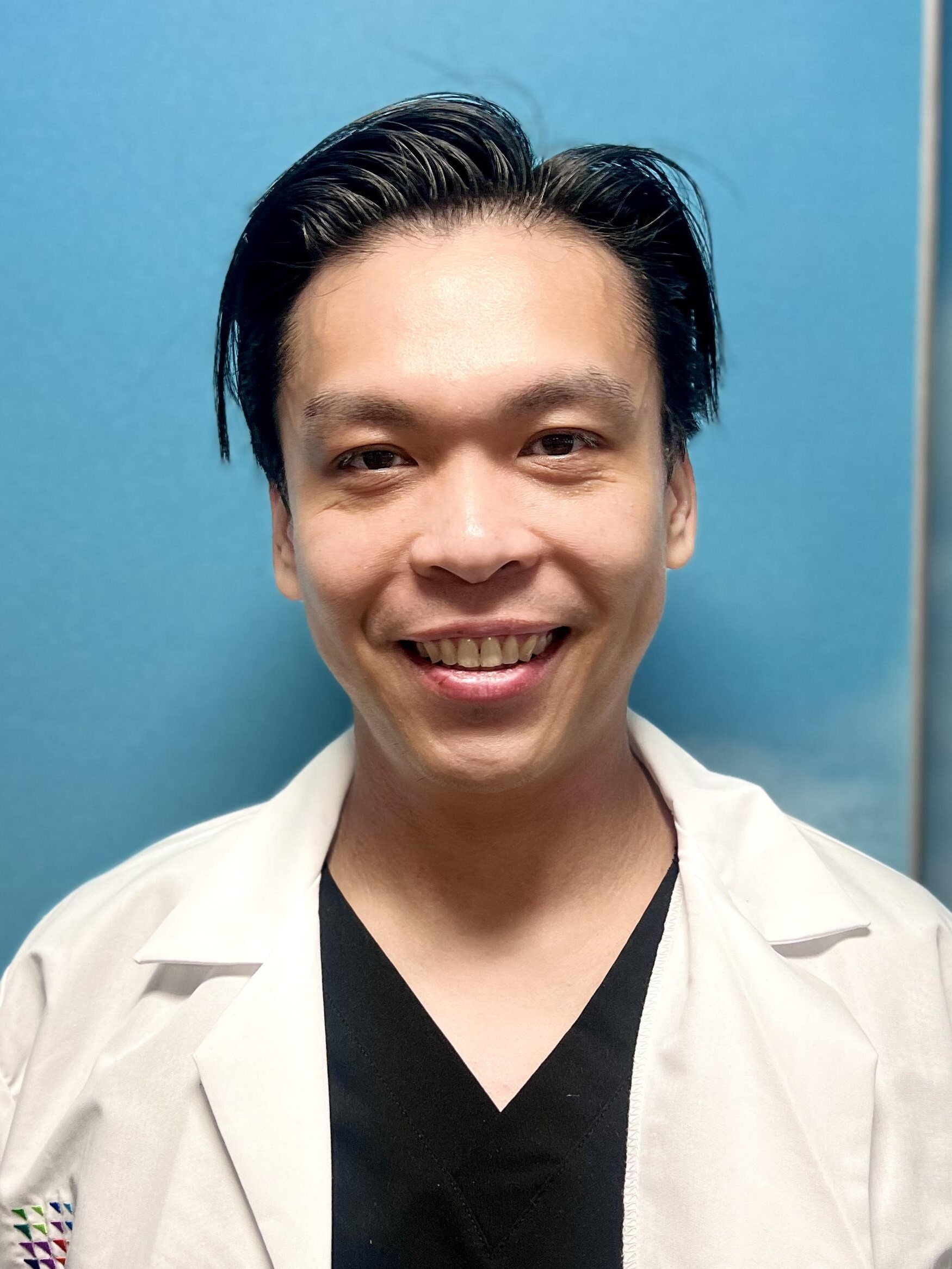
Vincent R. Lee, MD (Moderator)
Assistant Professor
Donald and Barbara Zucker School of Medicine at Hofstra/Northwell
Dr. Lee is an emergency medicine physician at Glen Cove Hospital and medical toxicology attending for Northwell Health. He received his medical degree from SUNY Downstate in Brooklyn, NY, in 2015, completed his emergency medicine residency at Morristown Medical Center in Morristown, NJ, in 2018, and his Medical Toxicology Fellowship at Northwell Health in Long Island, NY, in 2020. He is board-certified in emergency medicine and medical toxicology.

Michael Levine, MD, FACMT (Moderator)
Co-Division Chief of Medical Toxicology
University of California, Los Angeles
Michael Levine is a Los Angeles native, who completed his emergency medicine residency at the Harvard Affiliated Emergency Medicine program, based out of Brigham and Women’s Hospital and Massachusetts General Hospital. After residency, he completed his medical toxicology fellowship at Banner Good Samaritan Medical Center in Phoenix, AZ. After staying as faculty for a year in Phoenix, he moved back to Los Angeles, where he joined the faculty at USC. He is currently the division chief of medical toxicology. He is actively involved in patient care, research, and serves on numerous hospital and university committees. He is an active member of American College of Emergency Physicians, the American College of Medical Toxicology, and is a member of the Toxicology Investigator's Consortium.
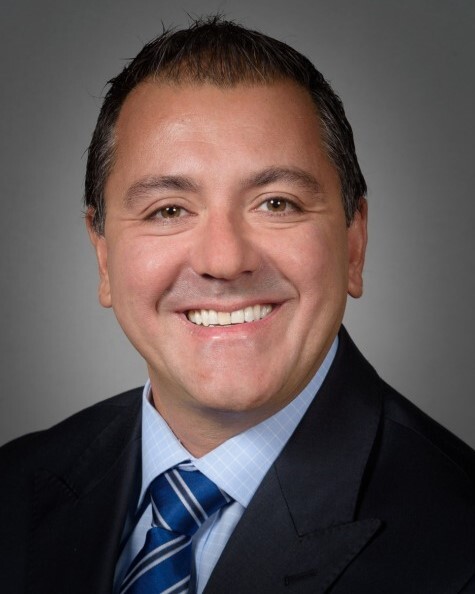
Nima Maljesi, DO
Director of Medical Toxicology
Staten Island University Hospital Emergency Department
Dr. Nima Majlesi completed Emergency Medicine Residency at Morristown Medical center in Morristown, NJ, in 2007, and went on to complete fellowship in medical toxicology at Northshore University hospital (now Northshore University hospital at Northwell) in Manhasset, NY, in 2009. Dr. Majlesi is board certified in Emergency medicine, medical toxicology and addiction medicine. In addition to initiating a 24/7 medical toxicology consultation service, he is the chair of the hospital pharmacy and therapeutics committee and helped initiate a program to initiate buprenorphine in the emergency department. He has been involved in creating guidelines regarding opioid prescribing for New York City, National emergency medicine organizations as well as his own institution. Education has been the main focus of his career.
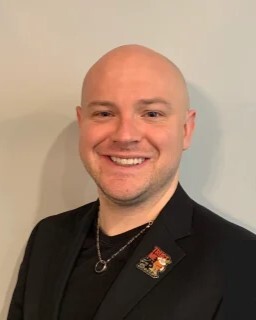
Christopher W. Meaden, MD, MS, FAAEM (Moderator)
Assistant Professor of Emergency Medicine
Rutgers New Jersey Medical School
Dr. Christopher Meaden is Assistant Professor of Emergency Medicine at Rutgers New Jersey Medical School and a Medical Toxicology Consultant for the New Jersey Poison Information and Education System. He completed his residency training in emergency medicine at St. Joseph’s University Medical Center in Paterson, NJ and completed his medical toxicology fellowship as the inaugural fellow at Rutgers New Jersey Medical School. He is board certified in emergency medicine and medical toxicology. Dr. Meaden has a Master of Science degree in molecular and cellular biology. His interests include education in medical toxicology, acute care of the poisoned patient and chemical agents of war. He is involved with the American College of Medical Toxicology Education Committee and previously served as the associate chair for the 2022 and 2023 ACMT Annual Scientific Meeting.

Charles McKay, MD, FACMT
Associate Medical Director
CT Poison Control Center, University of Connecticut School of Medicine
Dr. McKay was trained in Anatomic and Surgical Pathology, Internal Medicine, Emergency Medicine, Medical Toxicology and was a Medical Director of Occupational Health and Medical Review Officer for a hospital system during more than 30 years of clinical practice, during which he provided toxicology consultation at 3 hospitals, directed a medical toxicology fellowship training program, and provided medical oversight of a regional poison control center. He provides medical legal consultation across the country on toxicology-related issues, and has testified in nearly 100 cases, many related to questions of alcohol- and -drug-induced impairment.
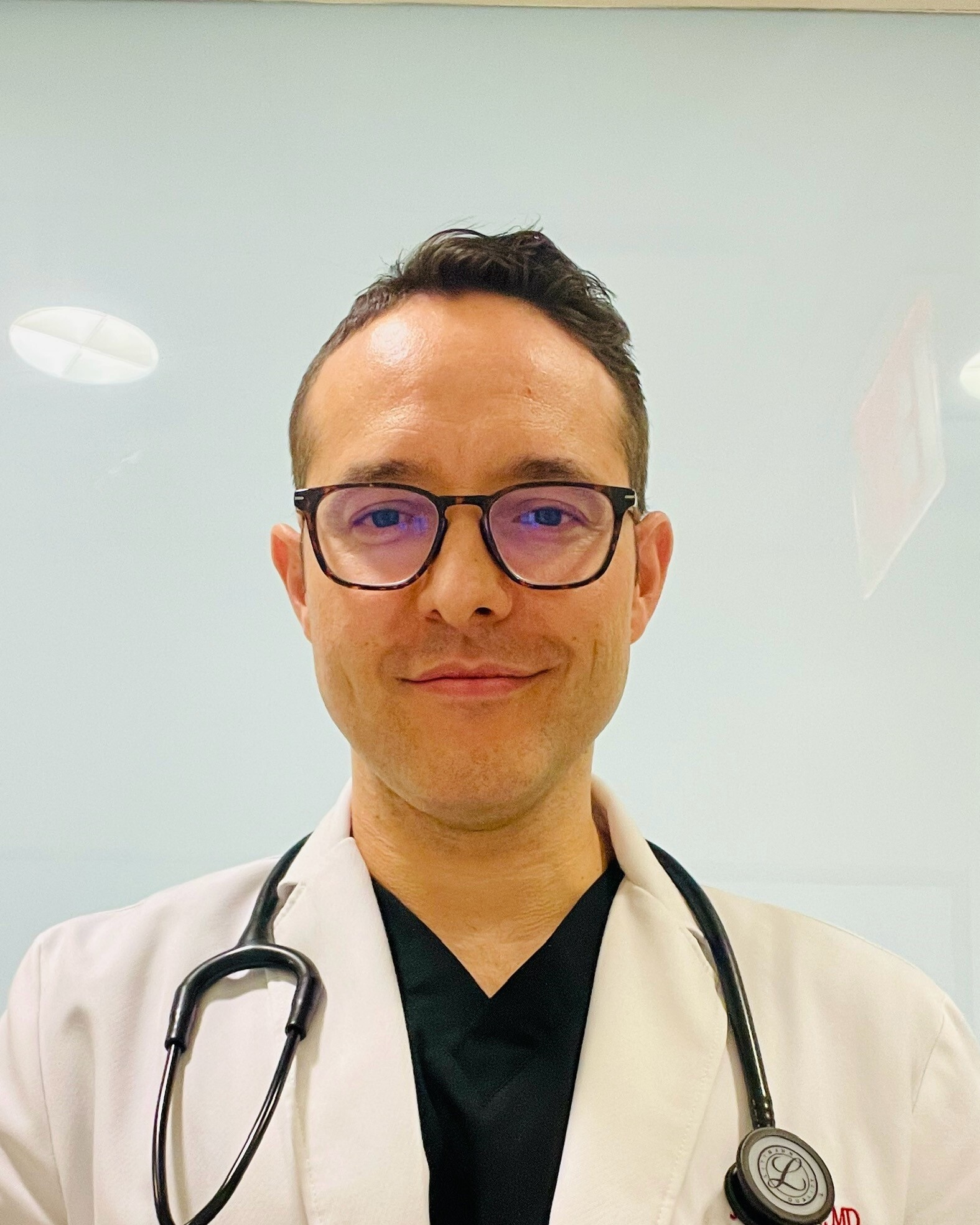
Joshua Nogar, MD
Director of Medical Toxicology, Medical Toxicology Fellowship Director
Hofstra/Northwell Health
Dr. Josh Nogar grew up in the High Desert of New Mexico, but has been a New Yorker for 16 years. Dr. Nogar received his medical degree from the New York University School of Medicine in 2005, completed a residency in Emergency Medicine at the University of New Mexico in 2009, and a fellowship in Medical Toxicology at the University of California San Diego in 2011. He has been faculty in the department of Emergency Medicine & Medical Toxicology at North Shore University Hospital since 2011, in Long Island, NY. He has been the Medical Toxicology Fellowship Director at Northwell Health since 2016, and his areas of specific interest include fellow education, metabolic uncouplers, overdose trends, and addiction medicine. He is dedicated to helping trainees achieve their individual career goals, as well as adapting his training program to the changing scope of practice for Medical Toxicologists, as well as the needs to individual learners. Outside of work, Dr. Nogar enjoys spending time with his wife & children. He is an avid fly-fisherman.

J.J. Rasimas, PhD, MD, FAACT, FACLP, FACMT, FACPsych
Professor of Psychiatry & Emergency Medicine
Dalhousie University, University of Minnesota, & Penn State College of Medicine
Dr. Rasimas has a Jesuit university background in biochemistry, mathematics, and philosophy. He completed the Medical Scientist Training Program, earning a PhD in chemical biology (2002) and MD (2003) from Penn State University. After Psychiatry residency at the Mayo Clinic, he was a clinical fellow at the National Institutes of Health in Washington, DC where he did translational research and trained in medical ethics. He also undertook formal education in psychoanalytic psychotherapy, completed the critical care based medical toxicology fellowship at Penn State, and became certified in Psychosomatic Medicine, Addiction Medicine, and Medical Toxicology. Further work at NIH has included the Undiagnosed Diseases Program and roles in research ethics and oversight. Dr. Rasimas was the Director of Consultation-Liaison Psychiatry and Co-Chair of the Biomedical Ethics Committee at Hennepin County Medical Center in Minneapolis, Minnesota before moving to Prince Edward Island, Canada in 2022. Based at Queen Elizabeth Hospital in Charlottetown, he served as the lead Psychiatrist for C-L and Addictions for the province. He has recently transitioned to Nova Scotia Health in an effort to build treatment programs for patients with complex psychosomatic illnesses and substance use. For PEI, Dr. Rasimas remains the Medical Director of the Atlantic Mentorship Network for Chronic Pain, Addictions, and Mental Illness. Dr. Rasimas is a university professor with continued involvement in medical education in both the US and Canada pursuing an academic medical career at the interface of psychosomatic medicine, medical toxicology, and psychodynamic psychotherapy with a primary clinical interest in the phenomenology of suicide.

Daniel J. Sessions, MD, FACMT, FASAM, FAAEM
Chief, Division of Medical Toxicology
Ochsner Medical Center
Dr. Sessions practices medical toxicology, emergency medicine and addiction medicine at Ochsner Health in the New Orleans area. Dr. Sessions has expertise in poisoning and drug overdose, envenomation, toxic occupational exposure, medication assisted therapy for opioid and alcohol use disorder and forensic toxicology. Dr. Sessions earned his degree in medicine from Louisiana State University School of Medicine in New Orleans in 2008. He is board-certified in emergency medicine and medical toxicology by the American Board of Emergency Medicine in 2012 and 2014. He completed a medical toxicology fellowship at the Rocky Mountain Poison & Drug Center at Denver health in Denver in 2013. He is board-certified in addiction medicine by the American Board of Preventative Medicine in 2022. Dr. Sessions actively participates in the American Academy of Emergency Medicine, the American College of Medical Toxicology, the American Academy of Clinical Toxicology and the American Society of Addiction Medicine.
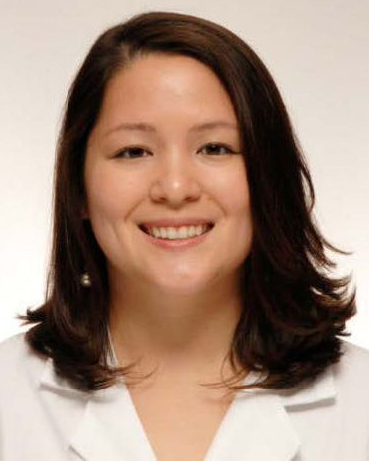
Sarah Shafer, MD
Assistant Professor of Emergency Medicine and Medical Toxicology
University of Iowa Department of Emergency Medicine
Sarah Shafer, MD, is an assistant professor of emergency medicine and medical toxicology at University of Iowa Department of Emergency Medicine in Iowa City. You may know her through her twitter handle @toxiferoustales.
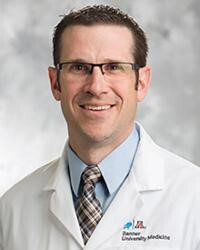
Jerry W. Snow, MD
Associate Professor of Emergency & Internal Medicine
Banner – University Medical Center Phoenix
Dr. Jerry Snow serves as the Program Director for the Medical Toxicology Fellowship and holds the position of Associate Professor in both Emergency Medicine and Internal Medicine at Banner – University Medical Center Phoenix. Actively engaged, he contributes to key committees such as the Banner Critical Care Committee, Banner Behavioral Health Clinical Consensus Group, Department of Medical Toxicology Clinical Competency Committee, and the Addiction Medicine Section. Nationally, Dr. Snow is involved with the ACMT Education Committee, actively participating in the Board Review Course.
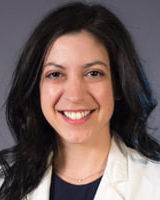
Alaina R. Steck, MD, FACMT, FASAM (Moderator)
Associate Professor of Emergency Medicine
Emory University
Dr. Alaina Steck is an Associate Professor of Emergency Medicine in the Emory School of Medicine and the Medical Director of Grady Memorial Hospital's oupatient OUD treatment clinic. She is board-certified in Emergency Medicine, Medical Toxicology, and Addiction Medicine, and actively practices all three specialties at Grady Memorial Hospital in Atlanta. She is on the advisory boards of the Christopher White Crusade and YourPath Health. Her research and clinical efforts focus on transitions of care from the Emergency Department, integration of Addiction Medicine care with other specialty services (e.g., Orthopedics, Trauma Surgery, and Infectious Diseases), and the impact of OUD treatment on health care utilization.
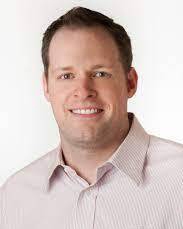
Samuel J. Stelpflug, MD, FACMT
Director, Twin Cities Medical Toxicology Fellowship
University of Minnesota Medical School
Dr. Stellpflug is a Medical Toxicologist and Emergency Physician within the HealthPartners hospital system in MN and WI. He provides consultation for the Minnesota Poison Control System, and his academic appointment is through the University of Minnesota Medical School. Following medical school at the University of Wisconsin he completed a residency in emergency medicine at Regions Hospital and then the medical toxicology fellowship in the Twin Cities, a joint effort between the Regions Hospital / HealthPartners and the Minnesota Poison Control System.
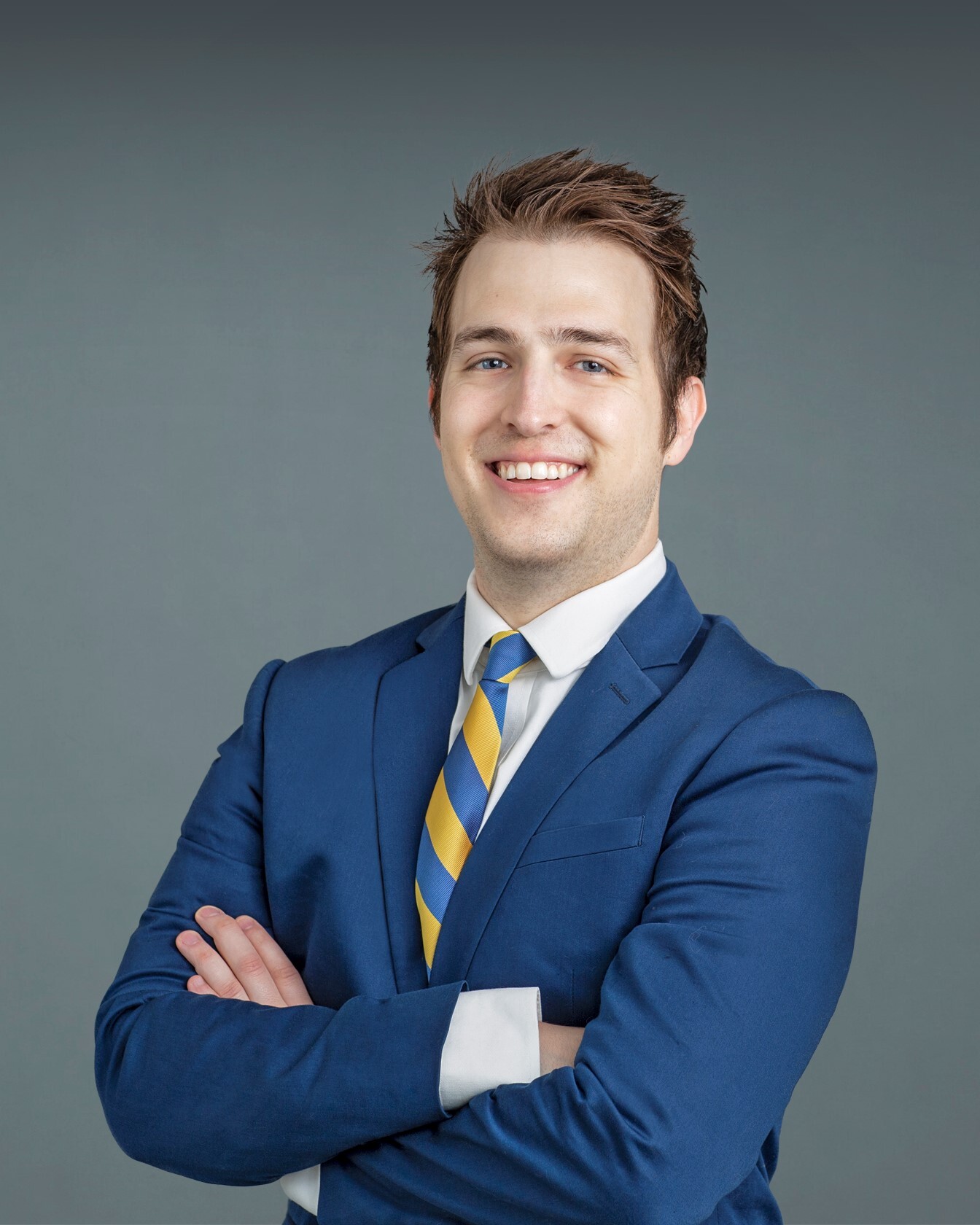
Joshua Trebach, MD (Moderator)
Emergency Medicine Physician & Medical Toxicologist
University of Iowa Hospitals and Clinics
Josh Trebach is an emergency medicine physician and medical toxicologist at the University of Iowa Hospital and Clinics. He completed his undergraduate training at Virginia Tech, medical school training and residency at Johns Hopkins, and toxicology fellowship at New York University/New York City Poison Control Center. Josh is currently the Director of Resident Medical Toxicology Education at the University of Iowa and is passionate about all things toxicology, medical education, social media, LGBTQ health, and animal rescue.

Stephanie Weiss, MD, PhD
Staff Clinician, Translational Addiction Medicine Branch
National Institute on Drug Abuse
Dr. Stephanie Weiss is the Staff Research Physician serving the Translational Addiction Medicine Branch of the National Institute on Drug Abuse’s Intramural Research Program. After earning a Ph.D. in pharmaceutical chemistry, Dr. Weiss received her medical degree in 2011. She is board certified in emergency medicine, addiction medicine, and medical toxicology and was selected to participate in the Boston University Research in Addiction Medicine Scholars Program prior to joining NIDA. Dr. Weiss is responsible for providing optimal, safe, and ethical care to study participants and clinical support toward the TAMB mission conducting inpatient and outpatient proof-of-concept human laboratory studies. Her research interests include novel psychoactive substances, medication misuse, and improving interpretation of urine drug testing.
Interactive Cram Sessions
Interactive Cram Session #1
Friday, June 14, 2024, 12:00-1:00 PM ET
- Pharmacokinetics & Toxicokinetics
- Neurotoxins & Anticonvulsants
- Pediatric Toxicity
- Anesthetics, NMBs & Muscle Relaxants
- Analytics & Forensics
Interactive Cram Session #2
Friday, June 28, 2024, 12:00-1:00 PM ET
- The Toxic House
- Poisonous Plants
- Warfare/Terrorism
- Chemotherapeutics
- Pesticides
Interactive Cram Session #3
Friday, July 12, 2024, 12:00-1:00 PM ET
- Hydrocarbons
- Alcohols & Glycols
- Aquatic Toxicity
- Radiation
- Cardiovascular Toxins
Interactive Cram Session #4
Friday, July 26, 2024, 12:00-1:00 PM ET
- Classic Toxicology
- Antipsychotics
- Psychotropics
- Endocrine
- Herbals, Vitamins & Supplements
Interactive Cram Session #5
Friday, August 9, 2024, 12:00-1:00 PM ET
- Inhalational Toxins & Asphyxiants
- Carcinogenesis
- Reproductive & Developmental Tox
- Epidemiology & Population Health
- Statistical Measures
Interactive Cram Session #6
Friday, August 23, 2024, 12:00-1:00 PM ET
- Metals & Metalloids
- Terrestrial Toxicity
- Hematology
- Antimicrobials
- Drugs of Abuse & Withdrawal
Interactive Cram Session #7
Friday, September 6, 2024, 12:00-1:00 PM ET
- Gastroenterology
- Mushrooms & Fungal Toxins
- Clinical Drug Testing & Diagnostics
- Dermatology & Pathology
- Miscellaneous Toxins
-
Register
- Non-member - Tier I - $1,750
- Non-member - Tier II - $1,750
- Non-member - Tier III - $1,750
- Non-member - Tier IV - $1,750
- Member - Tier I - $1,500
- Member - Tier II - $1,500
- Member - Tier III - $1,500
- Member - Tier IV - $1,500
- More Information
-
Contains 5 Component(s) Includes a Live Web Event on 08/02/2024 at 1:00 PM (EDT)
The Toxicology Investigators Consortium (ToxIC) Overdose Surveillance Program
The Toxicology Investigators Consortium (ToxIC) Overdose Surveillance Program
Case 1: Evaluating clinical factors and subsequent comprehensive laboratory results for a case presenting with opioid overdose
Case 2: Assessing the contributions of a polydrug exposure after a suspected opioid overdose
About The Series: The ACMT/ASAM Addiction Toxicology Case Conference webinar series discusses Addiction/Toxicology cases in an interactive fashion featuring experts from Addiction Medicine, Addiction Psychiatry, and Medical Toxicology.
This webinar is open to the public.
Continuing Education credits are now available for this activity! Click here for more info.
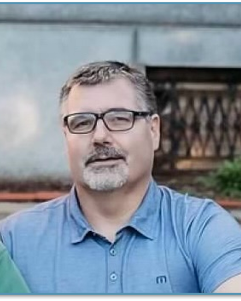
Timothy Wiegand, MD, DFASAM, FACMT, FAACT (Moderator)
Director of Addiction Medicine and Addiction Medicine Consults
University of Rochester Medical Center
Timothy J. Wiegand, MD, FACMT, FAACT, DFASAM is an Associate Professor of Emergency Medicine and Public Health Sciences at the University of Rochester Medical Center in Rochester New York. He is Board Certified in Medical Toxicology and Addiction Medicine and practices in Addiction Toxicology with a mix of clinical, research, teaching, and other professional work. Dr. Wiegand has served two terms on the Board of Directors for the American College of Medical Toxicology (ACMT) and he is currently serving on the Board of Directors for the American Society of Addiction Medicine (ASAM) completing a term on the Executive Counsel as Vice President of ASAM. He begins a two-year term as Treasurer of ASAM in April 2023. Dr. Wiegand founded and led the Toxicology service at URMC until 2022 when he became Director of Addiction Medicine and Director of Addiction Medicine Consults also at URMC in the Department of Emergency Medicine. Dr. Wiegand has served as Fellowship Director for the URMC Combined Addiction Medicine Fellowship and he is the Fellowship Director for the URMC Medical Toxicology fellowship expecting to formally begin once accredited, in July of 2023.
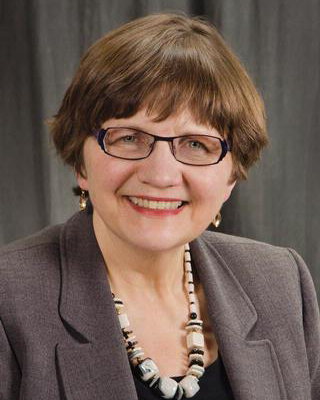
Gloria Baciewicz, MD (Moderator)
Addiction Psycharcist
Strong Recovery
Since 1986, Gloria Baciewicz has specialized in the treatment of addiction. Professor of clinical psychiatry at the University of Rochester Medical Center, she serves as an addiction psychiatrist at Strong Recovery. Dr. Baciewicz is certified in addiction medicine by the American Board of Preventive Medicine and board certified in psychiatry, with added qualifications in addiction psychiatry. Dr. Baciewicz is a co-principal investigator for the University of Rochester’s Recovery Center of Excellence.

Kim Aldy, DO, MS, MBA
ToxIC Program Director
American College of Medical Toxicology
Dr. Aldy initially joined the Toxicology Investigators Consortium with the American College of Medical Toxicology as the first ToxIC intern, where she led a vaping initiative around the country. In her new position with ToxIC, Dr. Aldy is responsible for the day to day management of the ToxIC program, staff and site coordination, helping with research projects and publications, and acquiring support for ToxIC through grants and related activities.
Dr. Aldy earned her medical degree at the University of North Texas Health Science Center in Fort Worth, Texas. During her medical school training, she concurrently applied and enrolled in an MBA program with concentration in Health Management at the University of North Texas which she attained shortly after starting residency. She completed an emergency medicine residency at Western Michigan University in Kalamazoo, Michigan. She attended her Medical Toxicology Fellowship at University of Texas at Southwestern Medical Center in Dallas, Texas.
Dr. Aldy has an academic and clinical affiliation within the departments of Emergency Medicine and Medical Toxicology at the Baylor University Medical Center in Dallas, Texas.
Jeffrey Brent, MD, PhD, FACMT
Distinguished Clinical Professor of Medicine (Pulmonary and Critical Care) and Emergency Medicine
University of Colorado School of Medicine and Public Health
Jeffrey Brent, M.D., Ph.D., is a Distinguished Clinical Professor of Medicine (Pulmonary and Critical Care Medicine) and Emergency Medicine at the University of Colorado Schools of Medicine and Public Health. He did his fellowship in medical toxicology at the Rocky Mountain Poison and Drug Center, where he has been both medical director and fellowship director. He is a former President of the American Academy of Clinical Toxicology and a former Board member of the American College of Medical Toxicology. Dr. Brent is the senior editor of Critical Care Toxicology: the Diagnosis and Management of the Critically Poisoned Patient, currently in its second edition. Dr. Brent is Co-Principal Investigator of ACMT’s Toxicology Investigators Consortium.
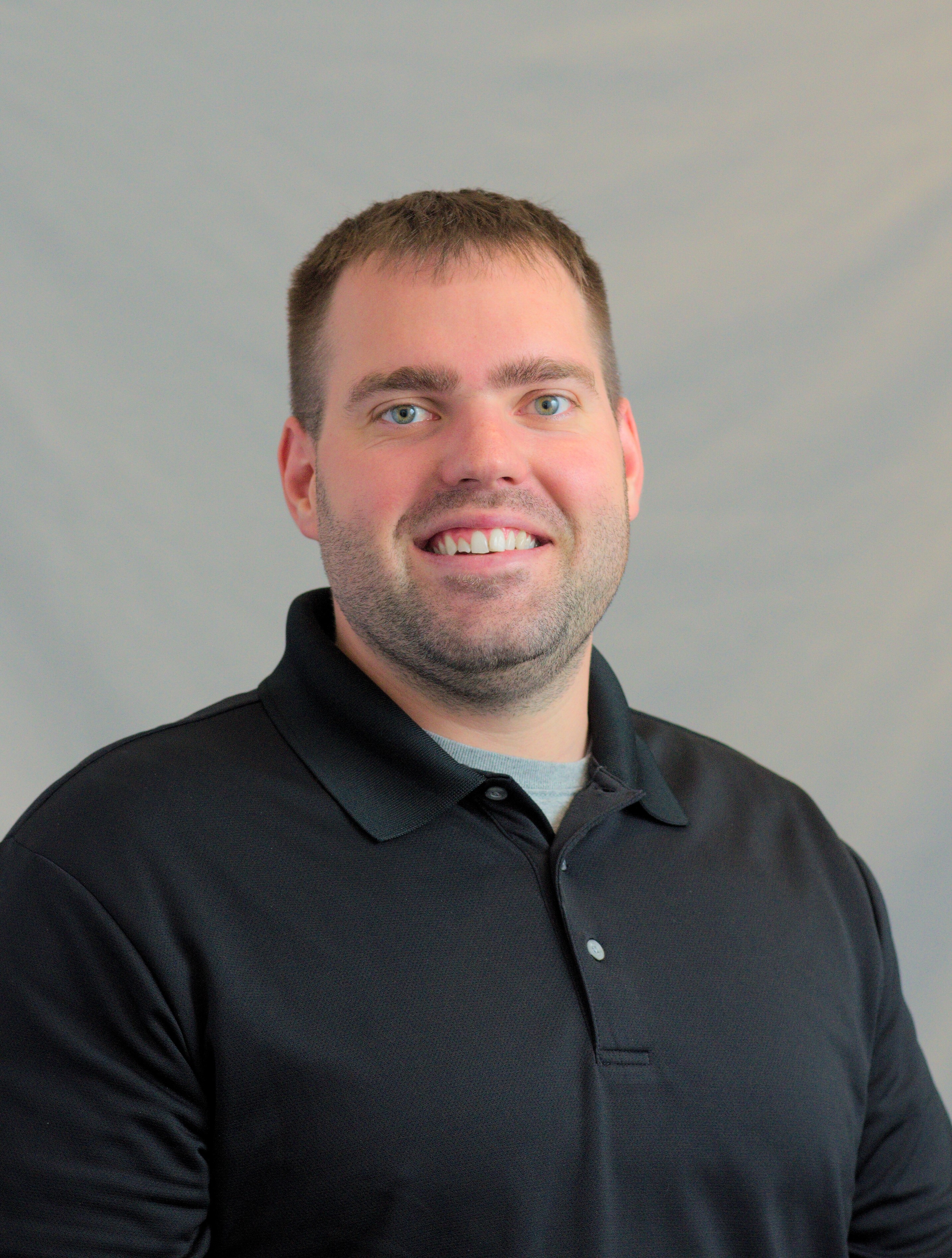
Alex Krotulski, PhD
Associate Director of Toxicology & Chemistry
The Center for Forensic Science Research and Education
Dr. Alex Krotulski serves as an Associate Director at CFSRE working in the areas of forensic toxicology and forensic chemistry and is the Program Manager for NPS Discovery. Dr. Krotulski holds faculty appointment and serves as the Assistance Program Director for the Thomas Jefferson University Master of Science in Forensic Toxicology (MSFT) program and was recently appointed as an Associate Editor for the Journal of Analytical Toxicology. Dr. Krotulski received his Doctor of Philosophy degree in Analytical Chemistry from Temple University in 2019 following receipt of his Master of Science degree in Forensic Science from Arcadia University in 2015 and Bachelor of Science in Chemistry from Loyola University New Orleans in 2013.
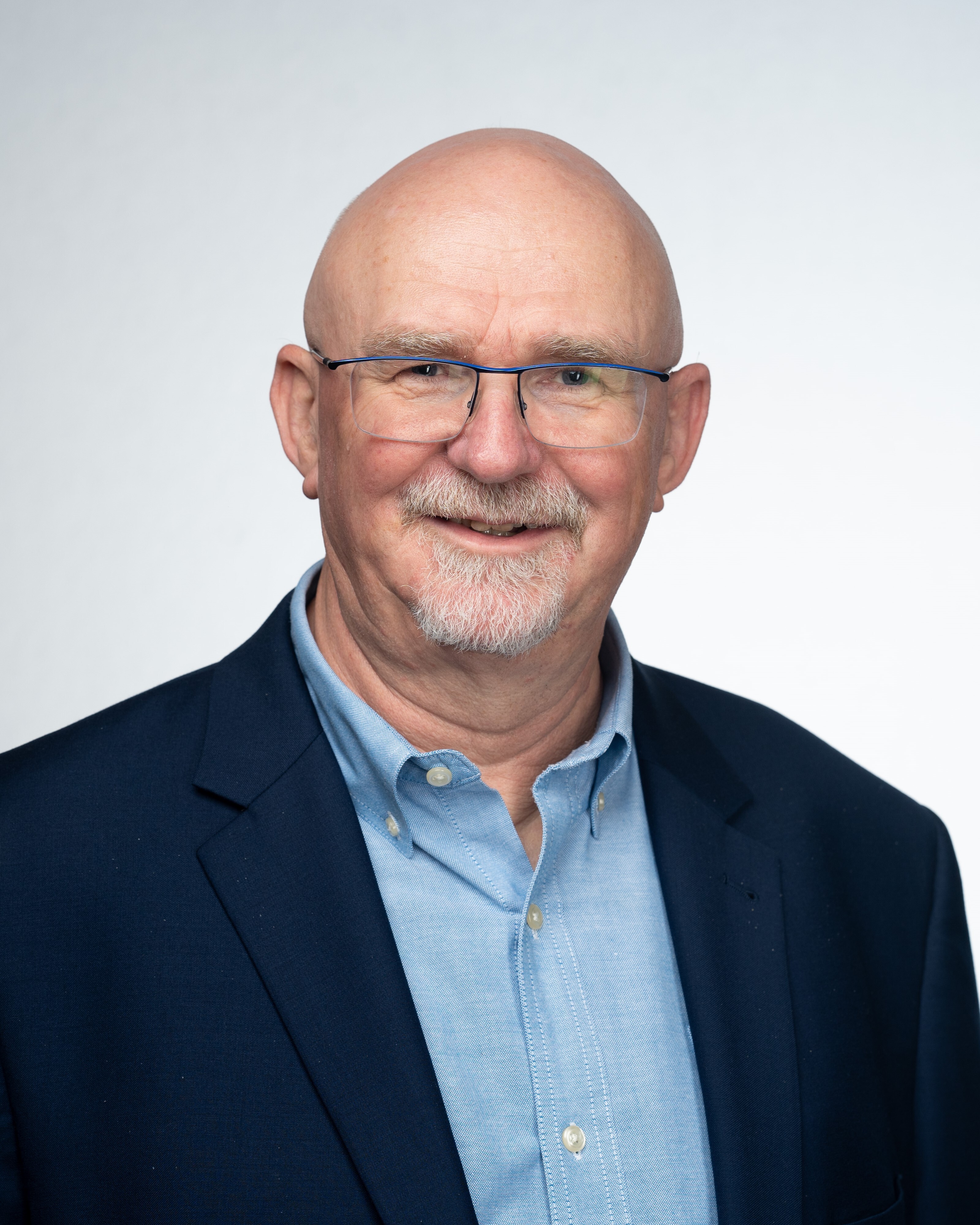
Barry Logan, PhD, F-ABFT
Executive Director, Sr. VP & Chief Scientist Forensic Sciences
Center for Forensic Science Research and Education & NMS Labs
Dr. Barry Logan is Sr. vice president of Forensic Sciences, and Chief Scientist for NMS Labs. He is also Executive Director at the non-profit Center for Forensic Science Research and Education (CFSRE) at the Fredric Rieders Family Foundation in Willow Grove, Pennsylvania.
Dr. Logan is a Fellow of the American Board of Forensic Toxicologists (ABFT), and has over 190 publications in forensic toxicology and chemistry, including work on the effects of illicit and prescription drugs on drivers, and drug caused and related death. His current research priorities are focused on new drug surveillance and trends, the polydrug crisis, and the analytical and interpretive toxicology and chemistry of novel psychoactive substances, founding www.NPSDiscovery.org in 2018.
Dr. Logan’s has academic appointments at Indiana University, Arcadia University and Thomas Jefferson University in Philadelphia. He serves on the Advisory Board for NIDA’s National Drug Early Warning System (NDEWS). In recognition of his work and contributions, Dr. Logan received TIAFT’s Alan Curry Award in 2022, and is a past President of the American Academy of Forensic Sciences (AAFS).

Paul M. Wax, MD, FACMT
Executive Director
American College of Medical Toxicology (ACMT)
Dr. Wax is the Executive Director of the American College of Medical Toxicology. He received his B.A from Dartmouth College, his M.D. from the Mount Sinai School of Medicine, his Emergency Medicine training at the UCLA Hospitals, and his Medical Toxicology training at Bellevue Medicine Center / New York University. He is Board-certified in both Medical Toxicology and Emergency Medicine, and is a Fellow of the American College of Medical Toxicology.
Continuing Education
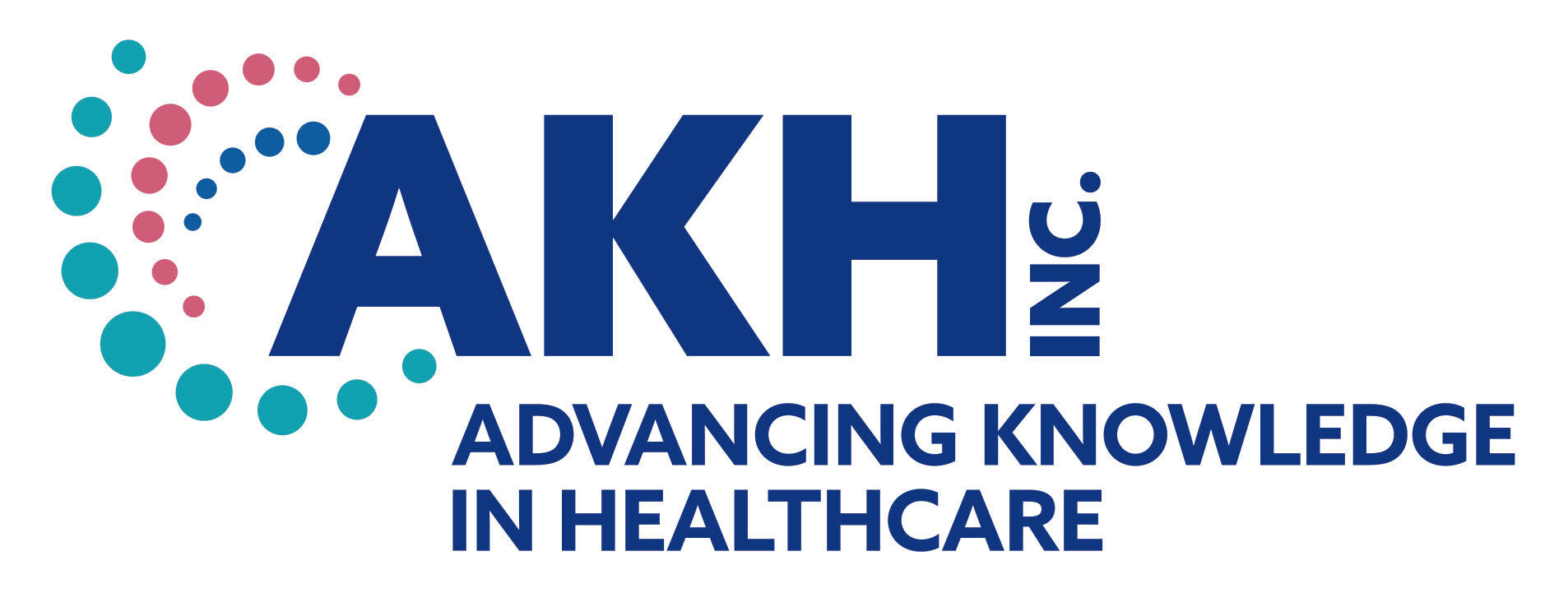
Continuing Education credit for this activity is provided by AKH Inc., Advancing Knowledge in Healthcare, and is available for an additional fee ($20 administrative fee per certificate).
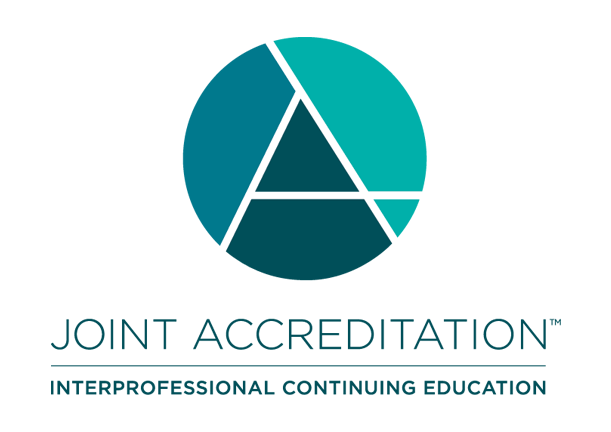
In support of improving patient care, this activity has been planned and implemented by AKH Inc., Advancing Knowledge in Healthcare and American College of Medical Toxicology (ACMT). AKH Inc., Advancing Knowledge in Healthcare is jointly accredited by the Accreditation Council for Continuing Medical Education (ACCME), the Accreditation Council for Pharmacy Education (ACPE), and the American Nurses Credentialing Center (ANCC), to provide continuing education for the healthcare team.
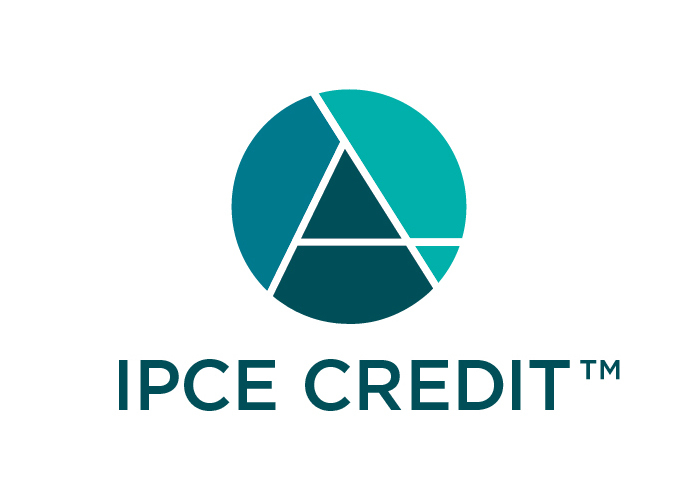
This activity was planned by and for the healthcare team, and learners will receive 1.25 Interprofessional Continuing Education (IPCE) credit for learning and change.
Physicians
AKH Inc., Advancing Knowledge in Healthcare designates this live virtual activity for a maximum of 1.25 AMA PRA Category 1 Credit(s)™. Physicians should claim only the credit commensurate with the extent of their participation in the activity. For physicians, hours of participation are the number of AMA PRA Category 1 Credit(s)™ awarded.
Nurses
Credit being awarded:1.25 ANCC contact hours.
Commercial Support
There is no commercial support for this activity.
Timothy J. Wiegand, MD, FACMT, DFASAM, Lead Physician Planner/Reviewer/Faculty: has nothing to disclose.
Gloria J. Baciewicz, MD, Physician Planner/Reviewer/Faculty: has nothing to disclose.Kim Aldy, DO, MS, MBA, ToxIC Program Director: has nothing to disclose.
Jeffrey Brent, MD, PhD, FACMT, Distinguished Clinical Professor of Medicine and Emergency Medicine: has nothing to disclose.
Barry Logan, PhD, F-ABFT, Executive Director: has nothing to disclose.
Alex Krotulski, PhD, Associate Director of Toxicology & Chemistry: has nothing to disclose.
Paul Wax, MD, FACMT, Executive Director: has nothing to disclose.AKH Planners and Reviewers: have nothing to disclose.
None of the planners or faculty for this educational activity have relevant financial relationship(s) to disclose with ineligible companies whose primary business is producing, marketing, selling, re-selling, or distributing healthcare products used by or on patients.
All of the relevant financial relationships listed for these individuals have been mitigated.
Disclosures
It is the policy of AKH Inc. to ensure independence, balance, objectivity, scientific rigor, and integrity in all of its continuing education activities. The author must disclose to the participants any significant relationships with ineligible companies whose products or devices may be mentioned in the activity or with the commercial supporter of this continuing education activity. Identified conflicts of interest are mitigated by AKH prior to accreditation of the activity. AKH planners and reviewers have no relevant financial relationships to disclose.
Disclosure of Unlabeled Use and Investigational Product
This educational activity may include discussion of uses of agents that are investigational and/or unapproved by the FDA. Please refer to the official prescribing information for each product for discussion of approved indications, contraindications, and warnings.
Disclaimer
This course is designed solely to provide the healthcare professional with information to assist in his/her practice and professional development and is not to be considered a diagnostic tool to replace professional advice or treatment. The course serves as a general guide to the healthcare professional, and therefore, cannot be considered as giving legal, nursing, medical, or other professional advice in specific cases. AKH Inc. specifically disclaim responsibility for any adverse consequences resulting directly or indirectly from information in the course, for undetected error, or through participants misunderstanding of the content. If you would like to opt out from future communications from AKH please send an email to optout@akhcme.comwith your information with "Opt Out" in the subject line.
Learner Notifications:
-
Register
- Non-member - Tier I - Free!
- Non-member - Tier II - Free!
- Non-member - Tier III - Free!
- Non-member - Tier IV - Free!
- Member - Tier I - Free!
- Member - Tier II - Free!
- Member - Tier III - Free!
- Member - Tier IV - Free!
- More Information
-
Register



